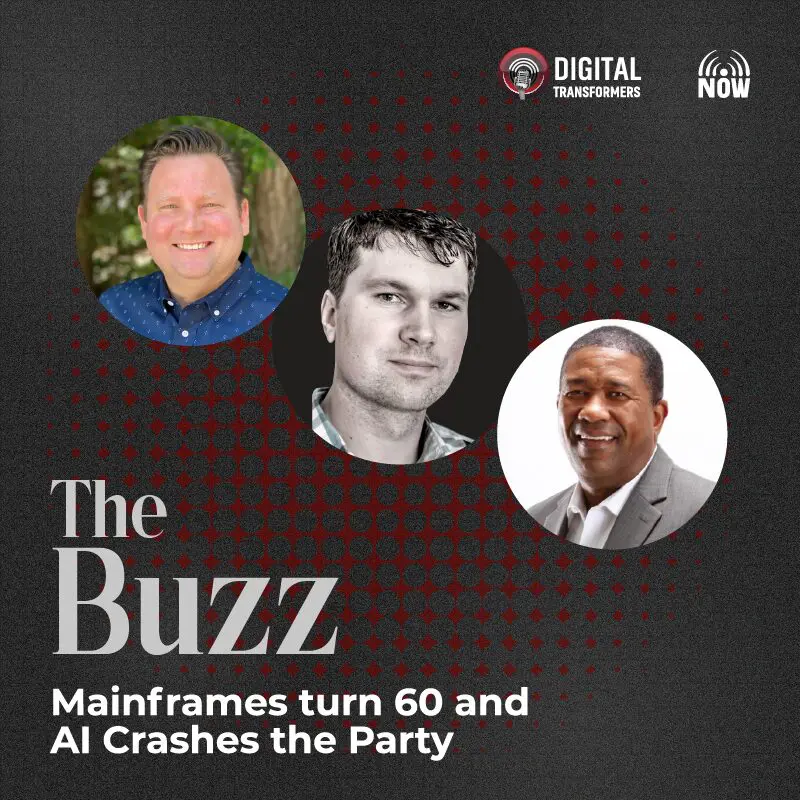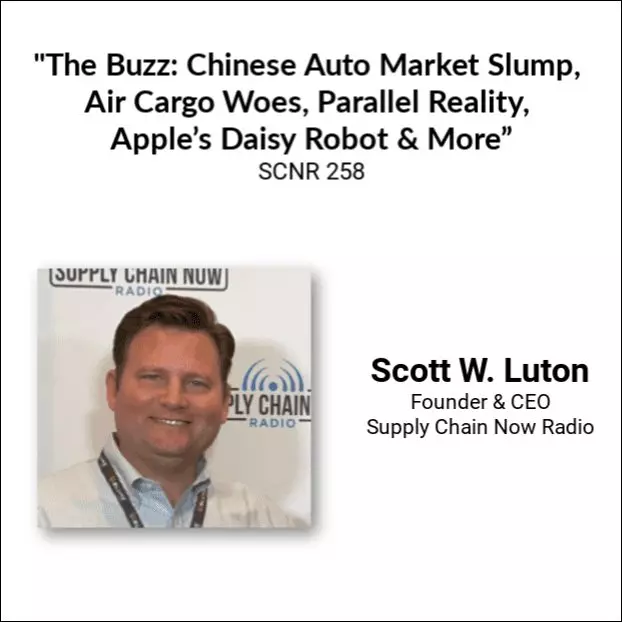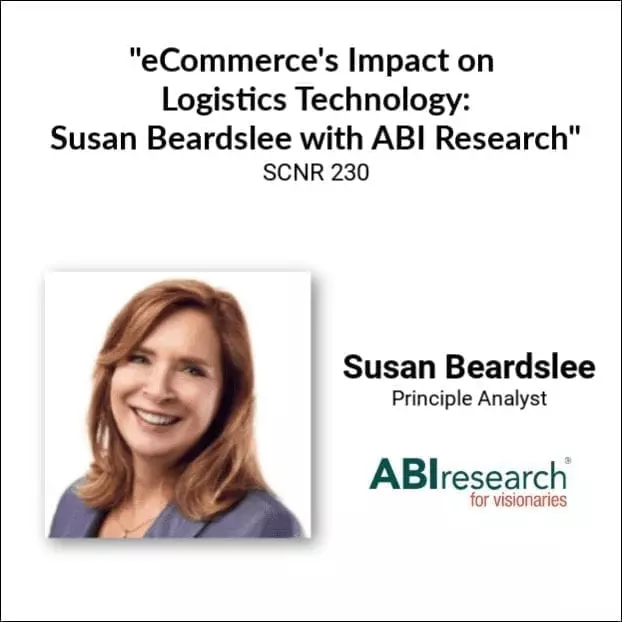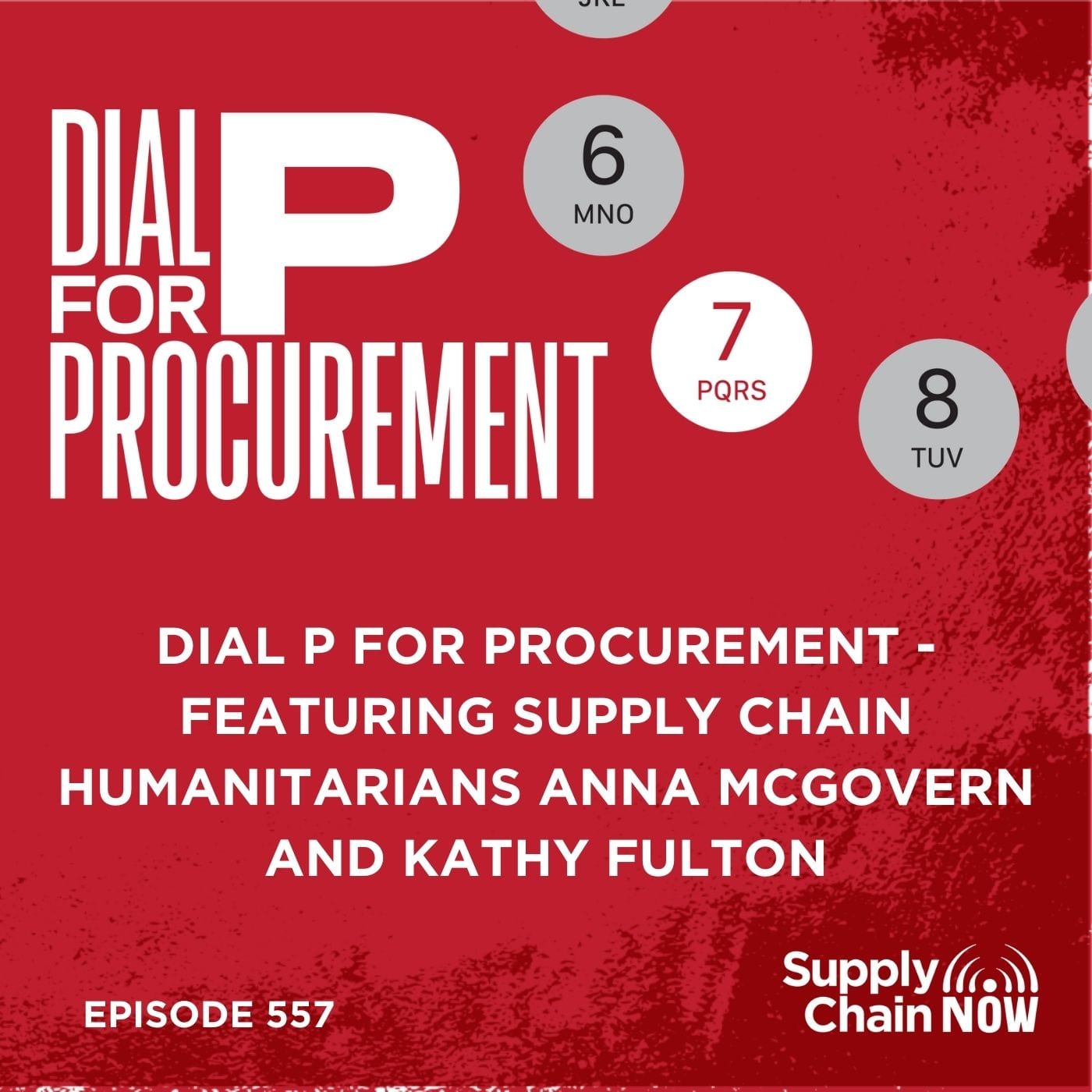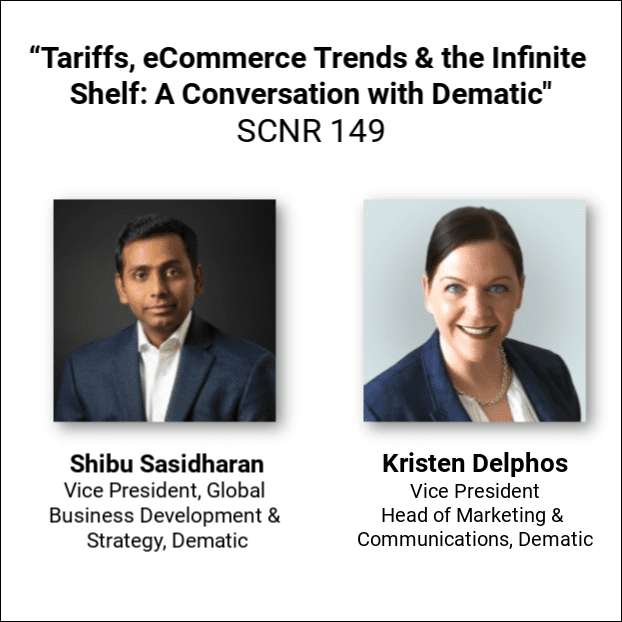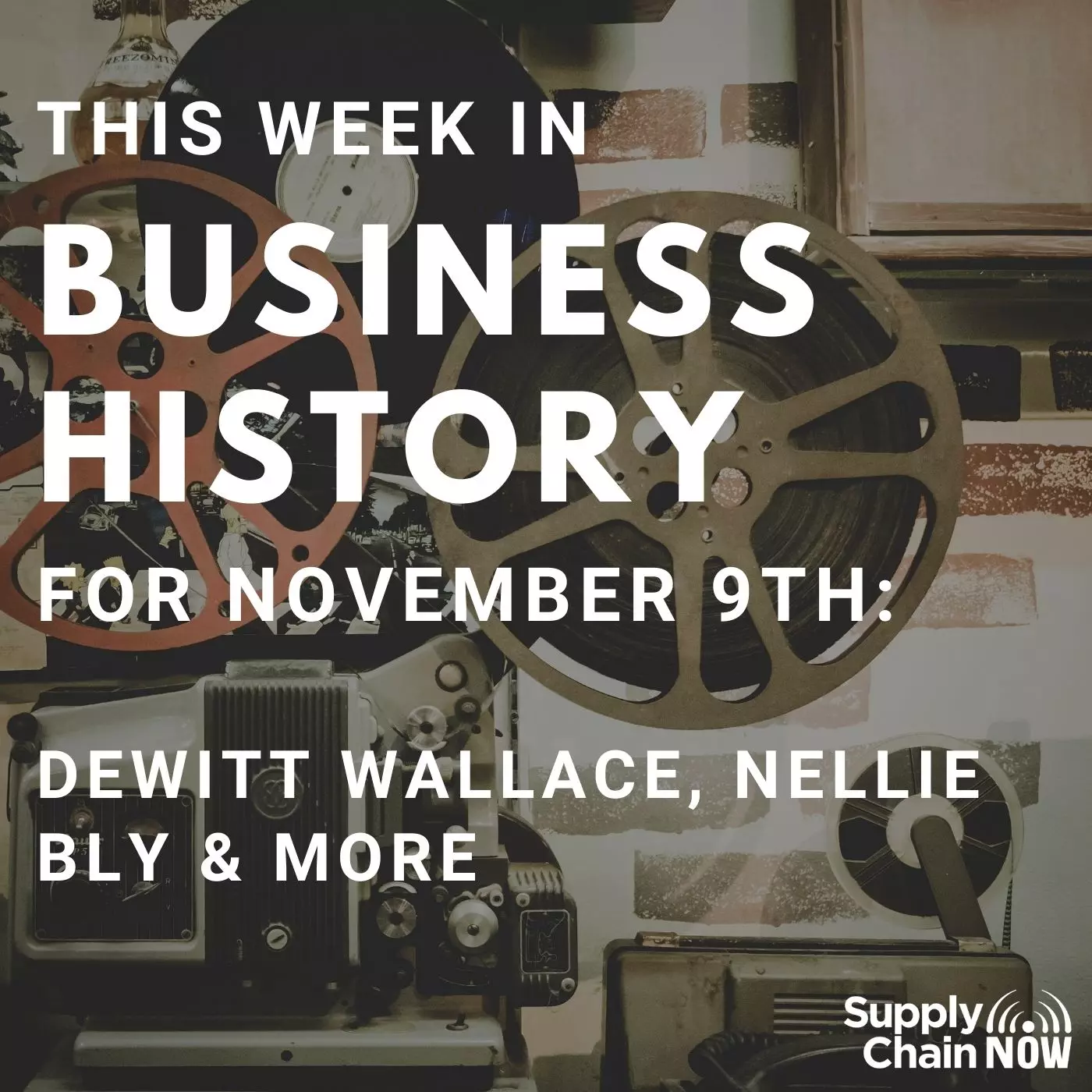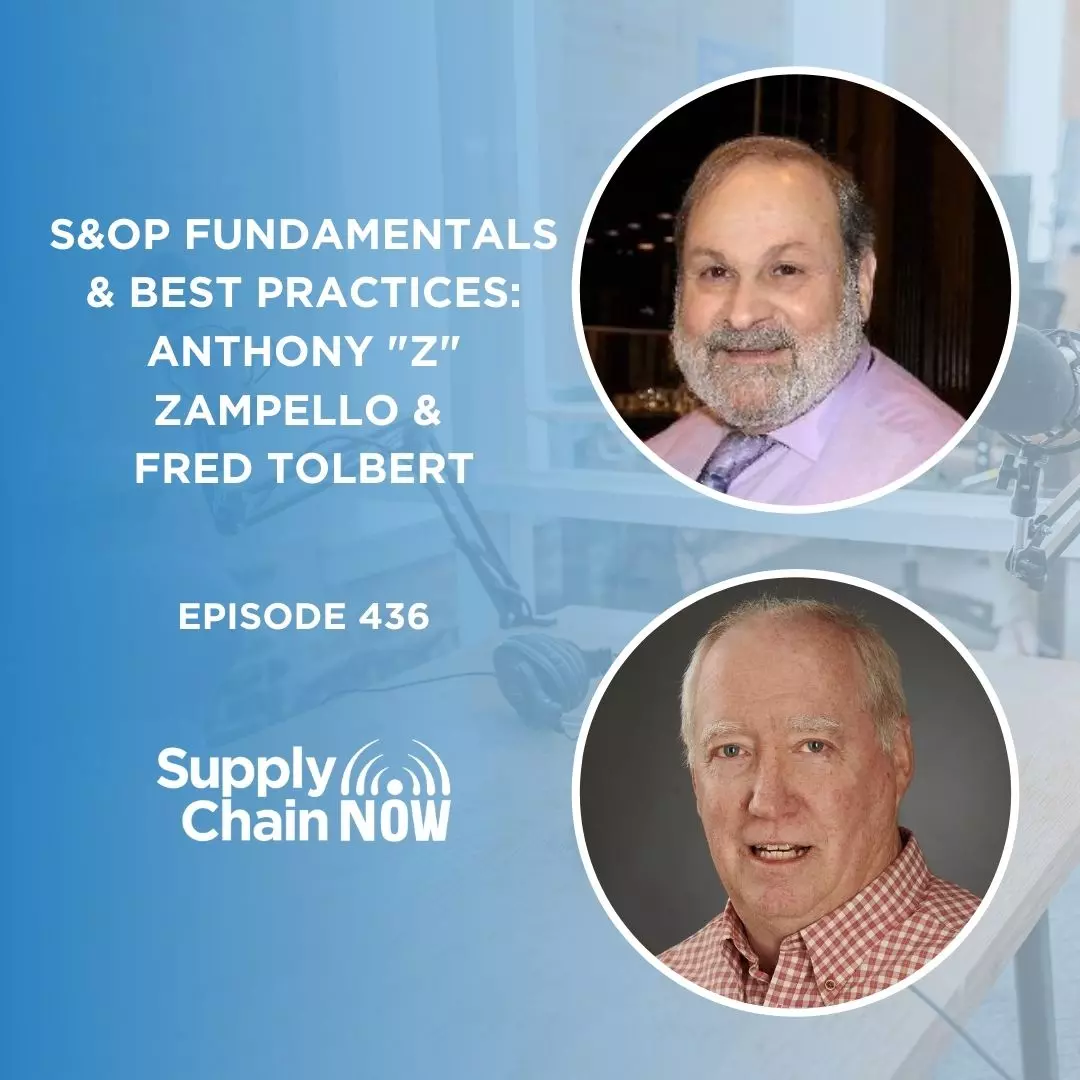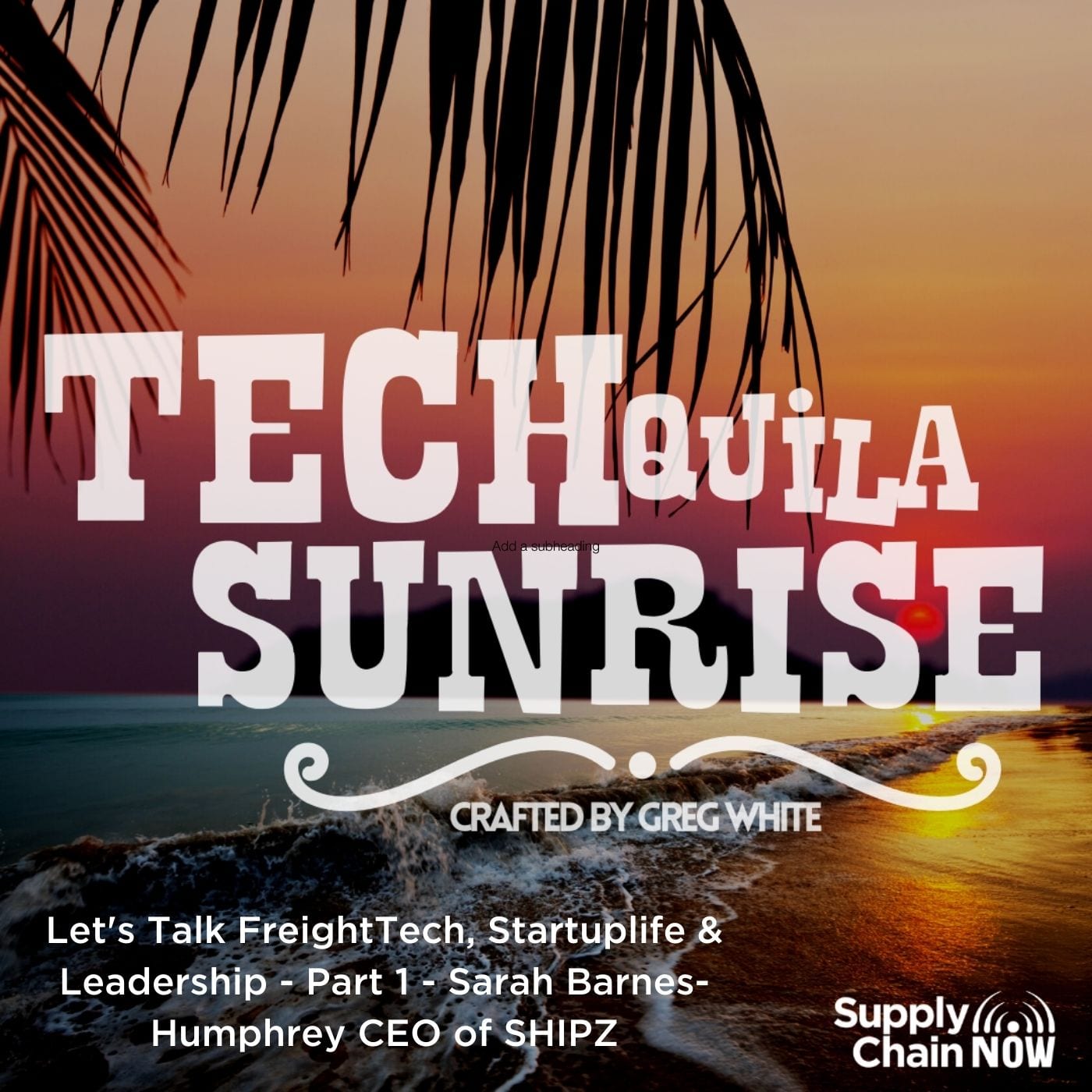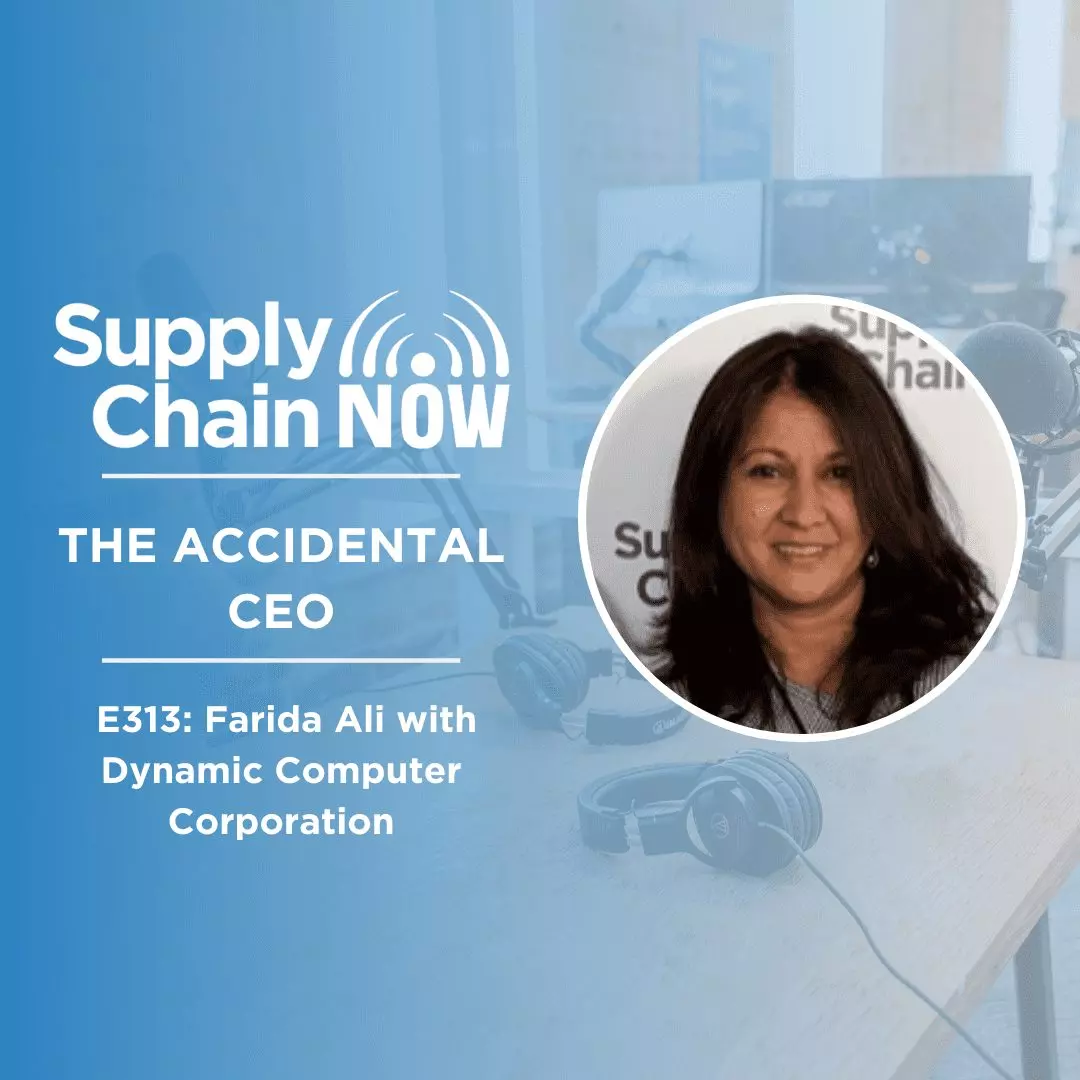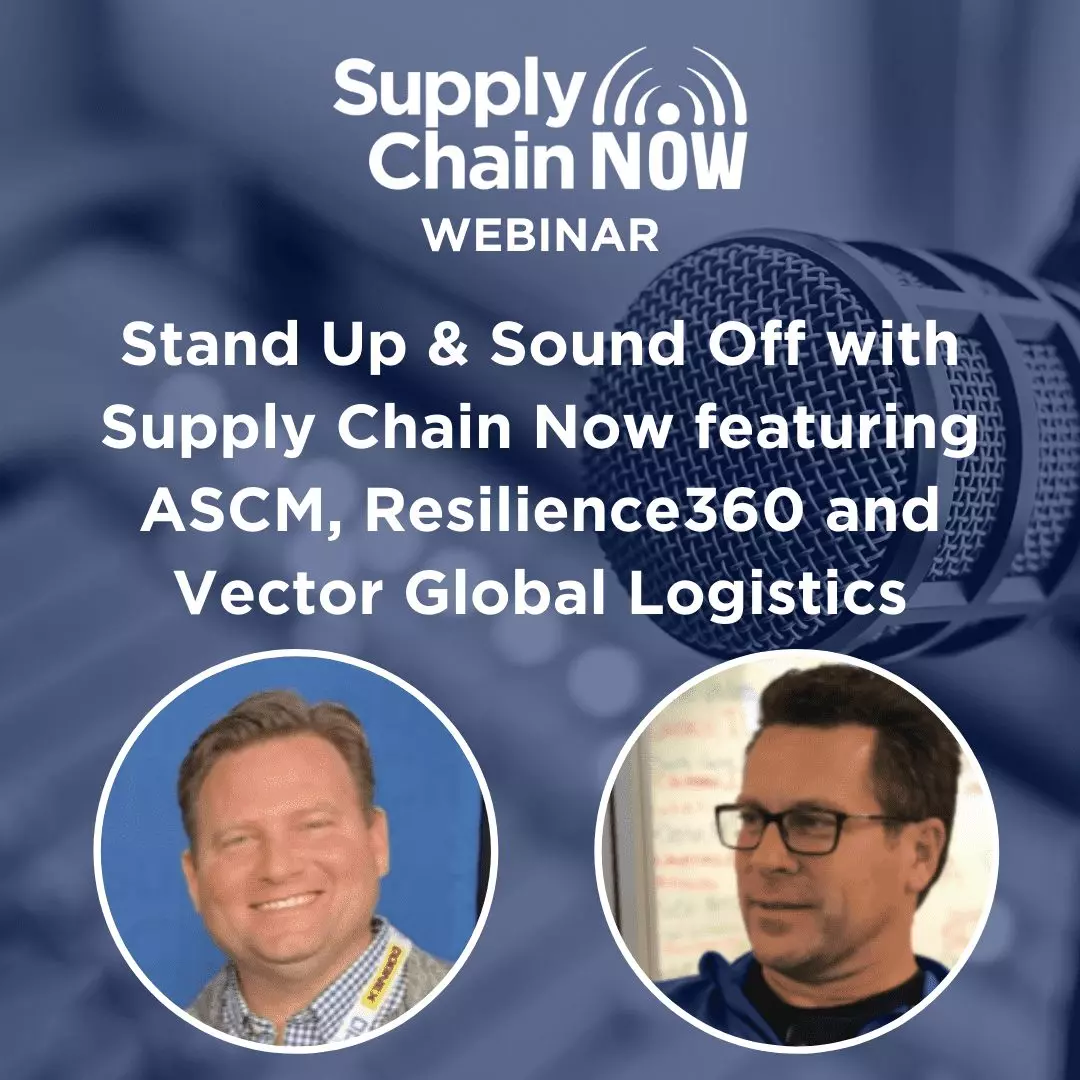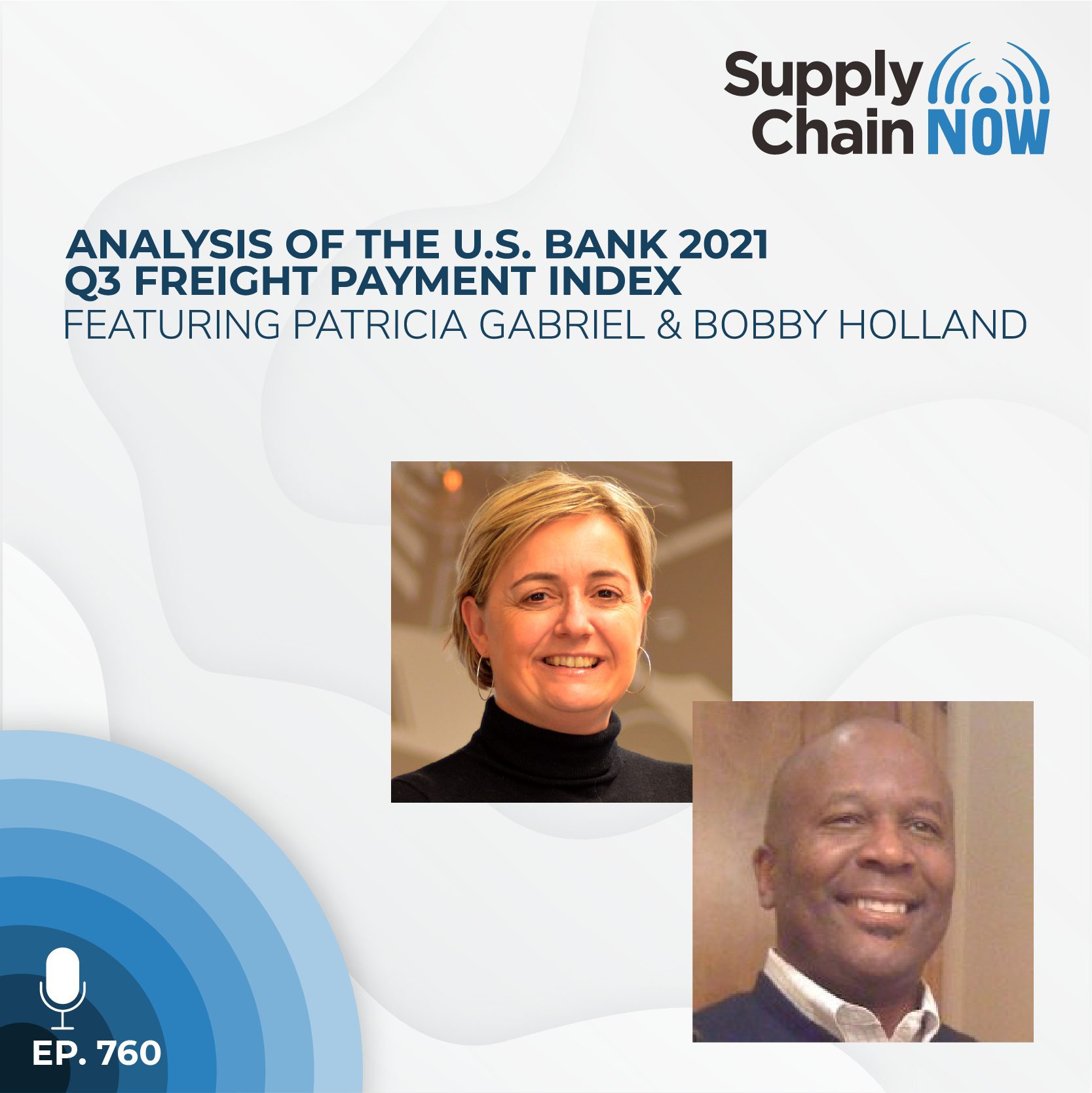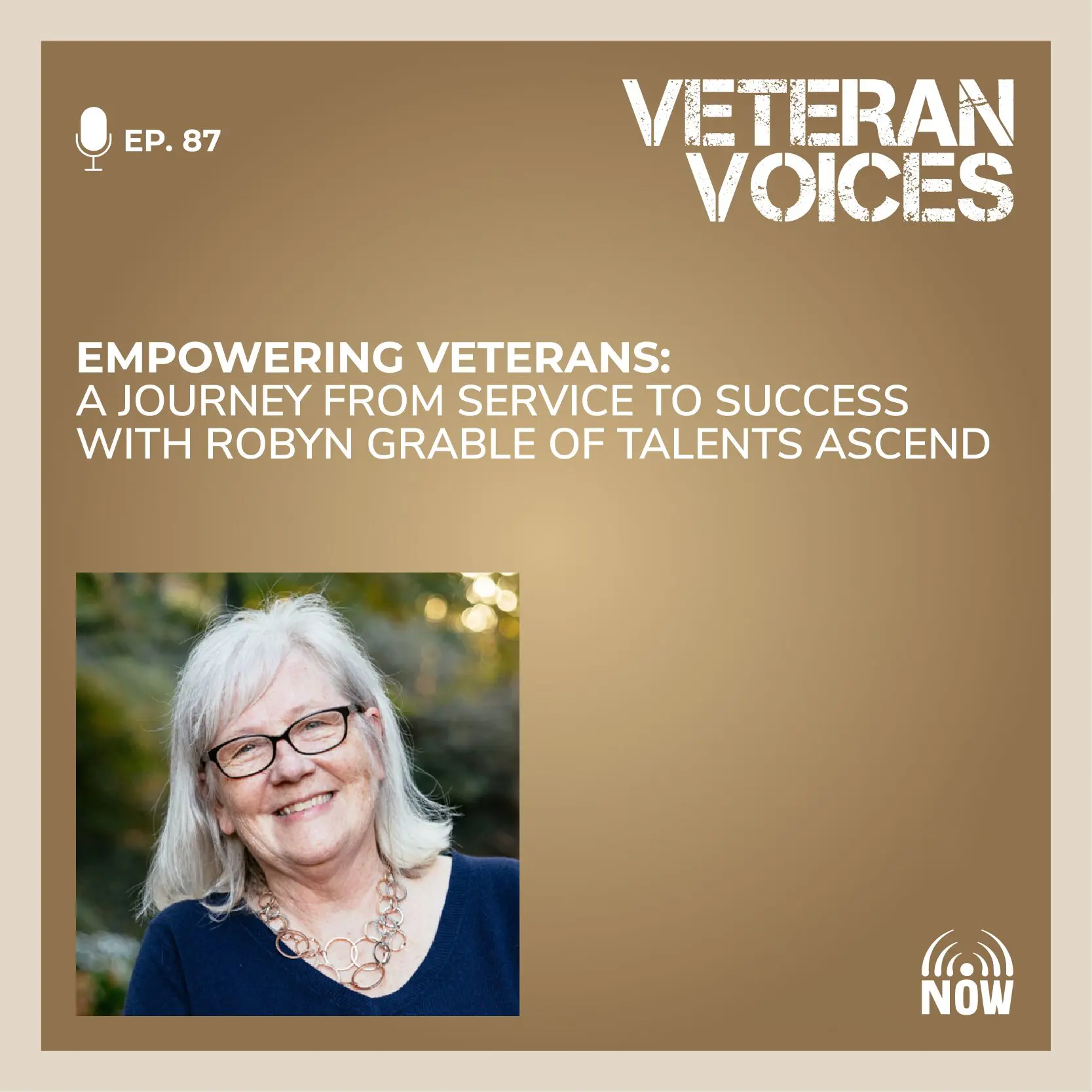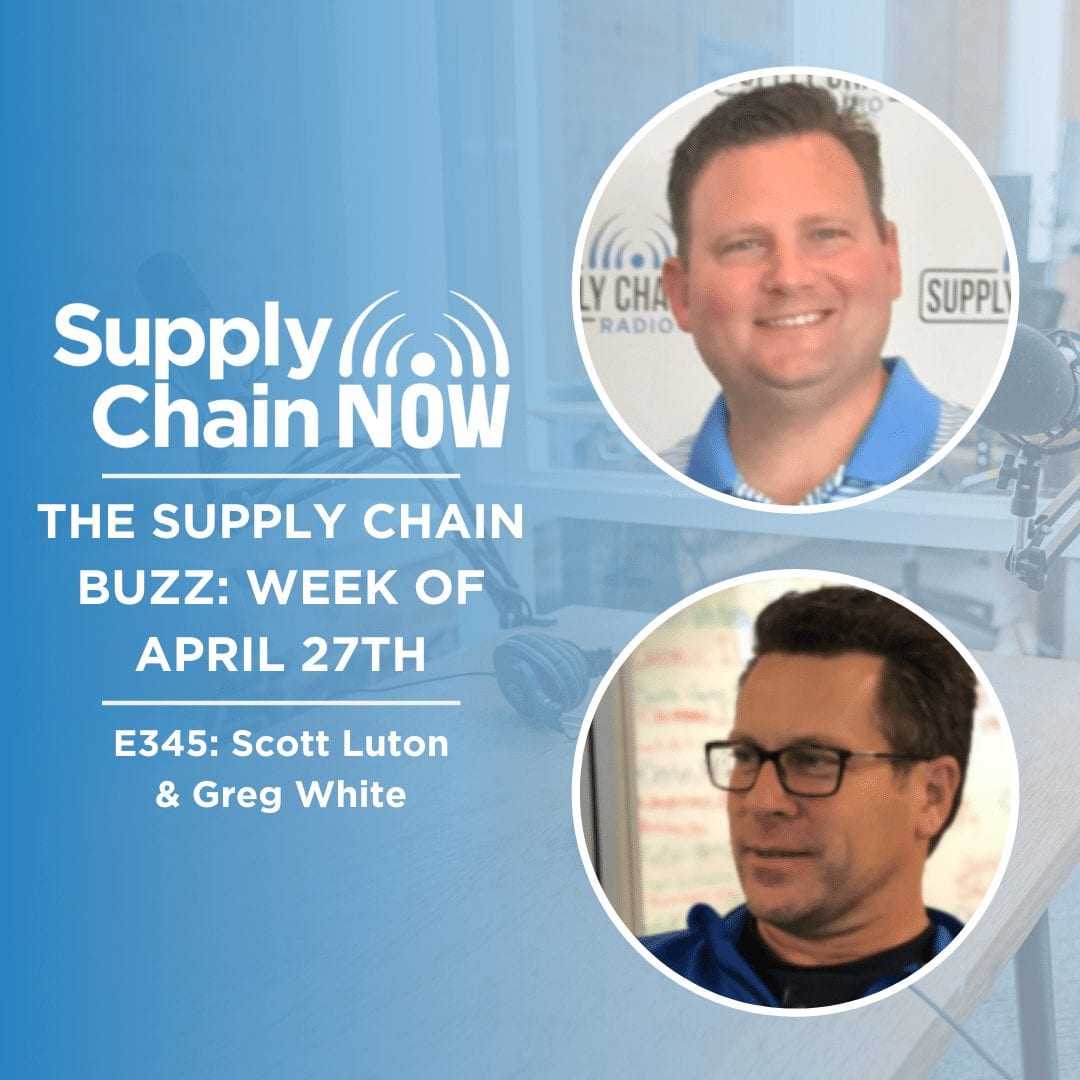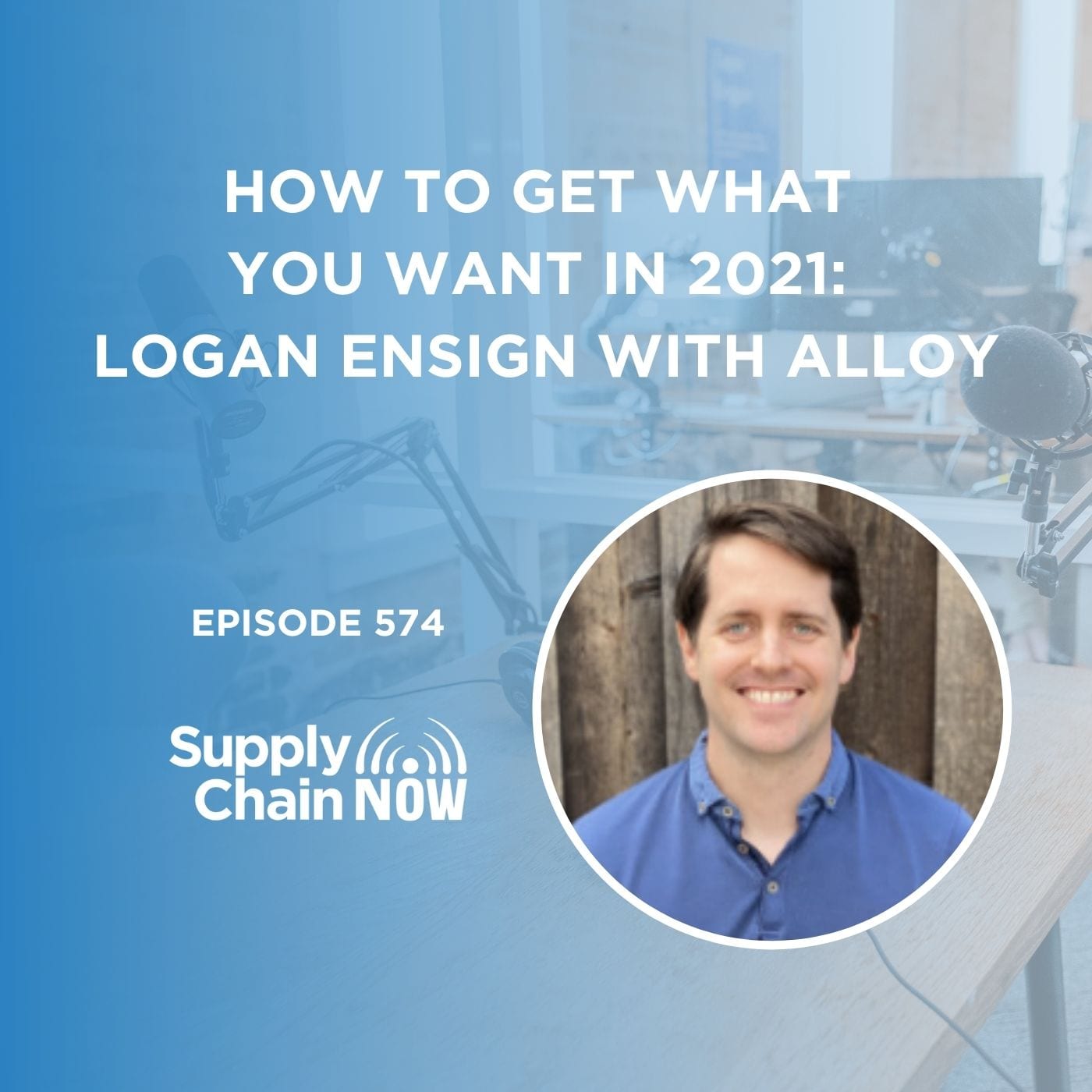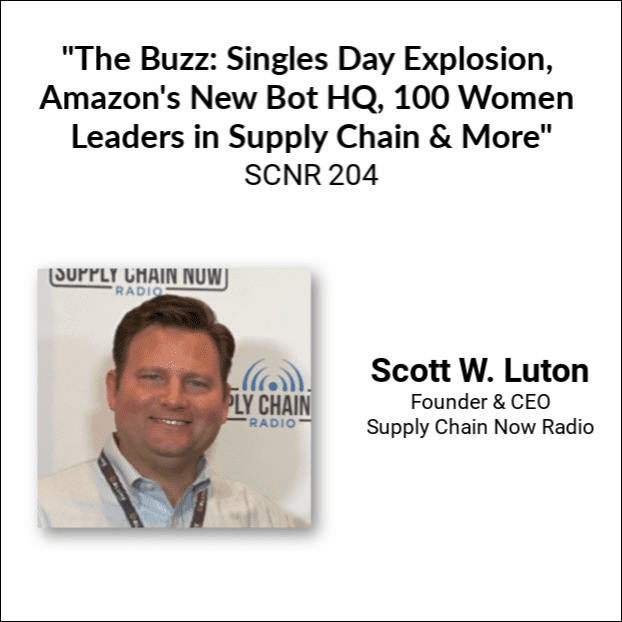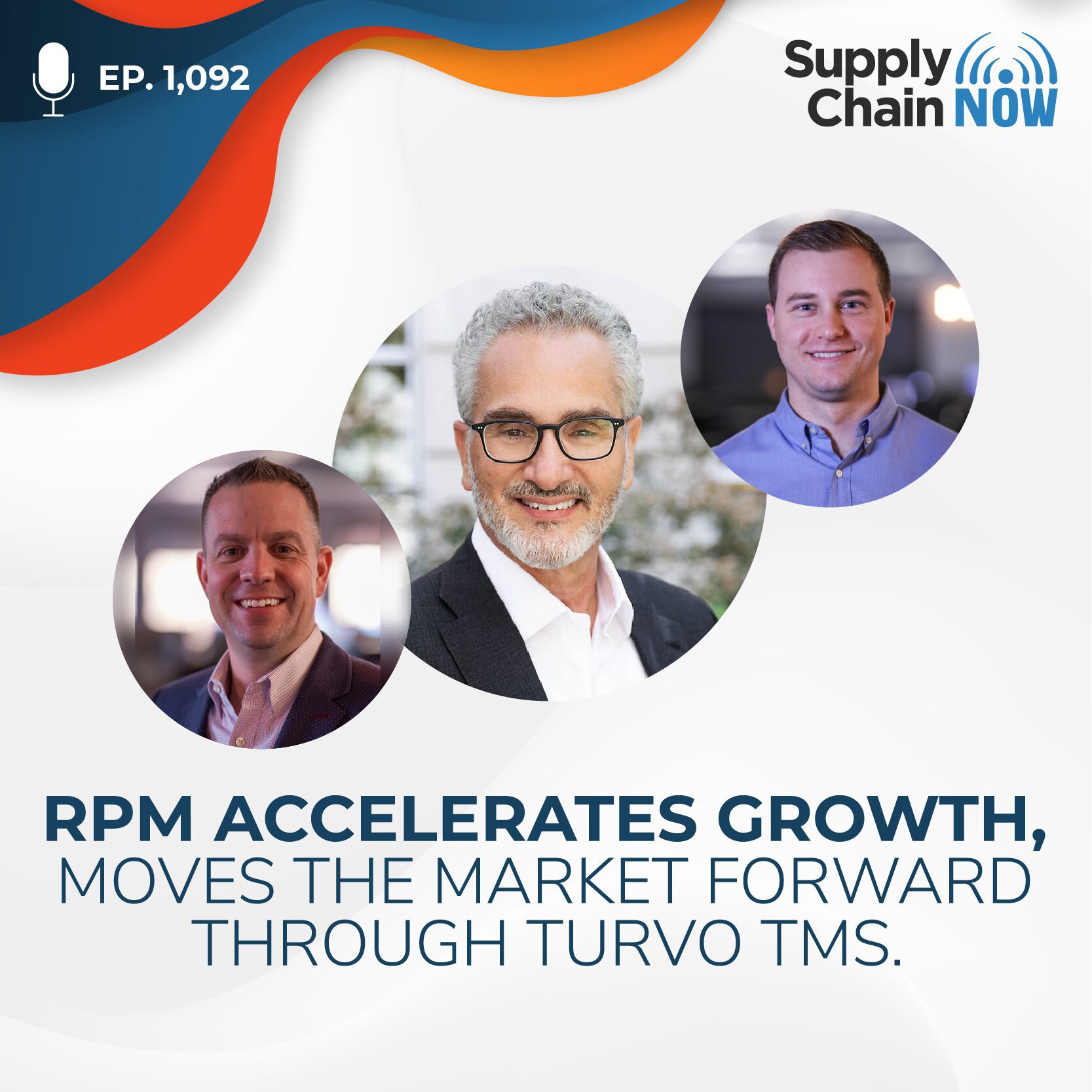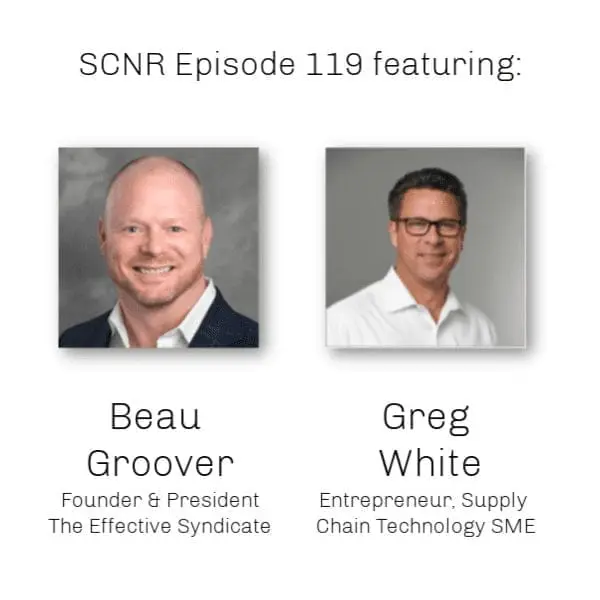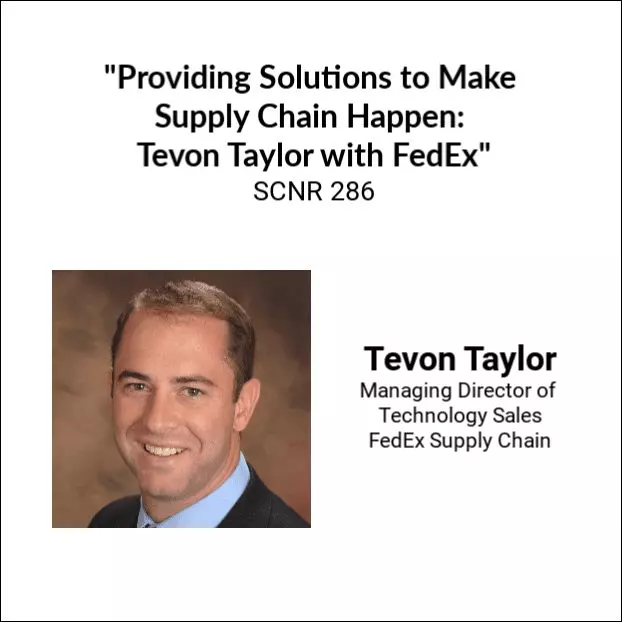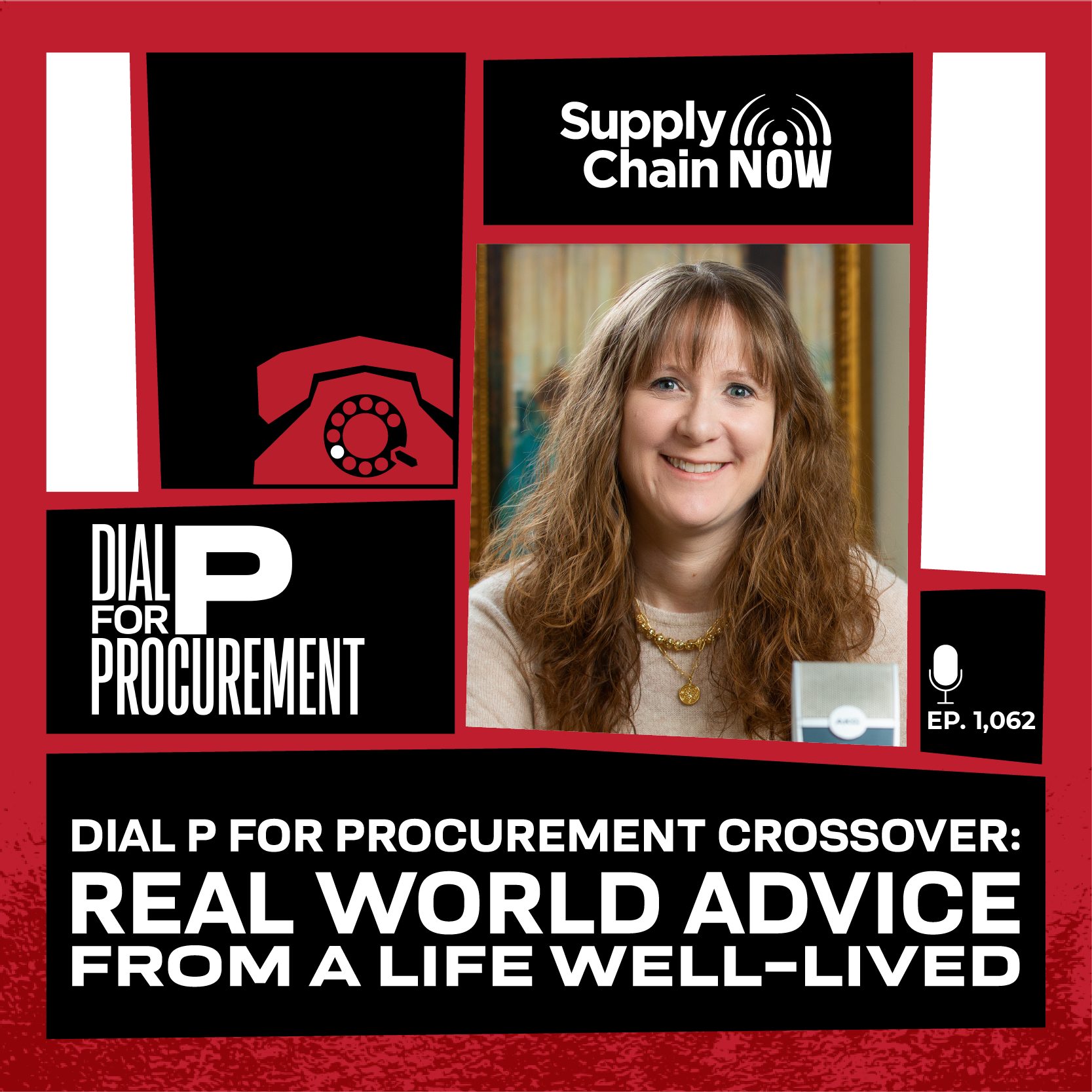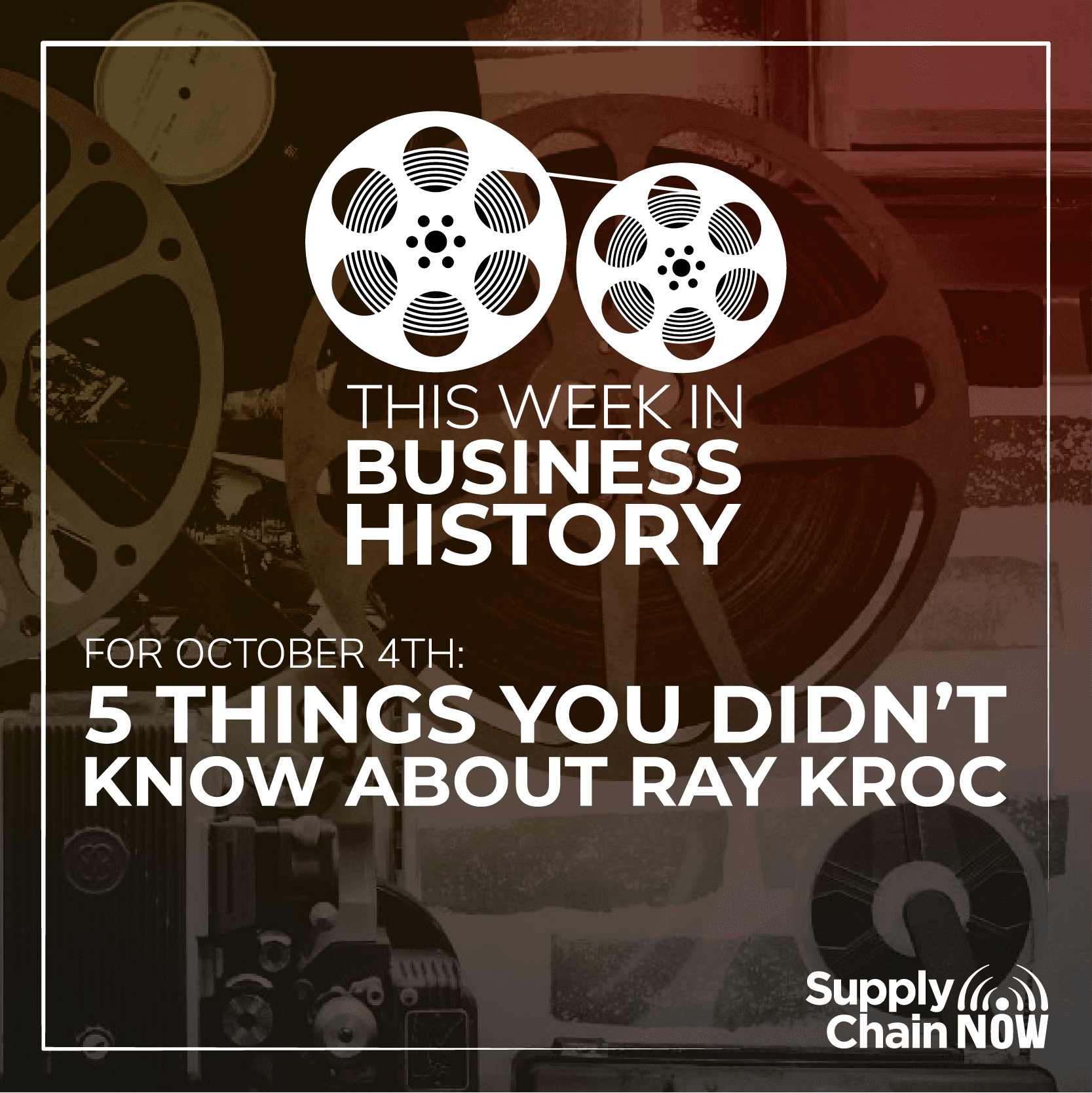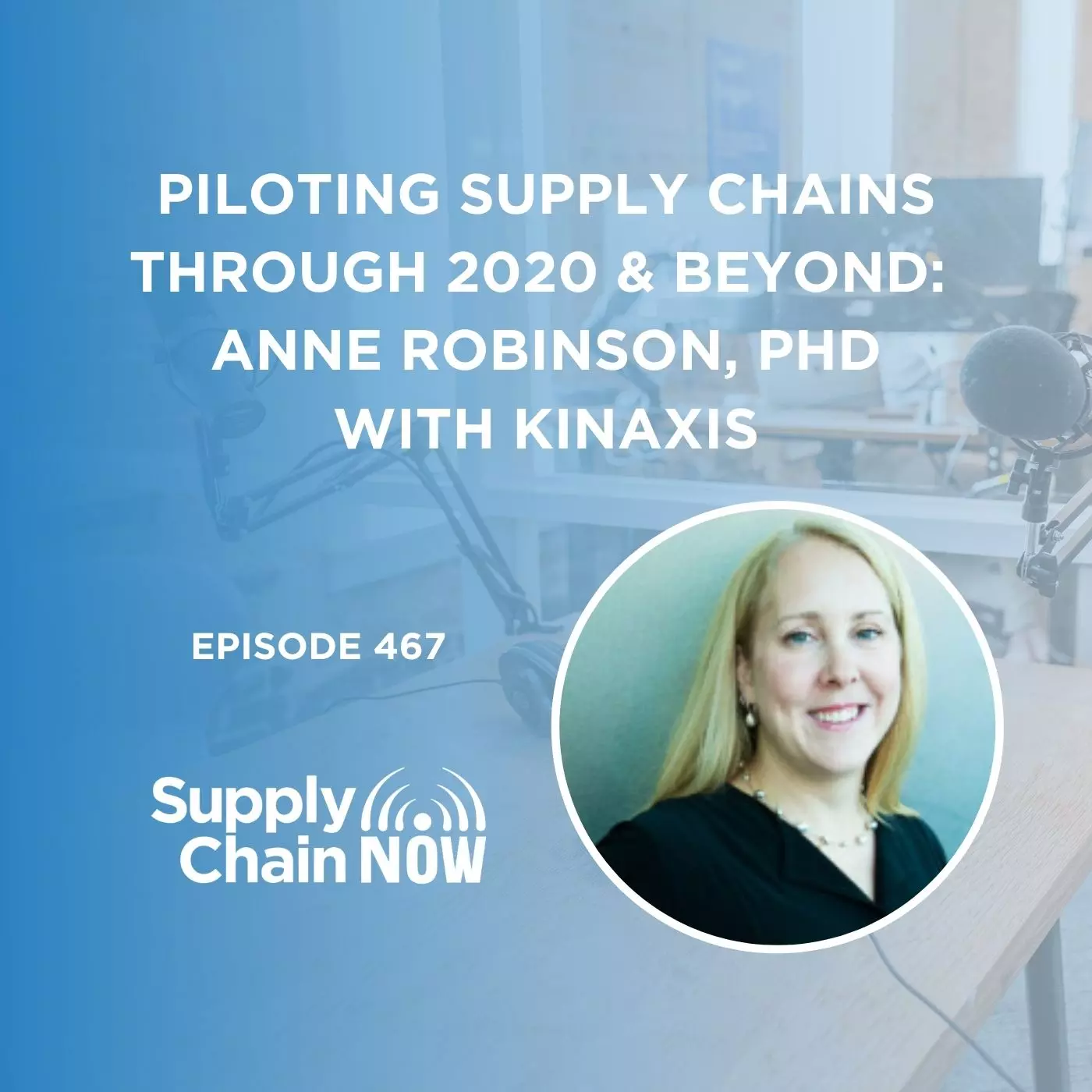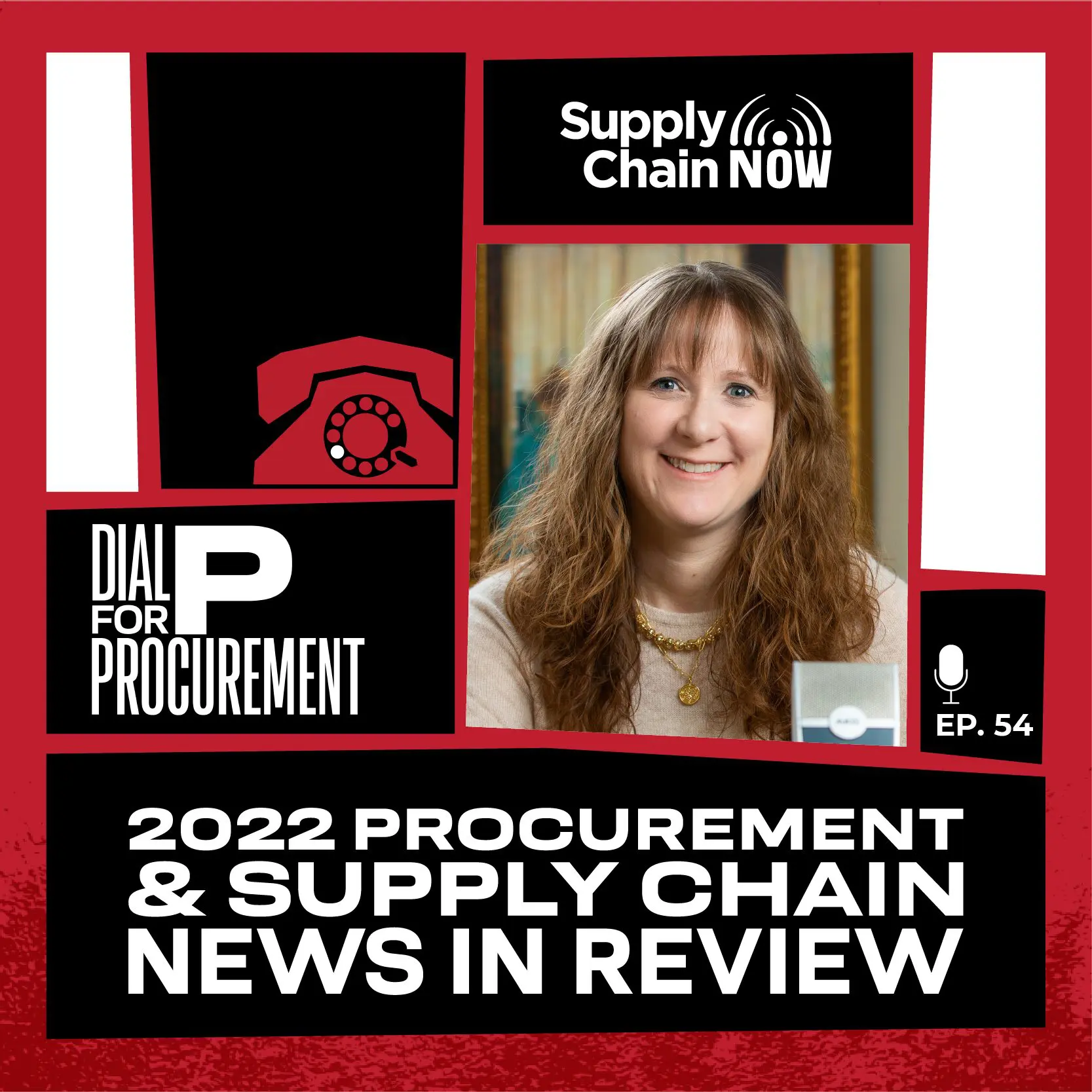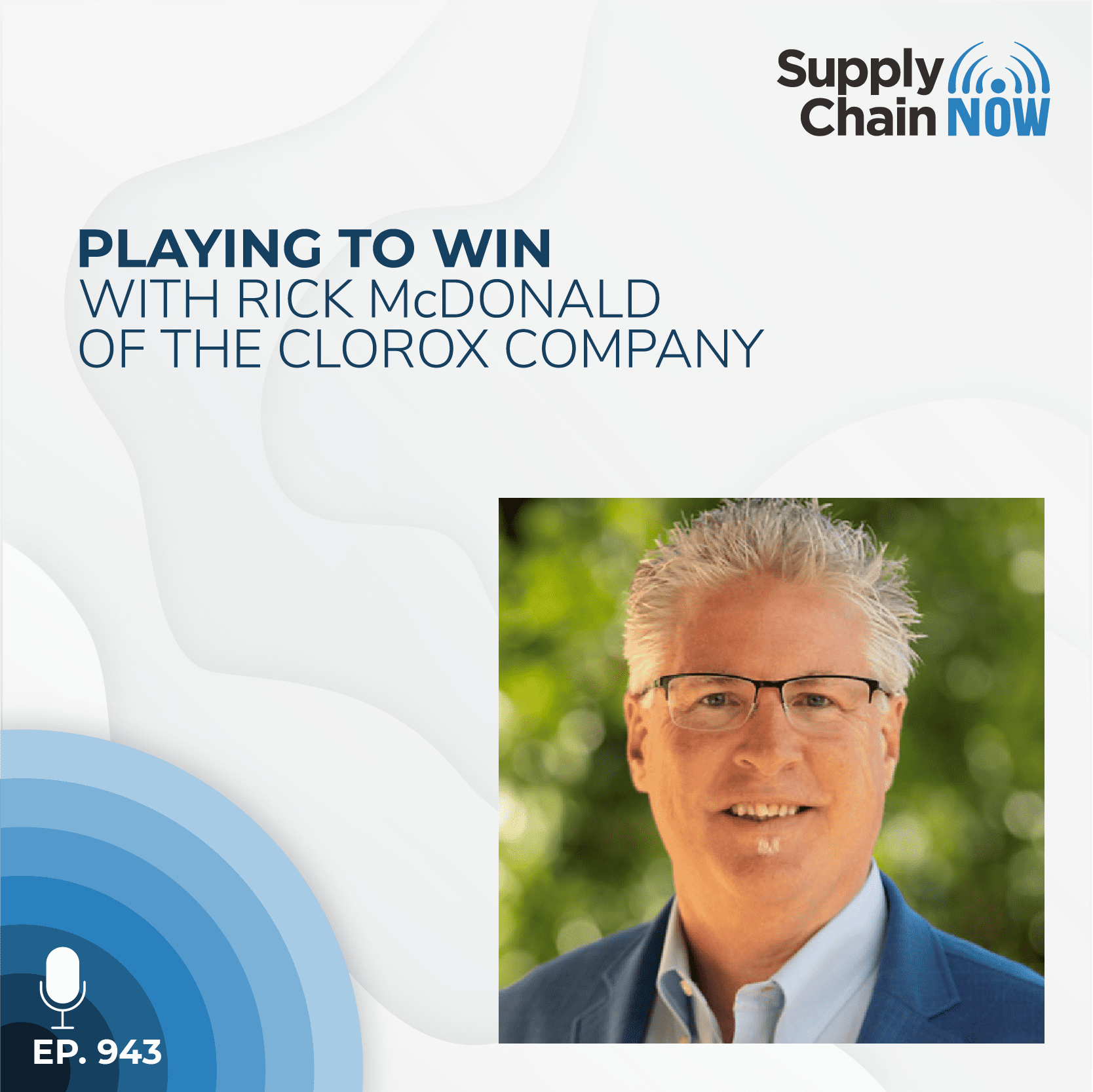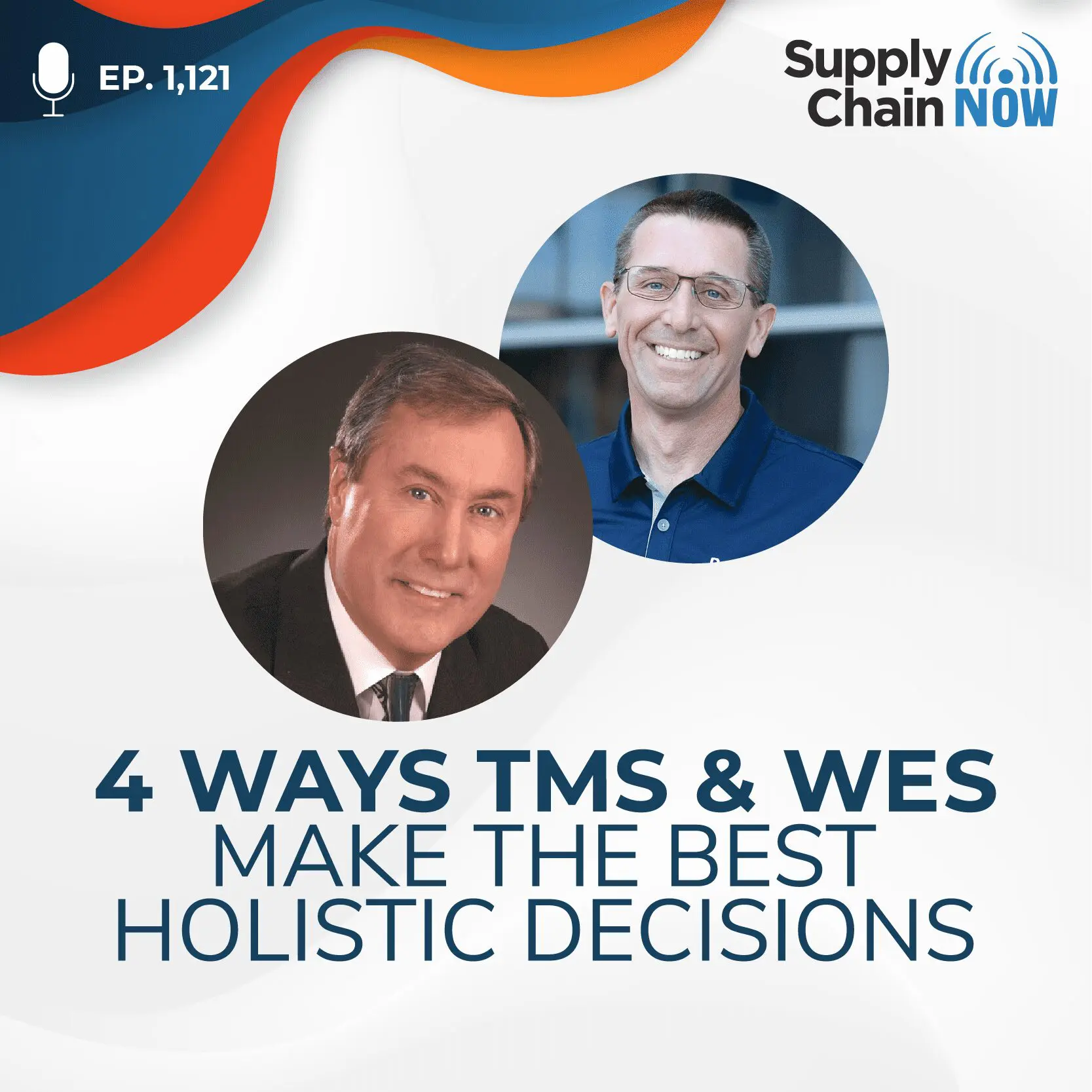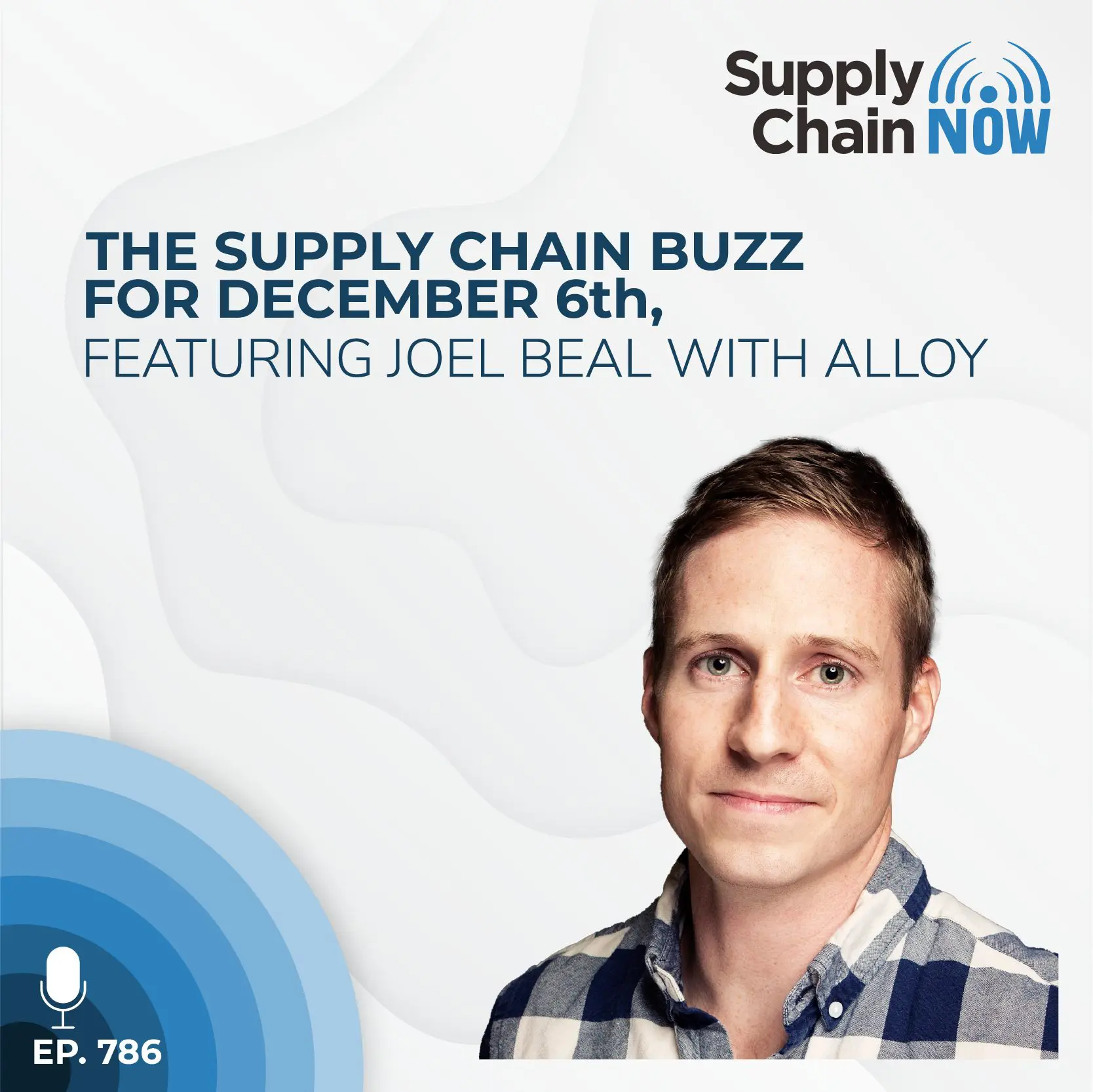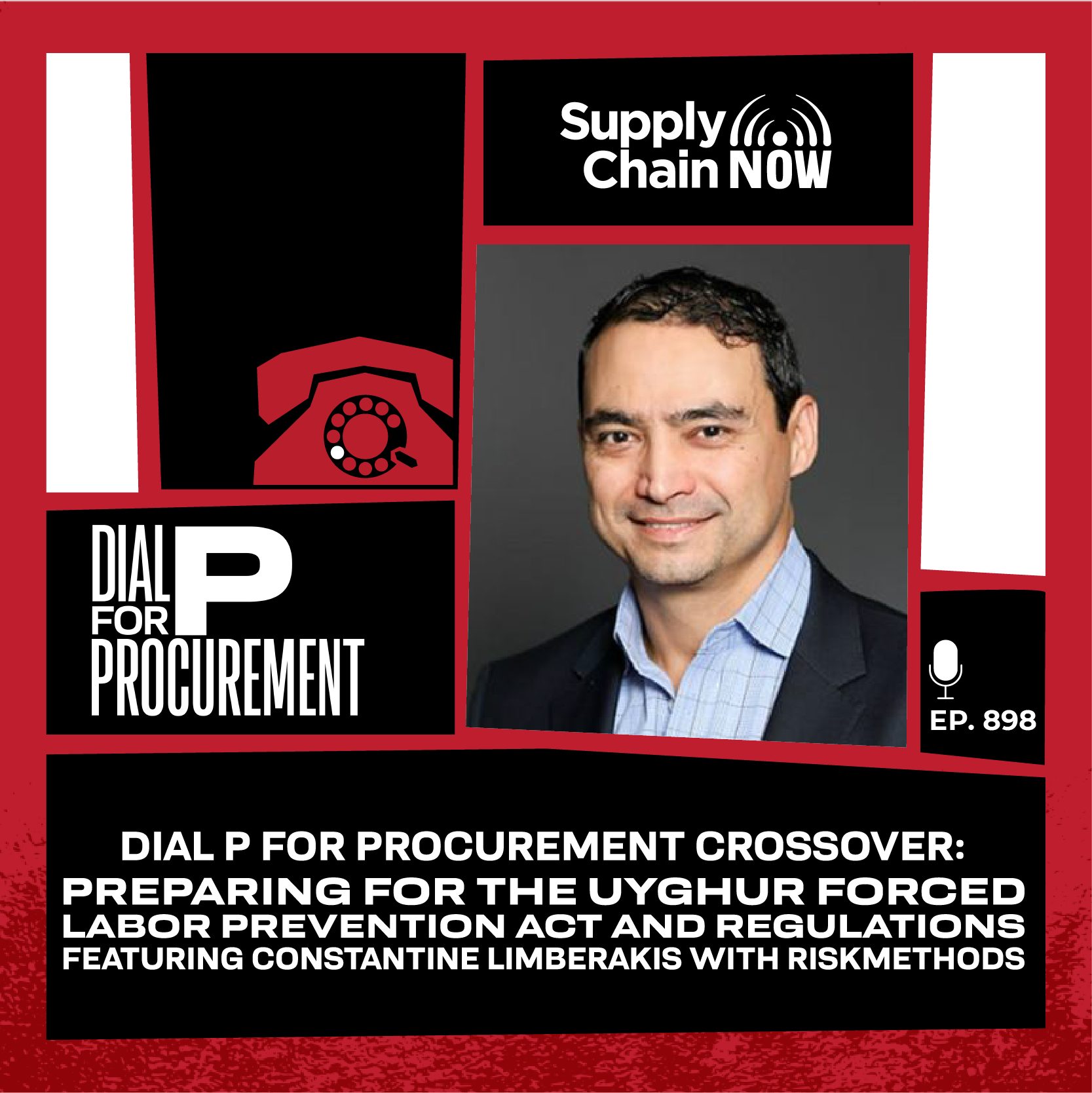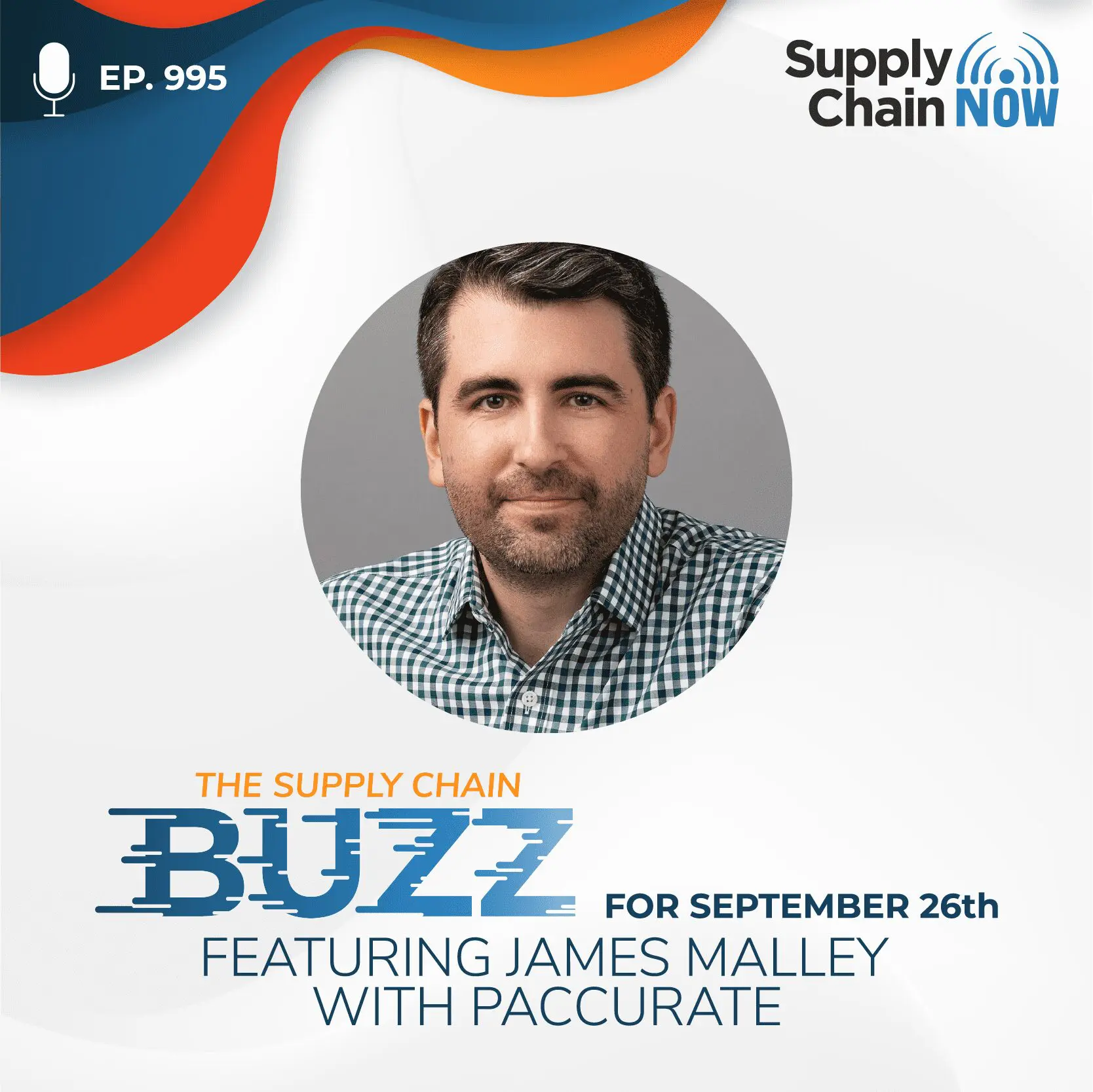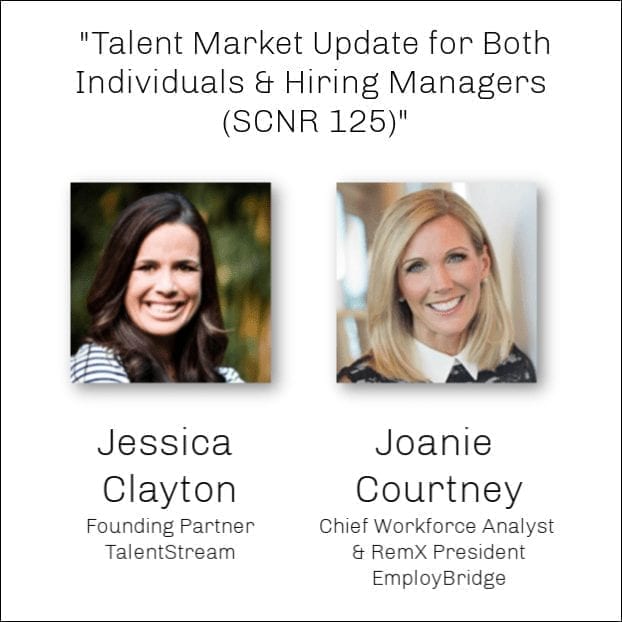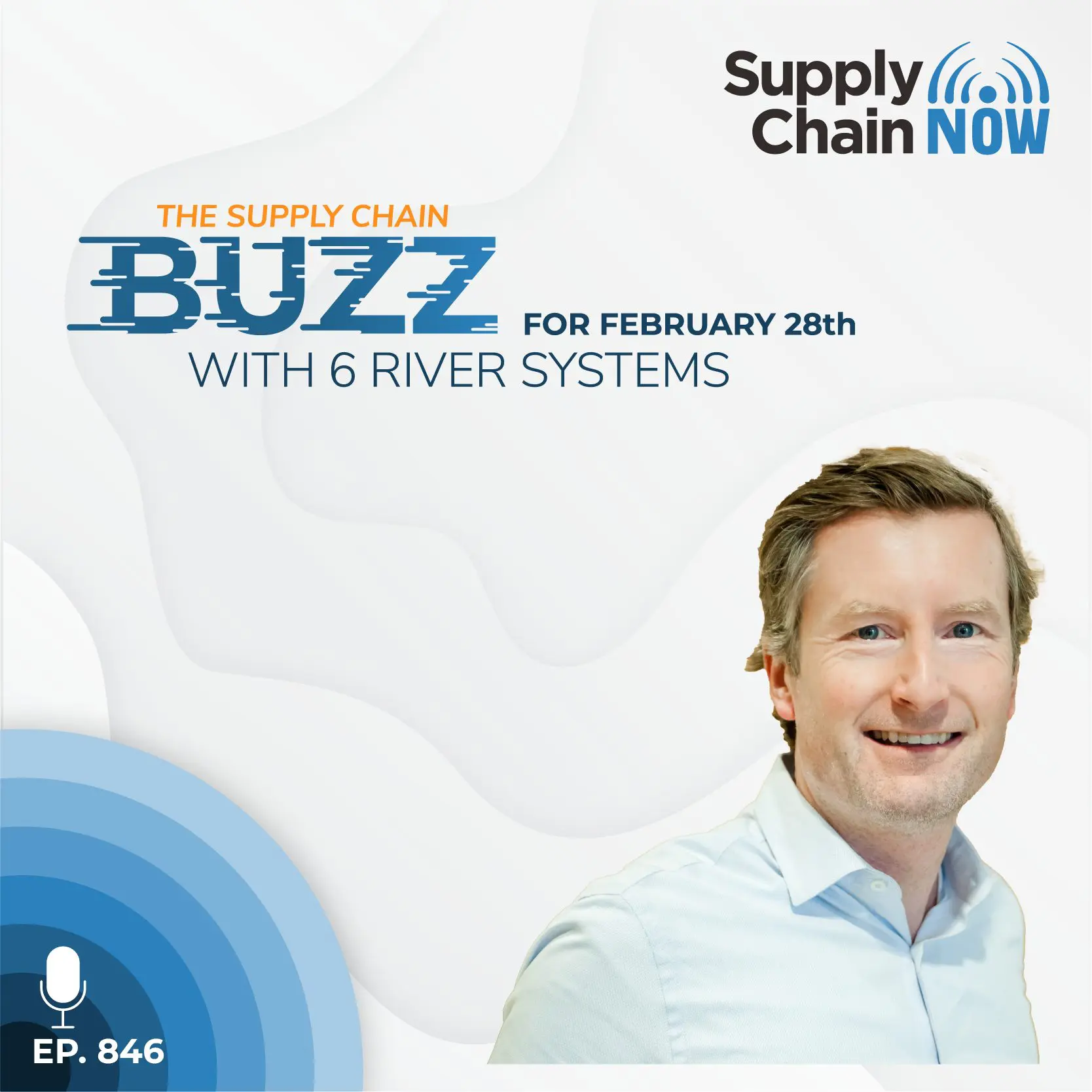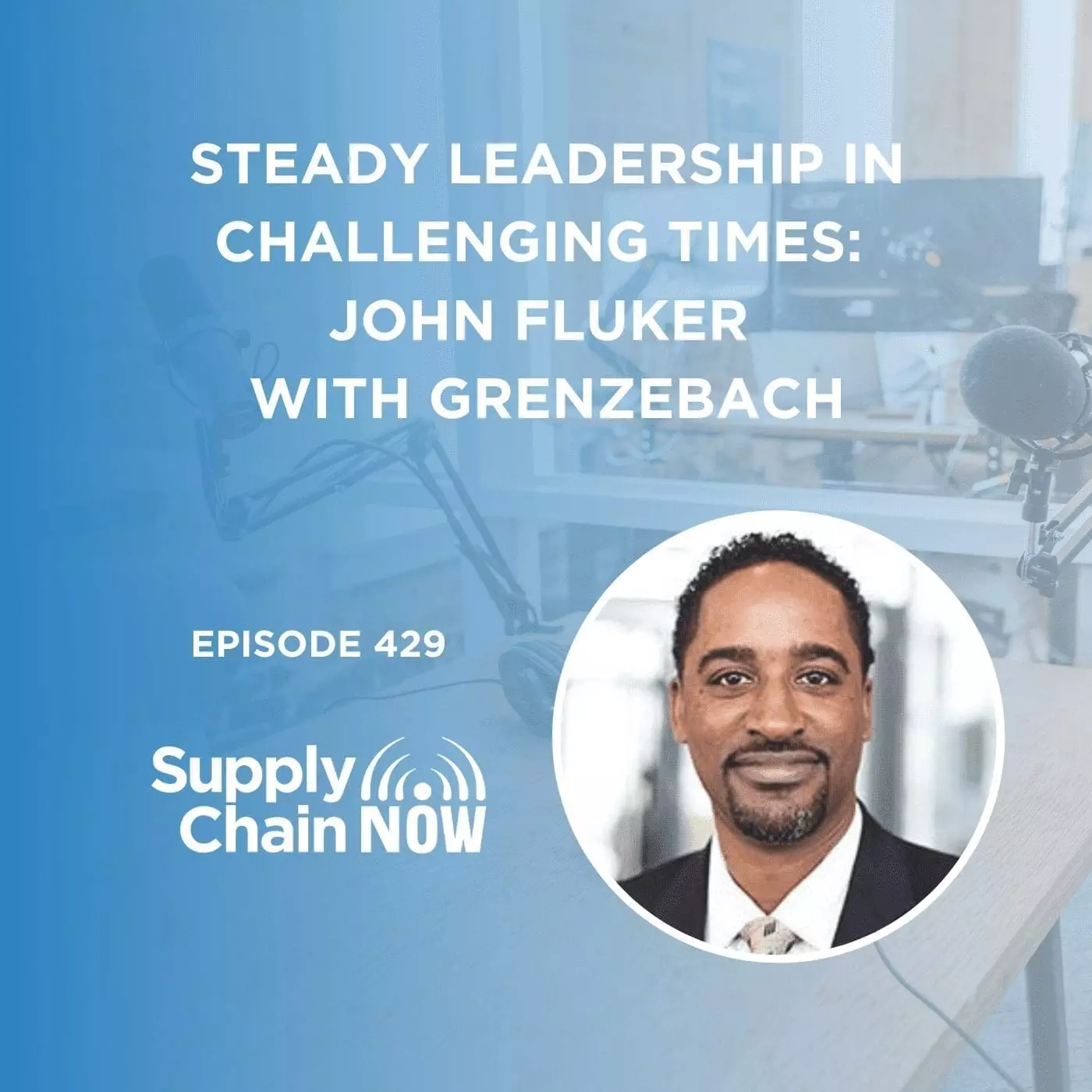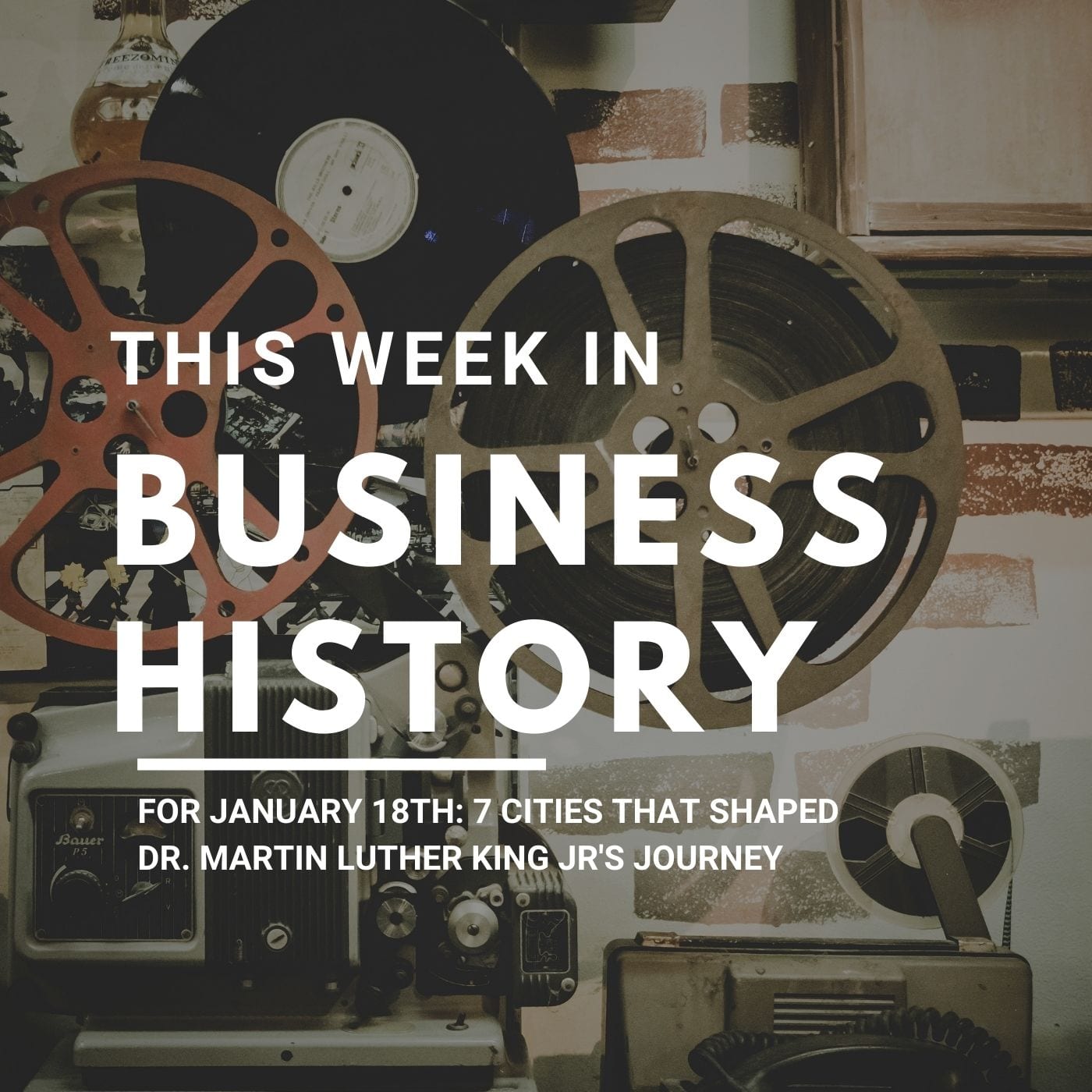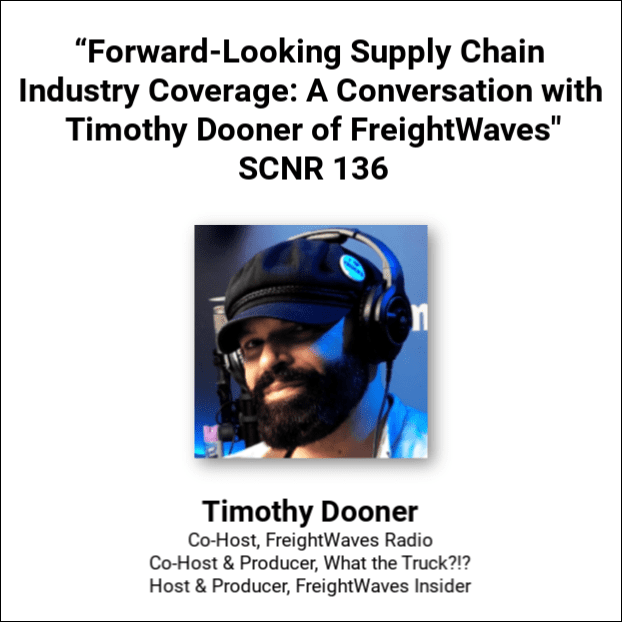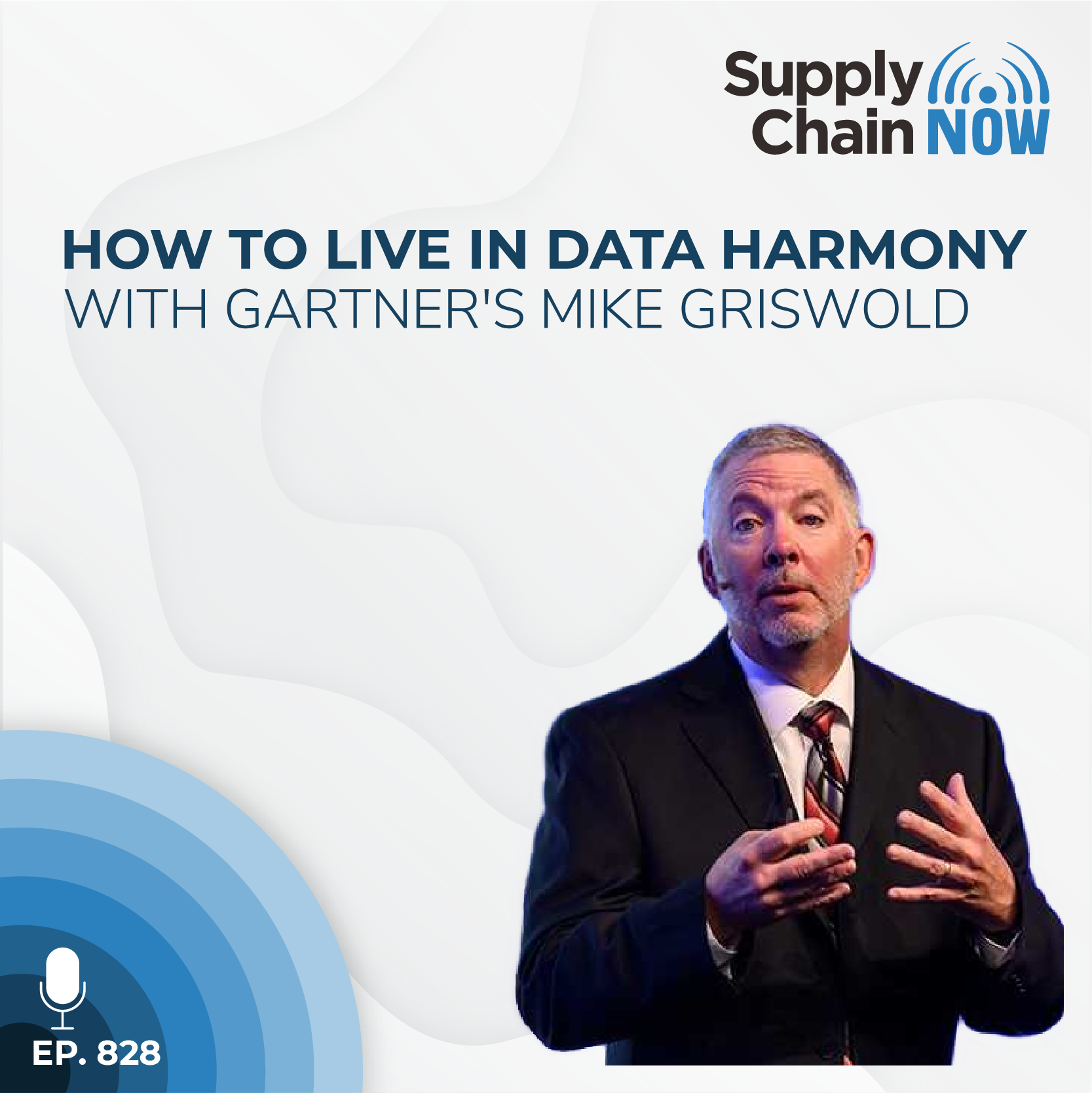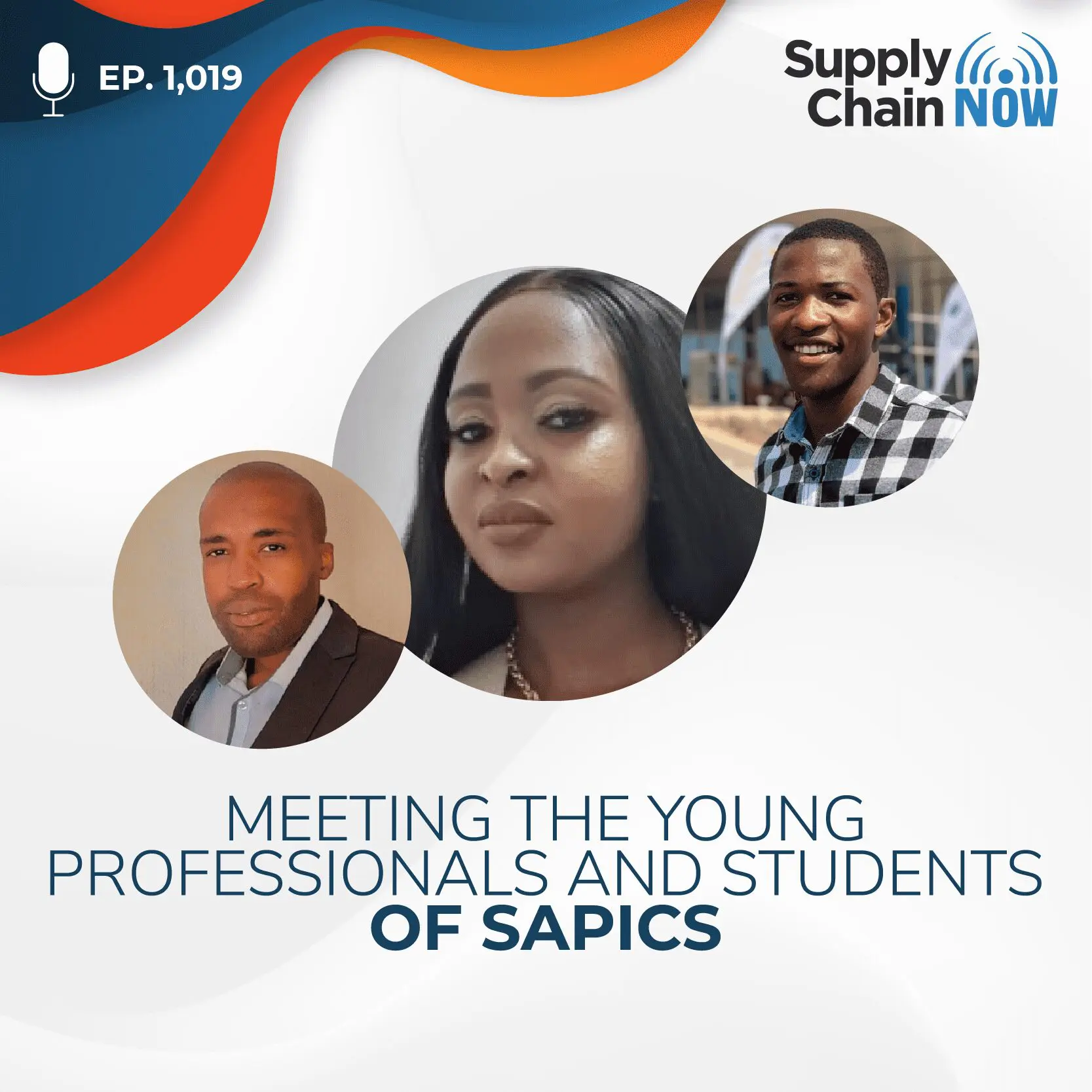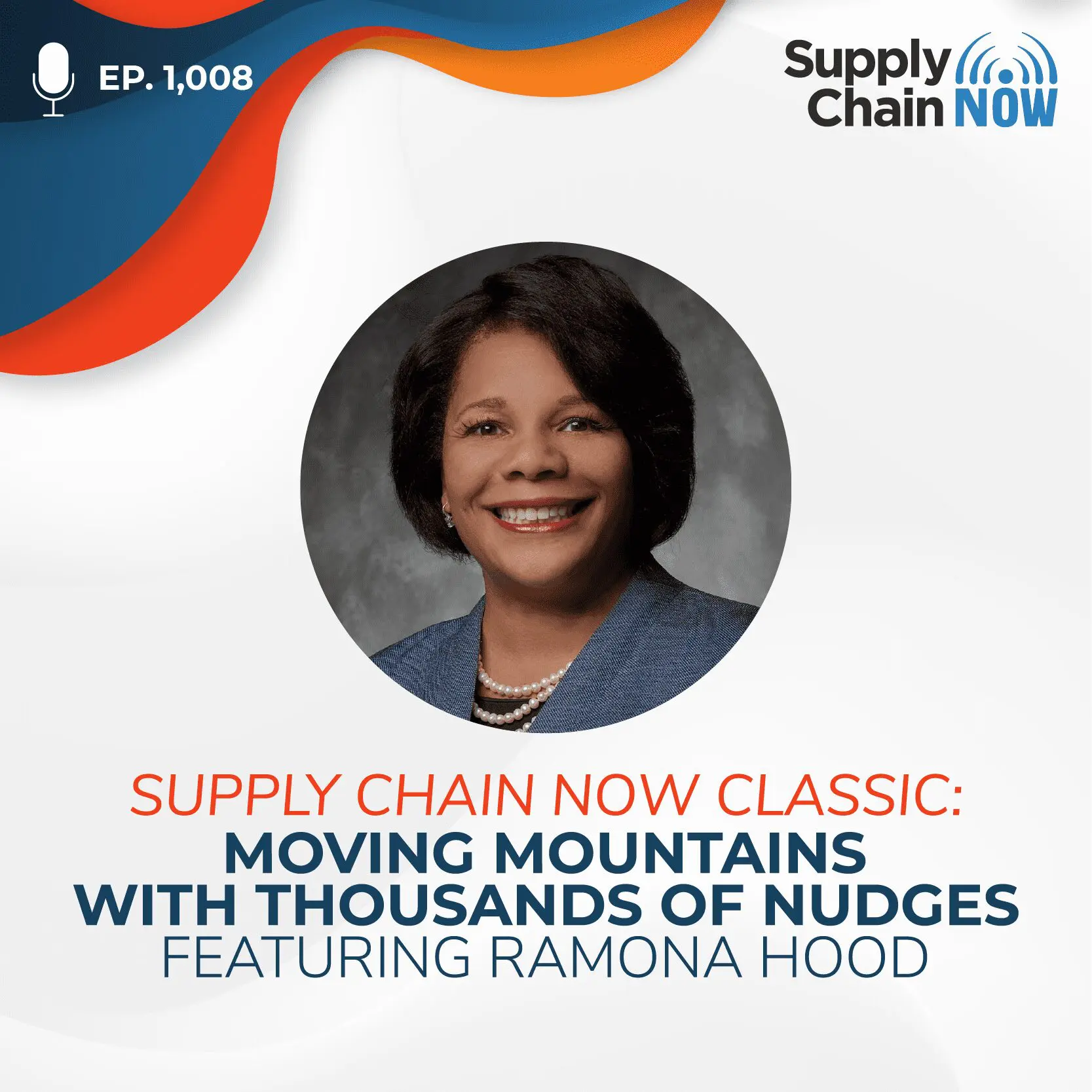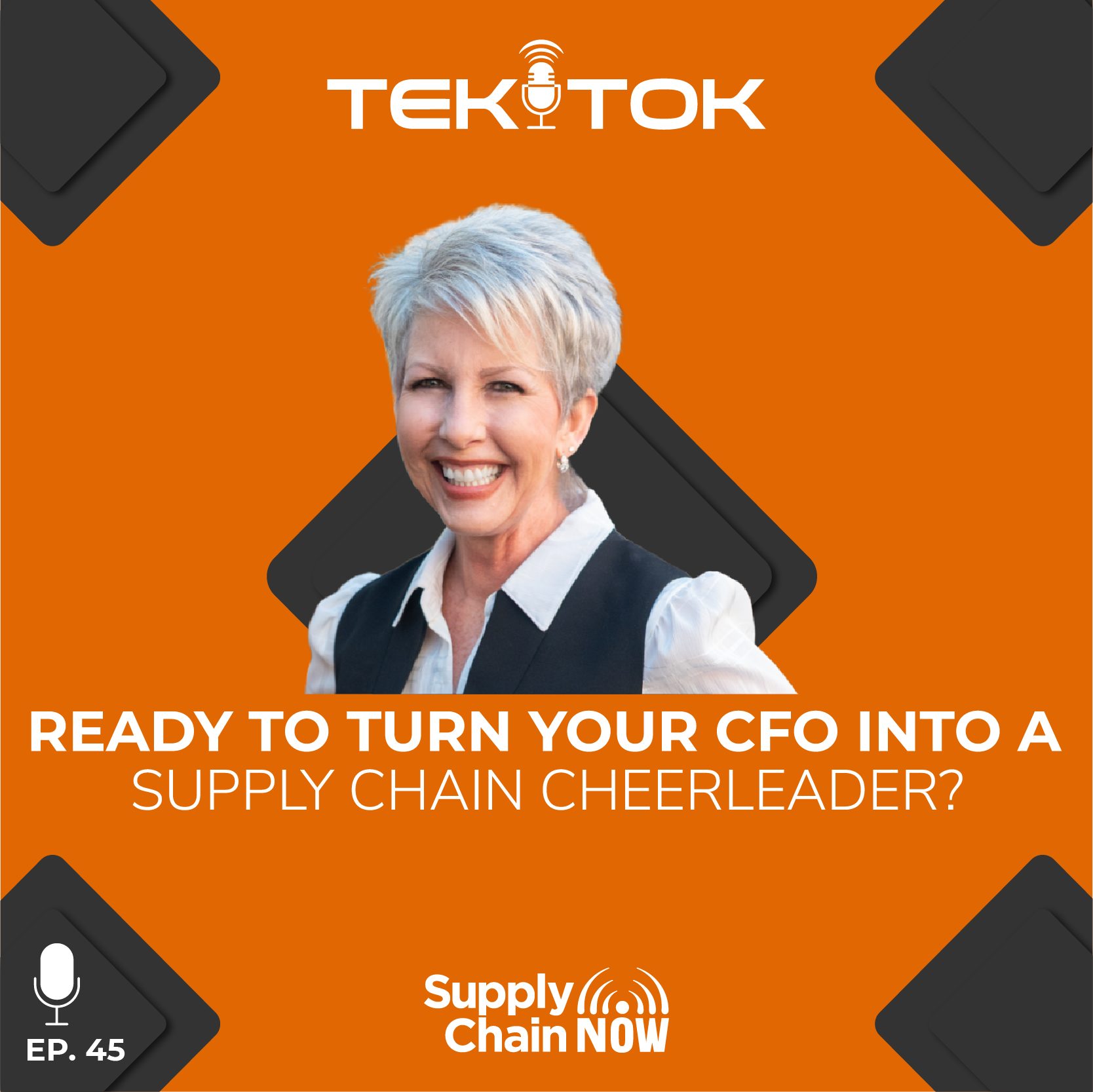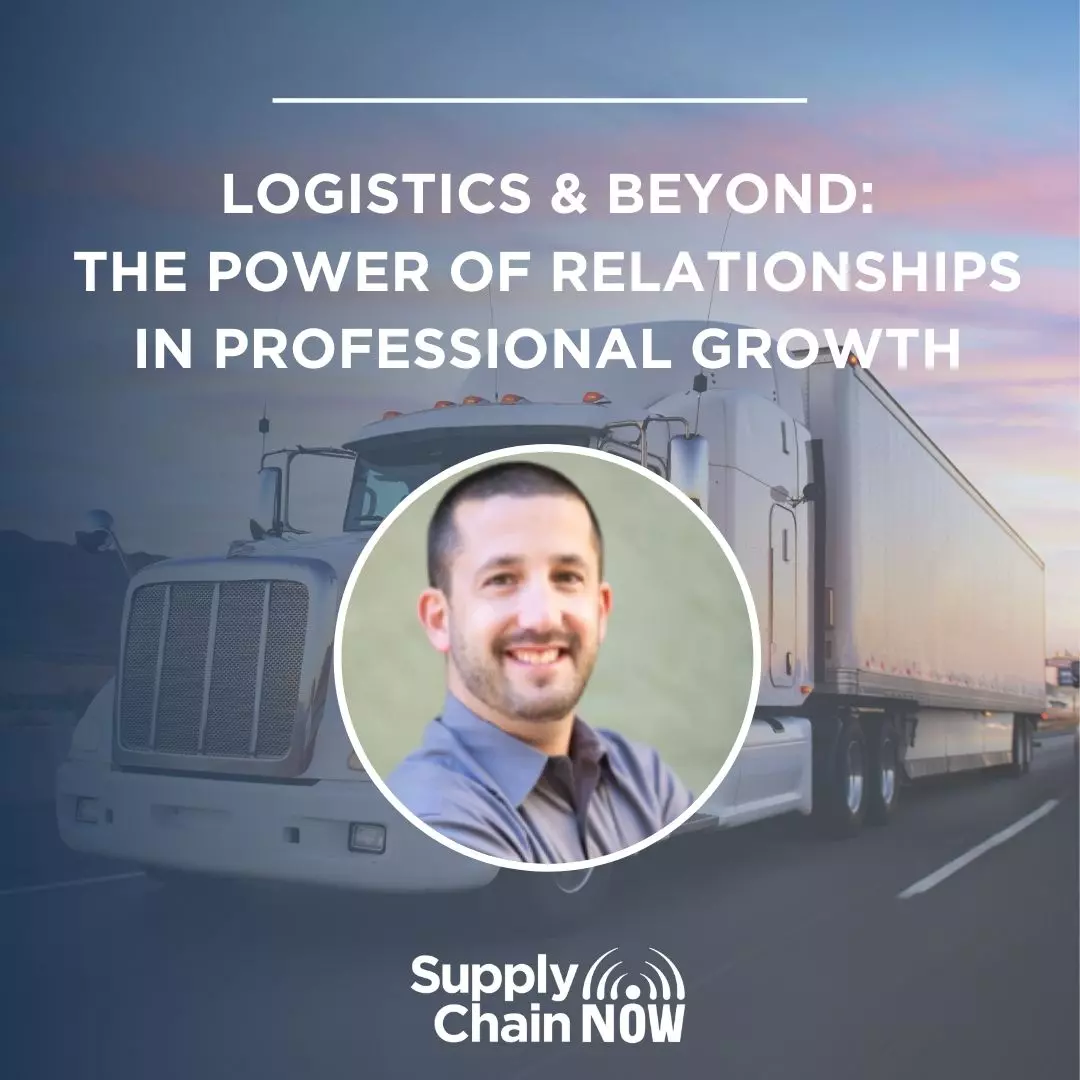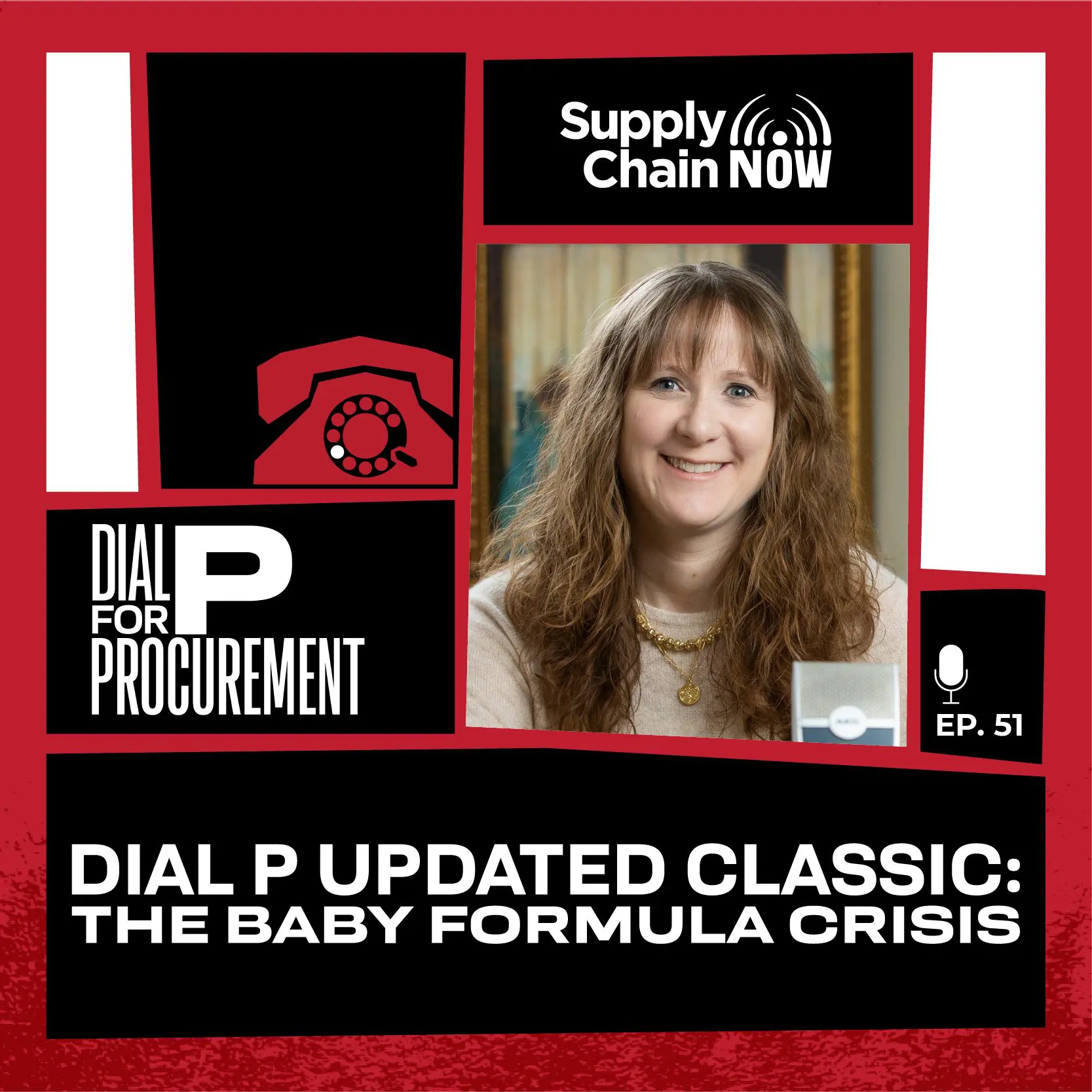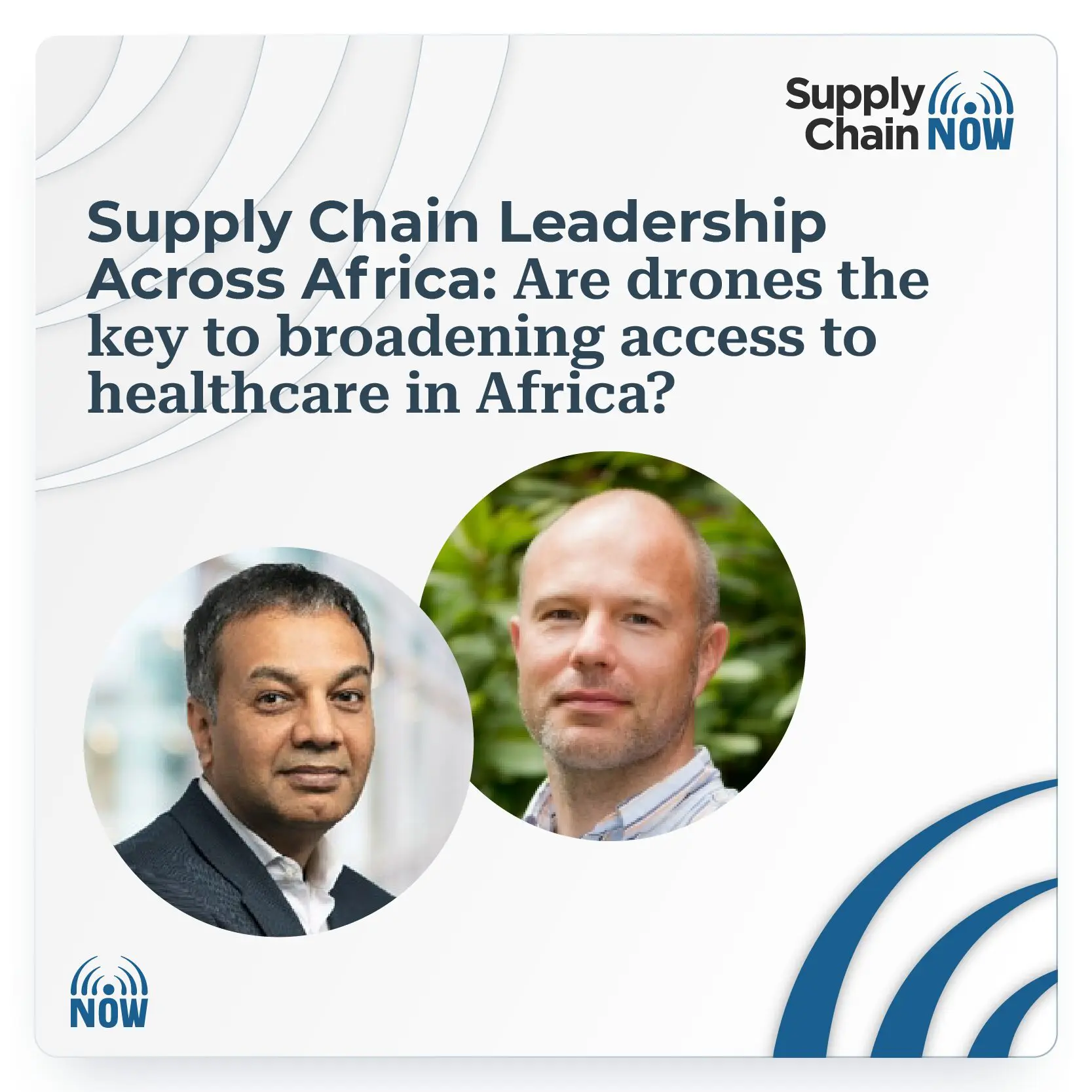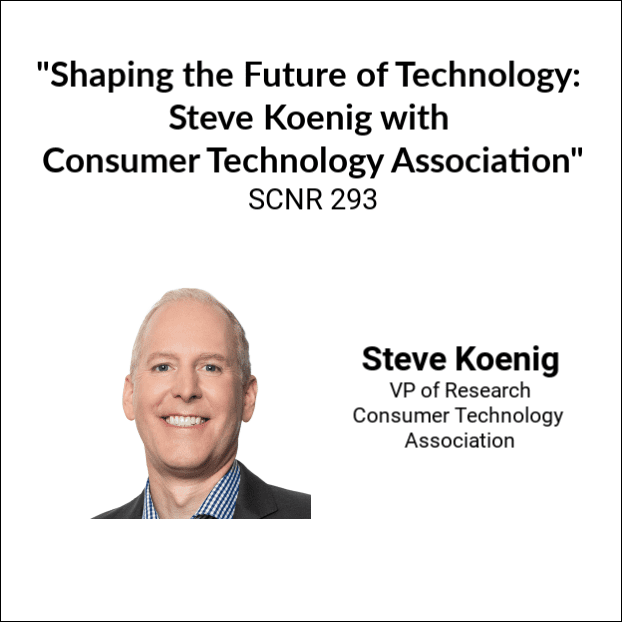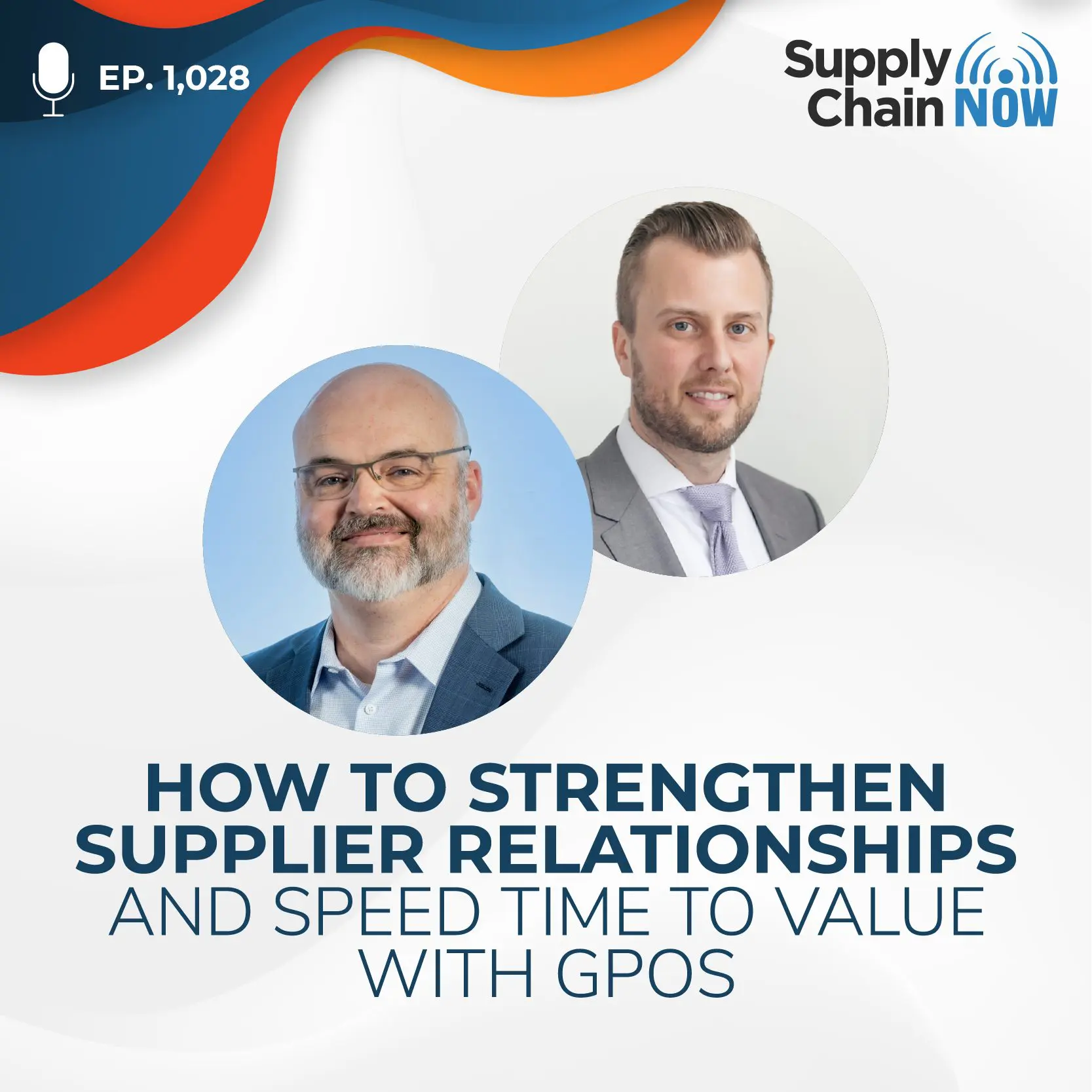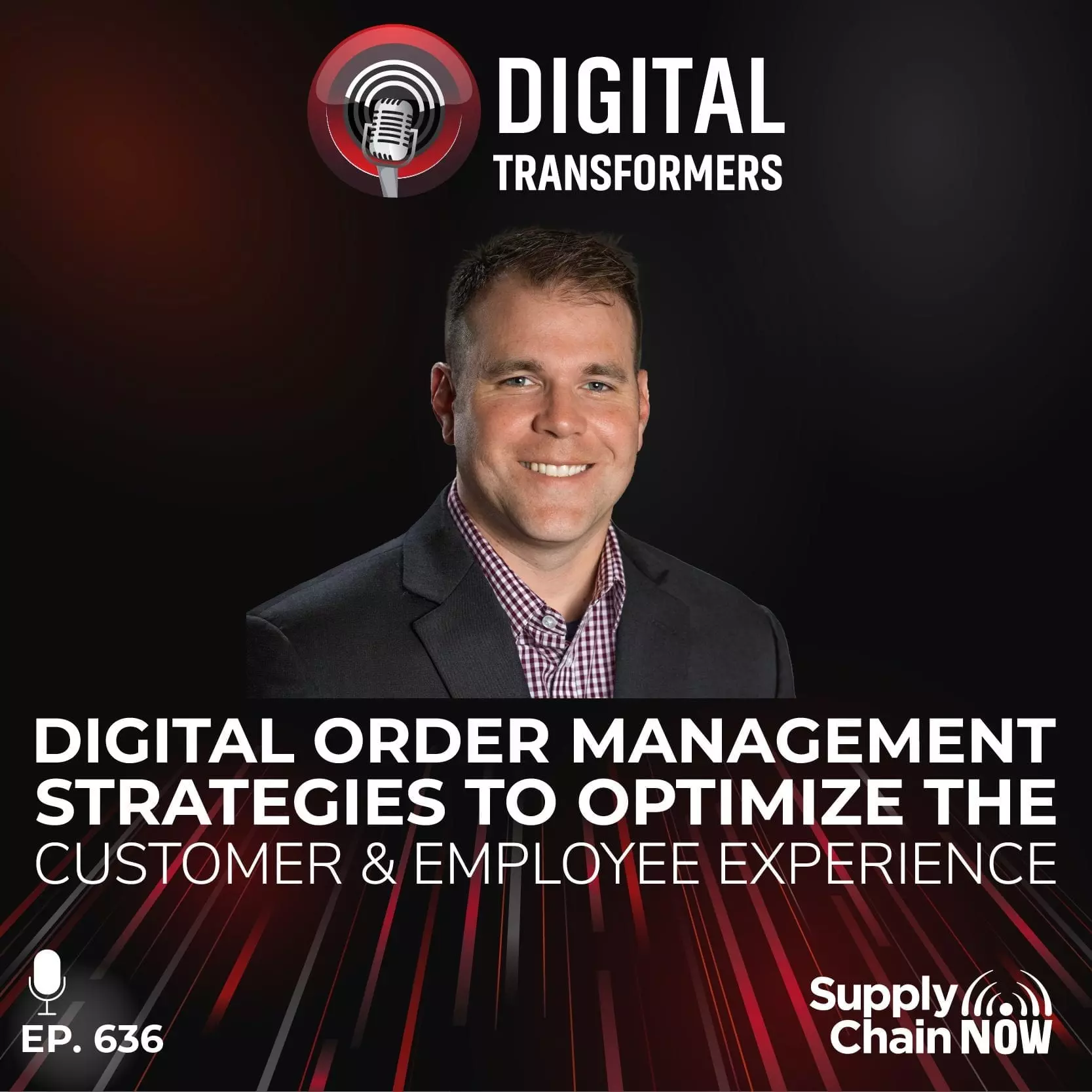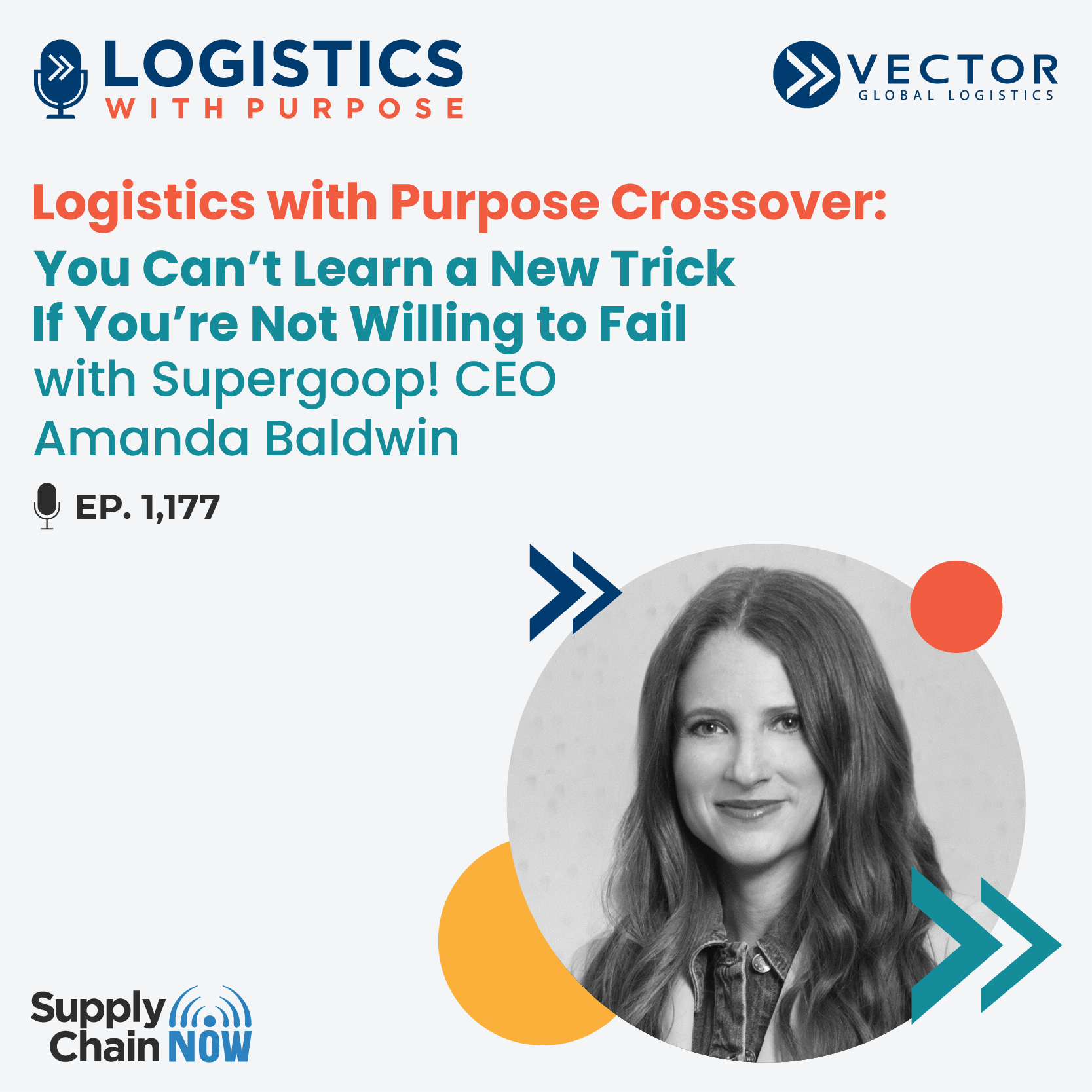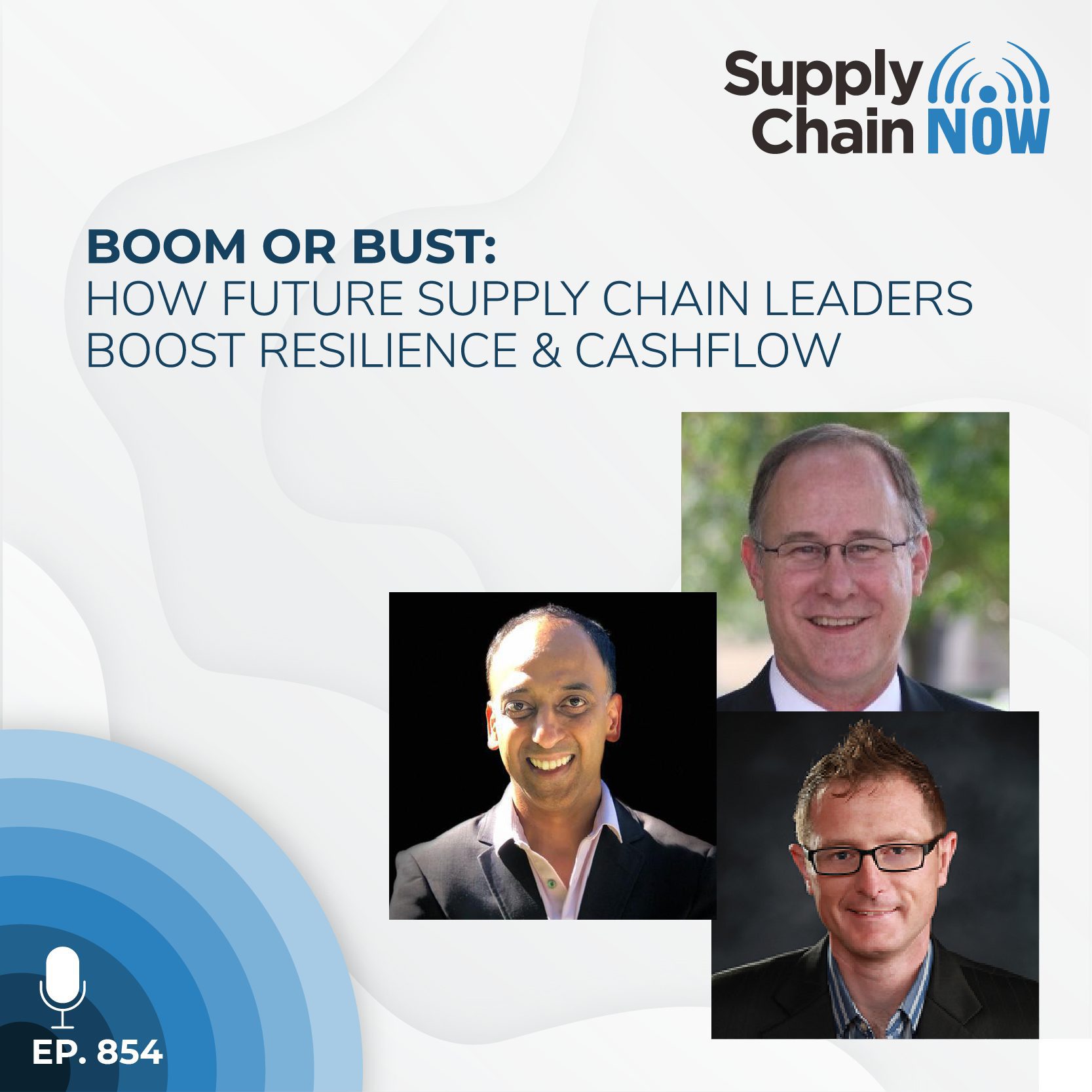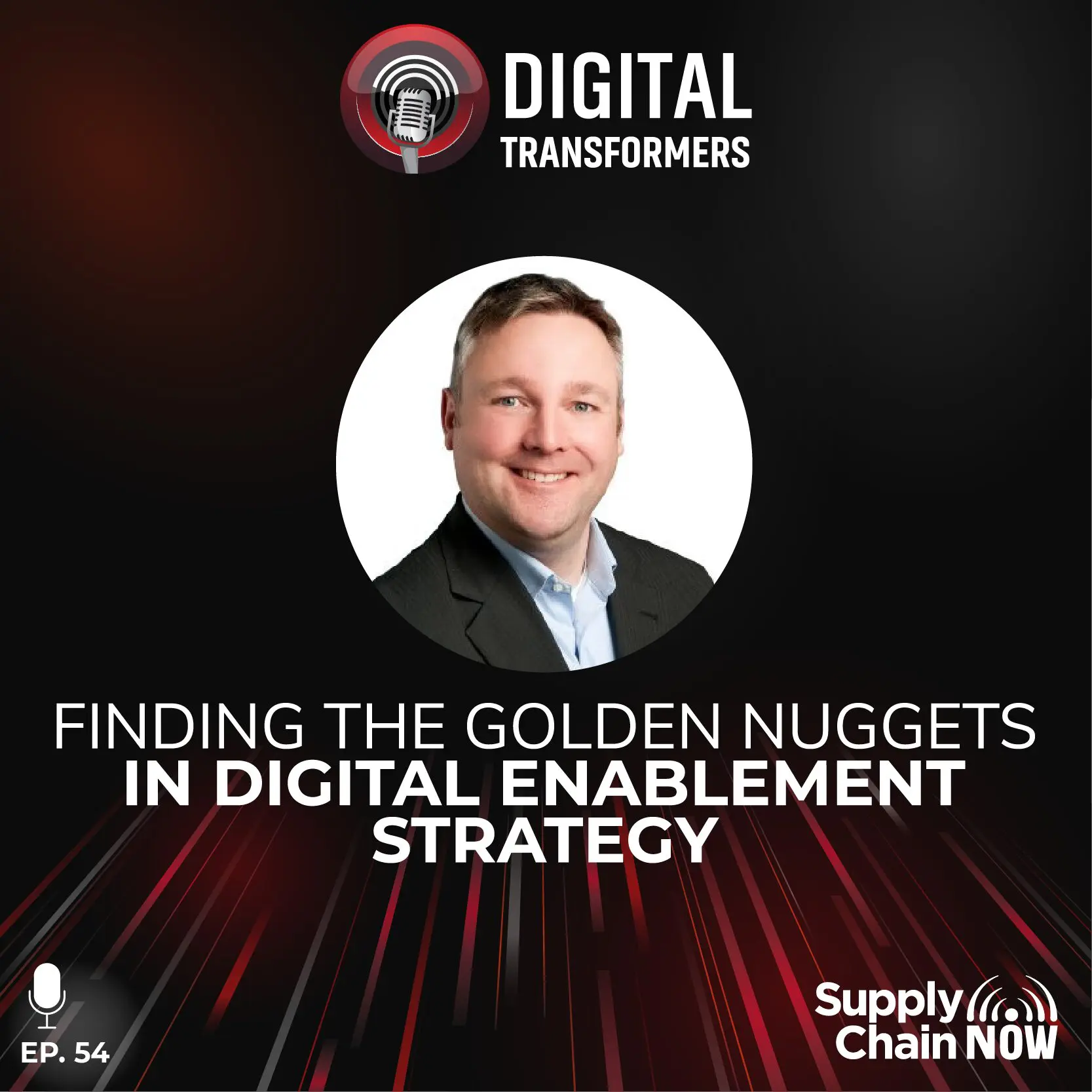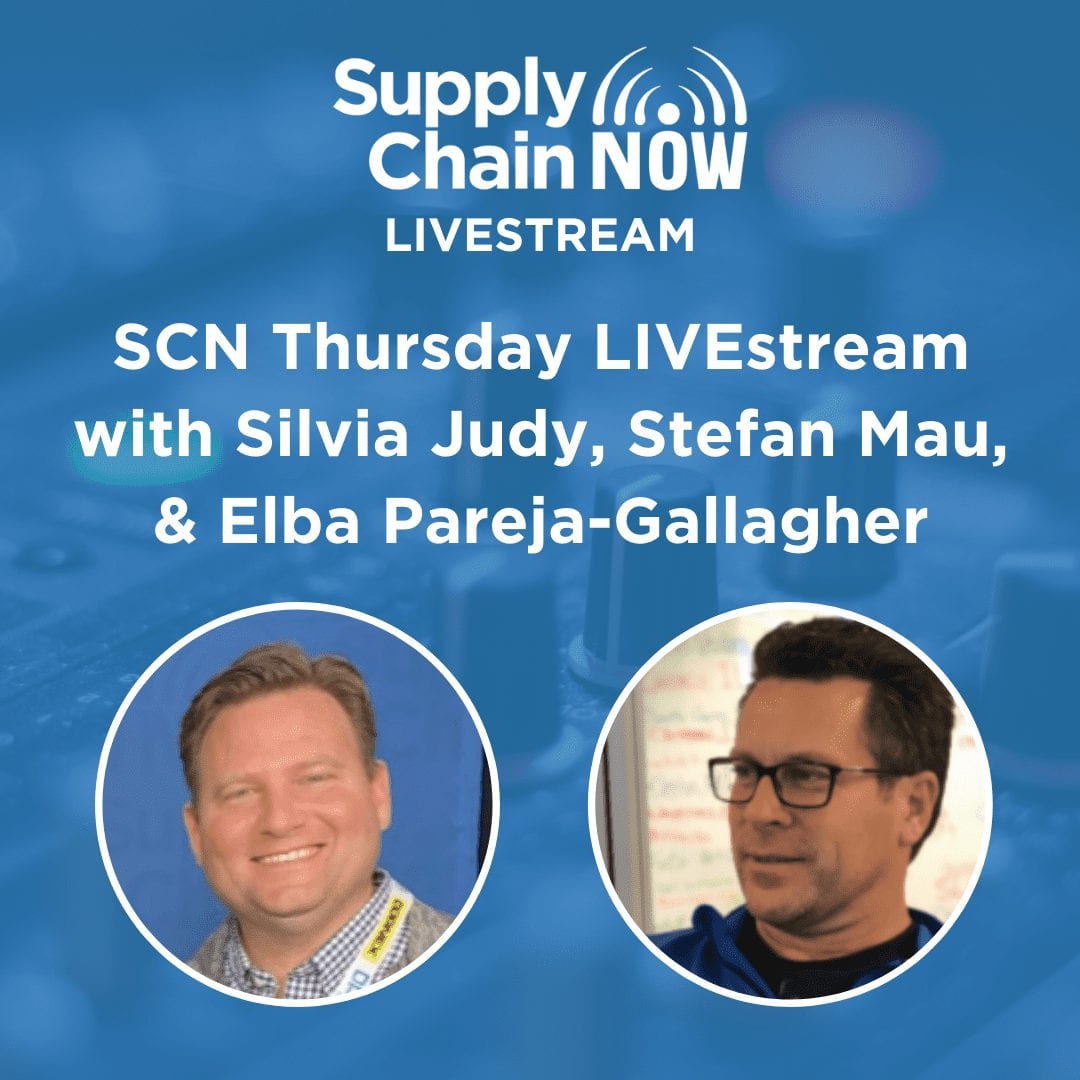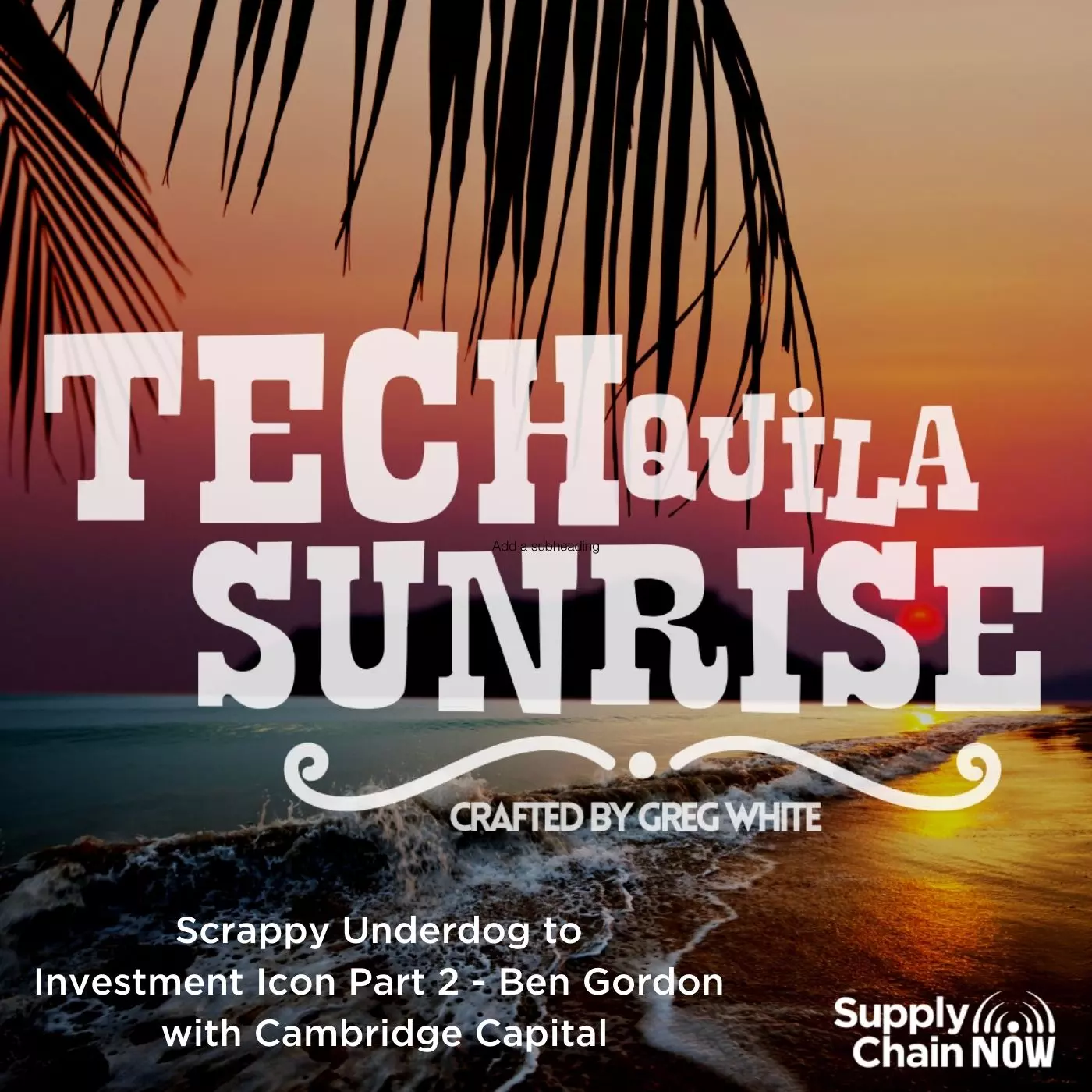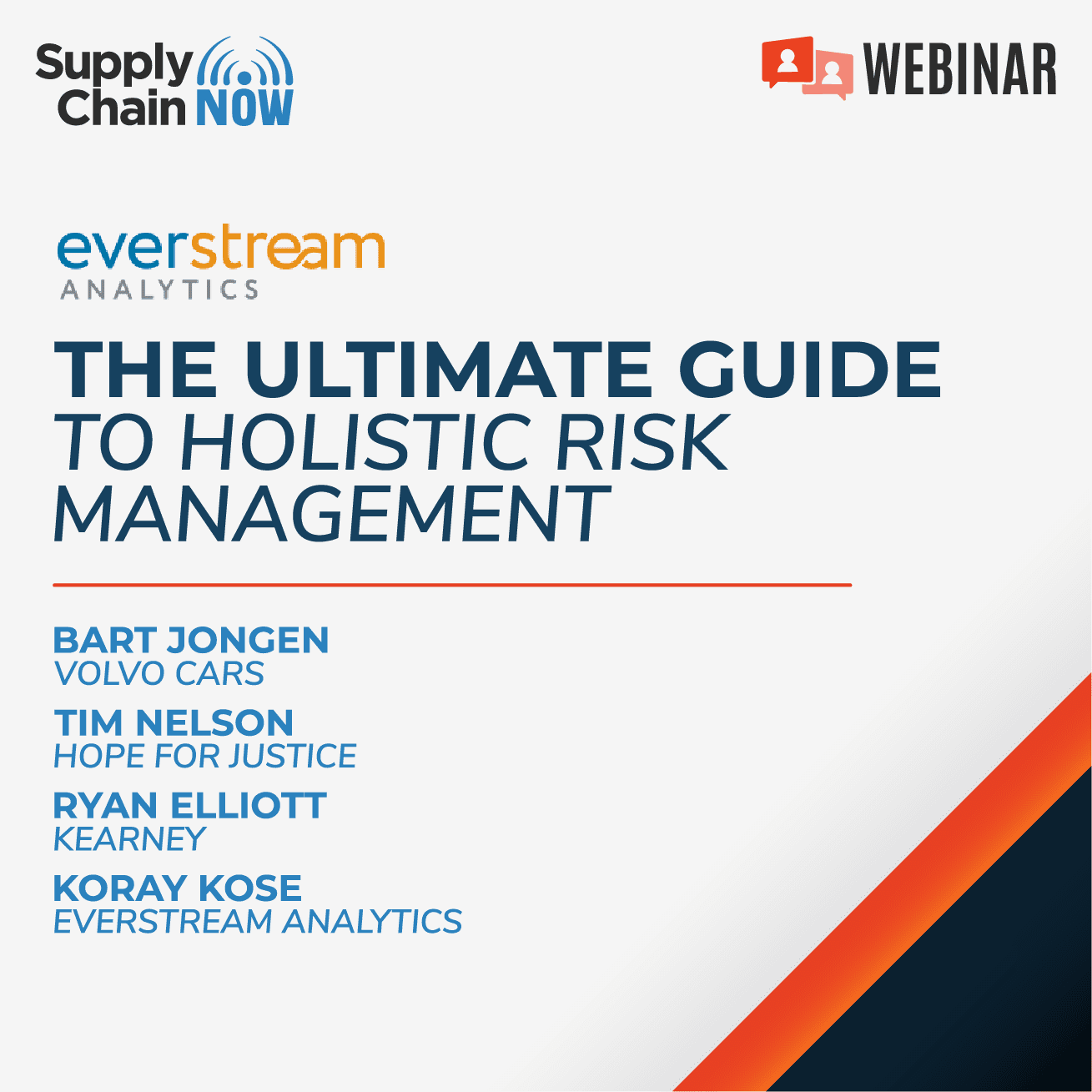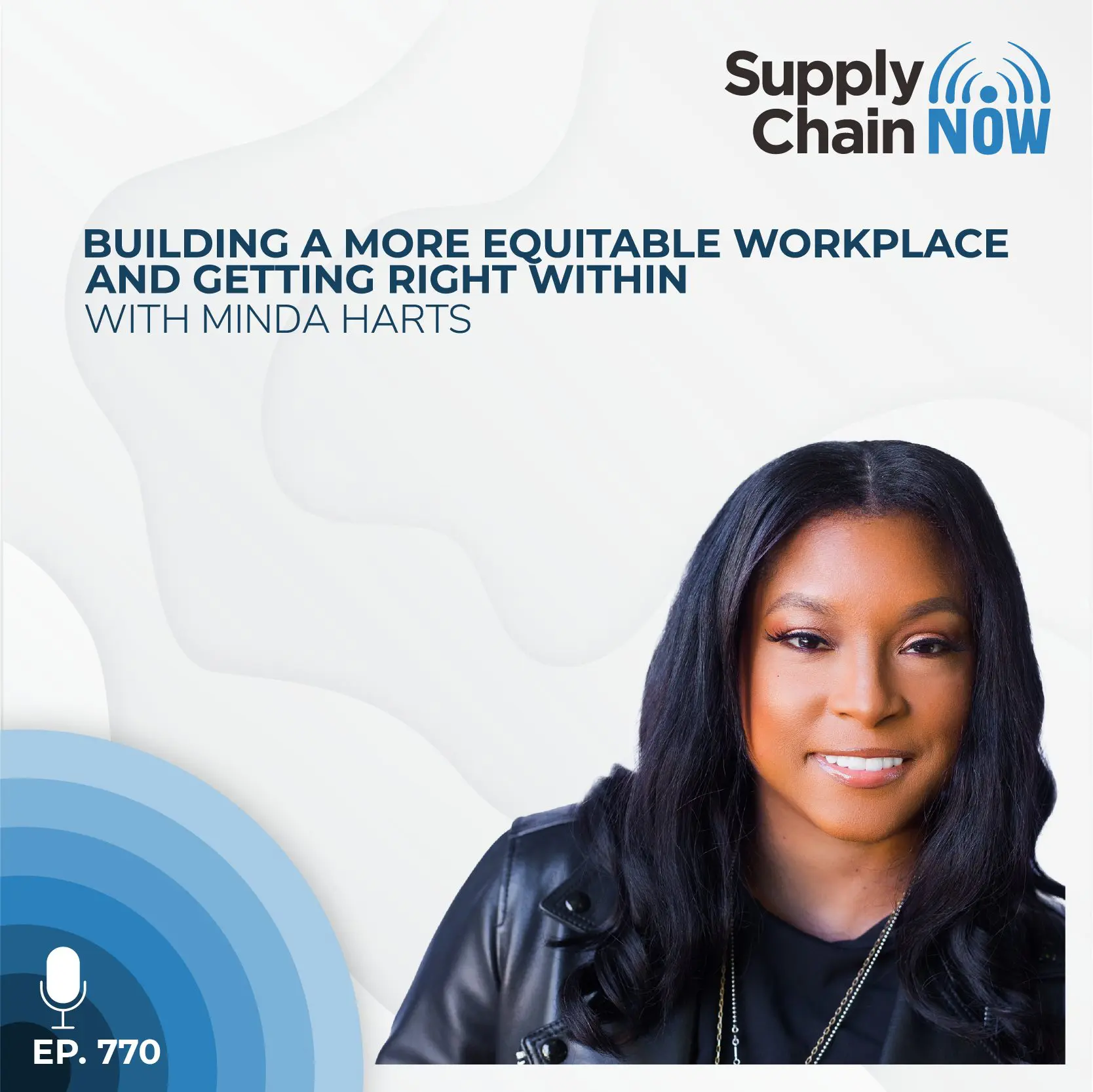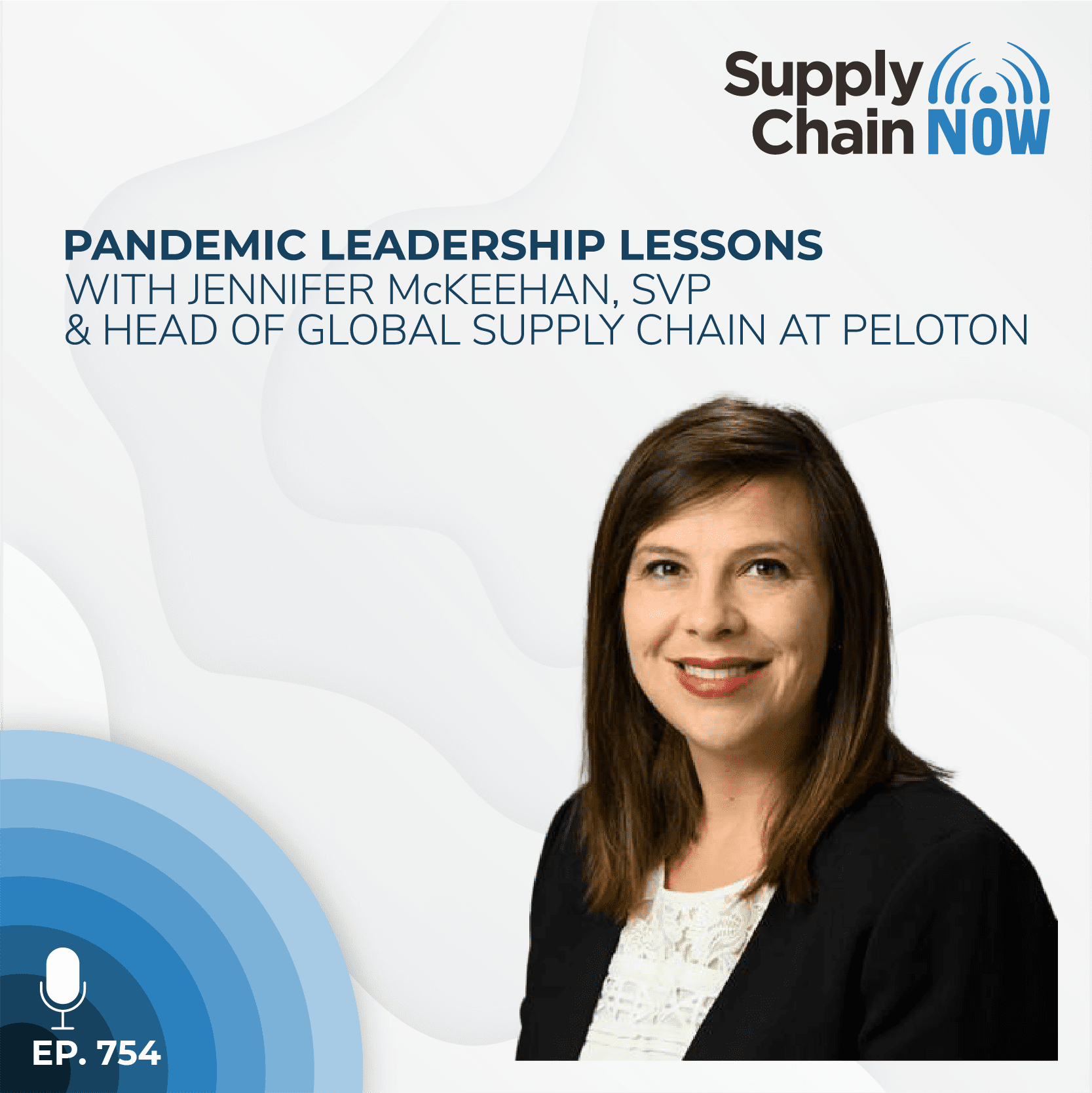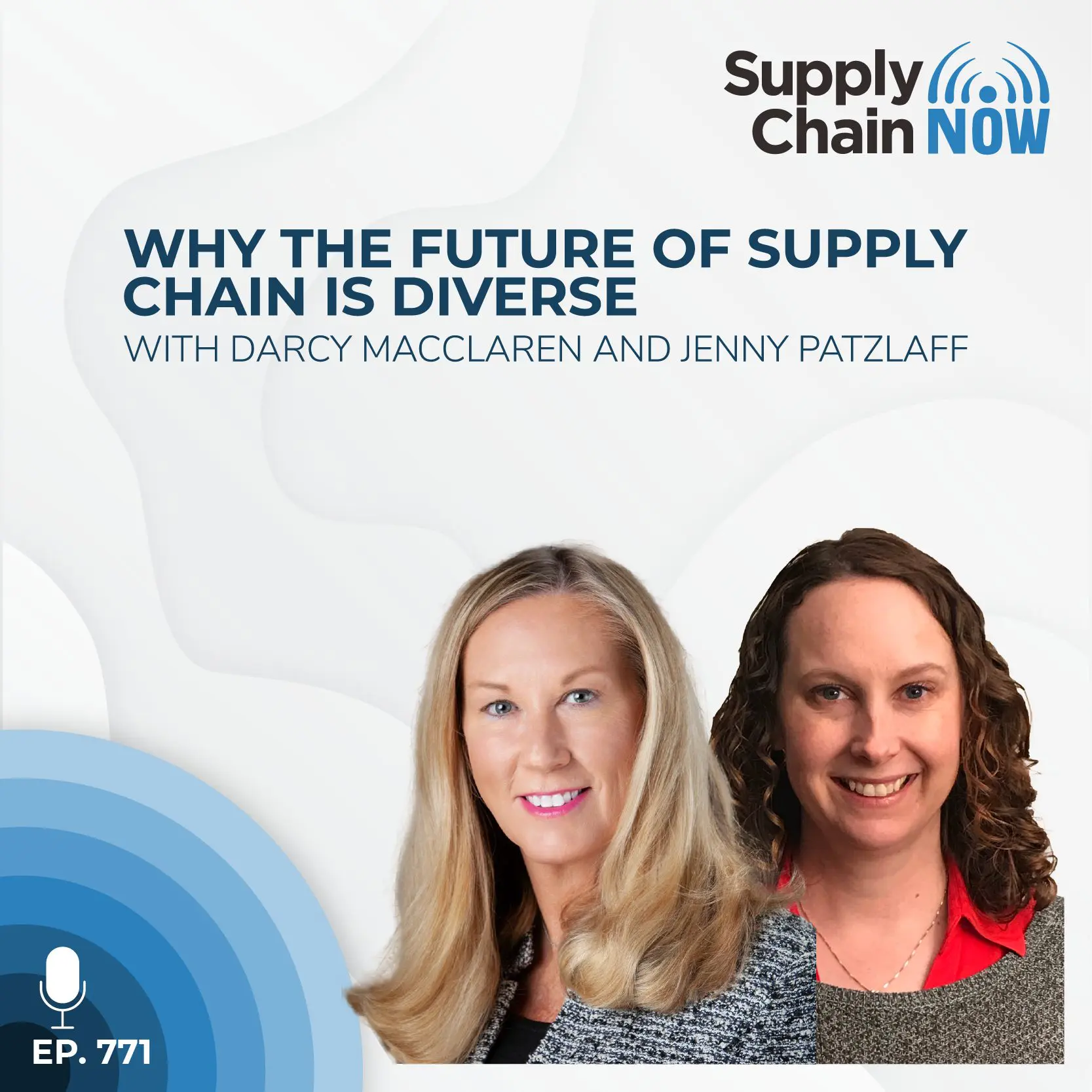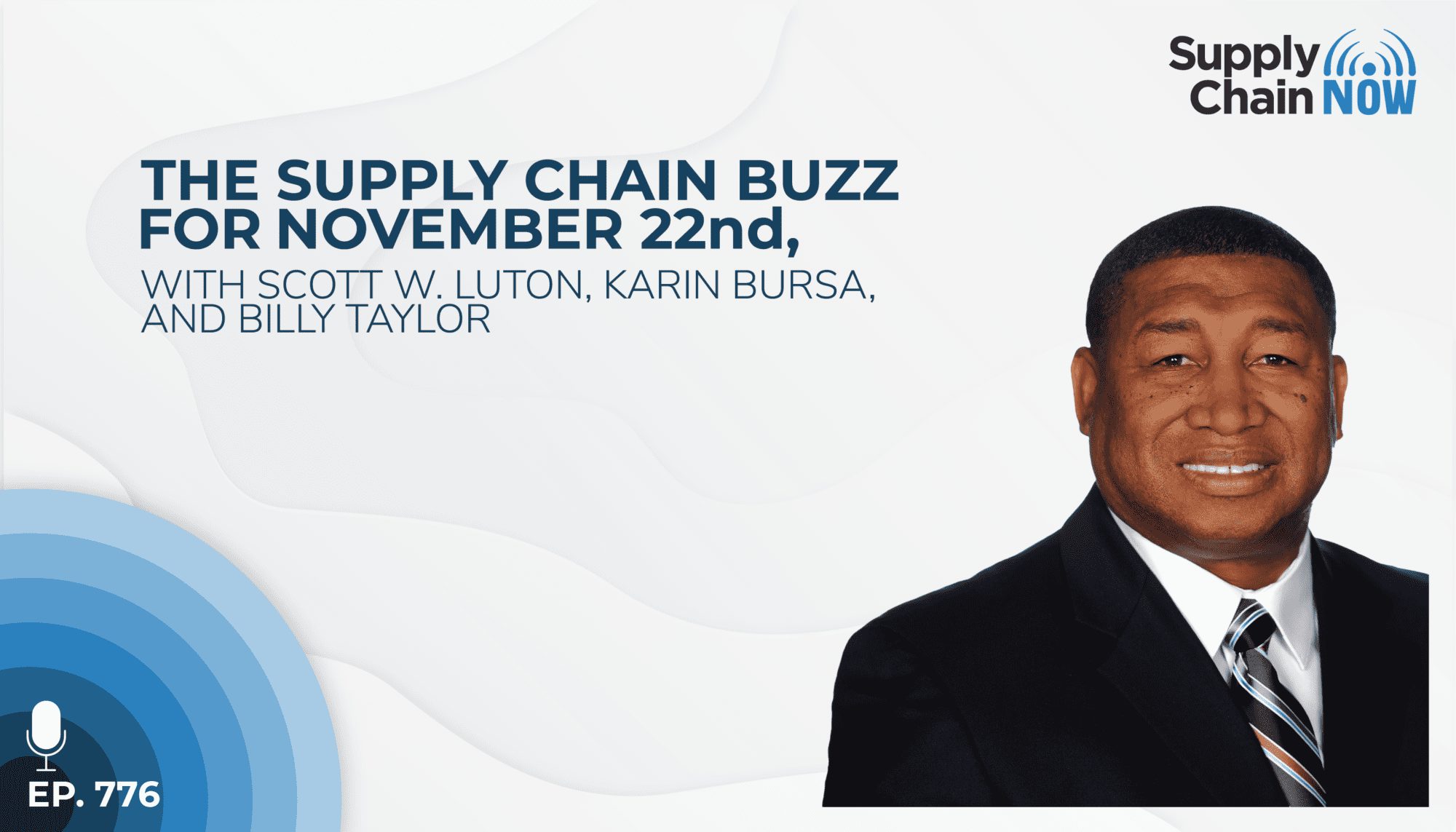
Episode Summary
In this episode of the Supply Chain Buzz on Supply Chain Now, hosts Scott Luton, Karin Bursa, and Billy Taylor tackle the top news in supply chain this week and share their key takeaways and unique perspectives.
Episode Transcript
Intro/Outro (00:00:03):
Welcome to supply chain. Now the voice of global supply chain supply chain now focuses on the best in the business for our worldwide audience, the people, the technologies, the best practices, and today’s critical issues. The challenges and opportunities stay tuned to hear from those making global business happen right here on supply chain now.
Scott Luton (00:00:30):
Hey, good morning Scott Luton trailer versa with your supply chain out. Welcome to today’s live stream Karin, Billy, how are we doing?
Karin Bursa (00:00:40):
Doing great. Doing great. How are you guys today?
Scott Luton (00:00:43):
Absolutely. Great. Excellent. Everybody is great. It must be a wonderfully productive Monday morning here, November 22nd. Hard to believe we’re almost to the end of November already Karin. It blows my mind.
Karin Bursa (00:00:55):
I cannot believe I can’t believe December is next week, so it’s, don’t blink, whatever you do. Don’t blink.
Scott Luton (00:01:03):
Yeah. Ain’t that the truth? Well, Hey, uh, it wouldn’t be a Monday without Murphy’s law. Checking in to see how we’re doing and we just did a fix and solve a challenge right in the Nick of time. Didn’t we? Correct?
Scott Luton (00:01:17):
Well, great to have you current bursa course, a host of our tech talk digital supply chain podcast, along with Billy Taylor, the one and only who is launching a new podcast, uh, with us here, the winning link, Billy. Good morning. How are you doing good morning. I’m doing outstanding, outstanding best day ever best day ever. We’re going to have to learn a lot more about what’s going into your day already. Now, Billy, we do understand, uh, over the weekend you were able to kind of recharge your batteries a little bit, right? Absolutely got a chance to rest and family and friends, and it was great, great weekend hanging out with my son. Awesome. Awesome. Well, Hey folks, uh, buckle up today is the supply chain buzz where we share some of the leading stories across global business. So get ready and Hey, we want to hear from you.
Scott Luton (00:02:06):
So we’re going to be walking through. We got a, we got a full plate here today, a full Thanksgiving plate here today, walking through five stories, but you’re going to get my take. Corrine’s taken Billy’s tape. We want to get your take too. So do you want us in the comments? Let us know what you’re thinking. Um, Kerryn and Billy, before we say a load to a few folks, let’s, uh, let’s share information on an upcoming webinar Corrine that you and I are, uh, teaming up on. Let’s see, December 9th, it’s just around the corner, right?
Karin Bursa (00:02:34):
Just around the corner. And it’s shaping up to be a really interesting session on accelerating innovation through collaboration. Um, I know you know this Scott, but we’ve had a number of different executives and thought leaders with Transplace here on supply chain. Now over the last six or eight months, everyone from the CEO through to several of their senior vice presidents, I’m really looking forward to, um, to meeting Michelle McBride. I haven’t met her yet. And to hear about some of the things that she’s leading in the organization, cause she’s the director, one of their directors of product. So she’s on the front line, innovation driving new capabilities and obviously a keen focus on collaboration here.
Scott Luton (00:03:23):
Yeah. Uh, w I look forward to it as well. We have, we’ve had a parade of freight and supply chain leadership from our friends at Transplace. I’m looking forward to this next one on December 9th and Billy, Hey, we’re innovation and collaboration intersection, innovation, collaboration, big gains are made. Right,
Billy Taylor (00:03:39):
Right. That’s where as we sit in the entire business, the rubber meets the road, right? That’s that’s when change happens. And, and that’s when businesses actually start to thrive, right. New ways of doing business, because business is always evolving and you have to stay on top of that.
Scott Luton (00:03:54):
Yep. Well said, and Hey, our listeners may remember, uh, you know, Corrine, you and I are old timers here at supply chain now, but Billy is one of our newest, uh, hosts. Billy spent a lot of time leading manufacturing for Goodyear, which is where he knows lots about the tire business. Uh, and one of my favorite phrases round and black and out the back, I got that right, Billy. That
Billy Taylor (00:04:16):
Is, that is,
Scott Luton (00:04:18):
That means a good day. If that’s taken place,
Billy Taylor (00:04:21):
That’s right. How the customer wants it when they want it.
Scott Luton (00:04:25):
Hey, folks, join us on, uh, the 9th of December for this great session with Transplace, uh, where we’re gonna be talking a lot more about the intersection of innovation and collaboration and what that means in real practical terms. Yep. Okay. So we’ve got no shortage of stories to get to here today. We also, um, uh, we’re gonna talk a little bit on the front end folks about Thanksgiving and thanks. And food, you know, Corrina, Billy, we love our food around here. Right.
Karin Bursa (00:04:56):
And we’d like to talk about our food that’s for sure. So
Billy Taylor (00:05:00):
Yeah, that’s kind of a loaded question. Got, you know, my wife said I’m twice the man she married and it’s not a compliment.
Scott Luton (00:05:08):
Well, Hey, we’re going to have lots of fun here today. And by the way, folks, uh, we do love food so much. We created a Facebook group called supply chain ciao, and we rolled out a little contest over the weekend. You know, this is our favorite holiday here in the Luton household. And, uh, we want to celebrate it by getting folks to share their story, their, uh, dishes, various dishes related to Thanksgiving, and most importantly, where the recipe came from. Right. So I think we’re giving away a big gift card, uh, based on the winning submittal over the next week. So stay tuned for that.
Karin Bursa (00:05:42):
Uh, Scott, can I give one caveat? So don’t go to that Facebook group. If you’re hungry, you will need a snack immediately when you see some of the pictures and descriptions there. So I’m not a foodie, but even when I visit that, that page, that group, it makes me hungry. It makes me want to be a [inaudible]
Scott Luton (00:06:05):
I’m with you. And it does make us hungry. And, uh, you know, we’ve stolen some great recipes from these submittals. Uh, so thanks for sharing and thanks for your, uh, your endorsement, uh, Korean, um, really quick, let’s say a load to a few folks before we, we, uh, geBilly and Corinne to share about their favorite Thanksgiving dish and who makes it, uh, Michael aver is back with us. He’s one of our longest running commenters and participants in the sky box. Michael hope this finds you well. And yes, we’re still celebrating the, uh, Atlanta Braves winning the world series, which we never saw coming. Um, but Hey, this is the era of, uh, of curve balls and, uh, surprises in business and elsewhere, right? Uh, Jean pledger from north Alabama is with us here in gene. I think I owe you a LinkedIn message. Hope this finds you well, Michael and Jean, uh, I’m going to be asking Kerryn and Billy, uh, their favorite Thanksgiving dish and who makes it, I’d love to get y’all’s in the comments and welcome everybody else. We’re going to dive in because we’ve got a lot of news to tackle here today. So, but really fun. Quick question on the front end. Uh, Billy, I’m gonna start with you. I’d love for you to share, you know, Thanksgiving is just around the corner. As I mentioned, one of our favorite holidays is food camaraderie, no need to get gifts, you know? Um, and, and it’s all about being grateful. Um, so Billy share with us your favorite Thanksgiving dish and who makes it
Billy Taylor (00:07:29):
My favorite dishes. Mom’s sweet potato pie. I mean, it is, it’s love built into the recipe. It seems, you know, and I, I just hover that the, you know, it, I think it’s, uh, uh, the reflection of the, of what I grew up with with my mom, but that pie is the best.
Scott Luton (00:07:51):
I love it. Now, Billy, when you do something like that, it makes me question. If anyone else is able to get a slice.
Billy Taylor (00:07:57):
Alright, not a, my mom, I won’t my PI,
Scott Luton (00:08:03):
Uh, I love it. I love it. Uh, Natalie. Hey, welcome, man. Thanks for joining. She’s tuned in from North Carolina. Uh, great to have you back, Natalie. Her favorite dish is the mashed potatoes. That’s a really good one. Um, okay. Korean, you got to give us a good what’s your favorite dish and who makes it?
Karin Bursa (00:08:19):
So I do like the classic green bean casserole is really good with the onions on top and make it a little spicy. So it’s got a kick to it and I do like this sweet potato casserole or a sweet potato pie slice next to it as well.
Scott Luton (00:08:36):
Yeah. All of that’s good. Who makes the green bean casserole for y’all’s household Kerryn? Well,
Karin Bursa (00:08:42):
I make it, that was my grandmother’s recipe.
Scott Luton (00:08:45):
Awesome. And we’re, where’s your grandma? Where’d your grandmother grow up?
Karin Bursa (00:08:50):
Um, she grew up in, um, the Midwest, but, um, spent half her life in south Florida. I’m not sure where it was influenced from, but it was definitely perfected over the years.
Scott Luton (00:09:02):
I love it. I love it. Uh, thanks for sharing. We’re we’ll, we’ll be looking for pictures of that green bean casserole Korean and the sweet potato pie. Billy Taylor, um, Michael Avis says we eat homemade Attallah and family style meal. So it’s probably homemade gnocchi or hand rolled ravioli. How about that? Um, that’s a really cool Thanksgiving tradition in it. Uh, Jean pledger says my ants Ambrosia a very simple dish, but it’s history and memories. Our dear man paint a great picture there, Jean and Michael. And again, we challenge all both to submit to our supply chain chow contest and Avaya for the prize cause stuff. Um, I’ve got to add mine. So, uh, there’s about 200 of my favorites and my wife, my dear wife, Amanda makes a hundred and at least 90 of them. Let me say that really clear. She’s a great cook.
Scott Luton (00:09:57):
Um, but you know, growing up, like if I think traditionally my aunt Linda who lives in Aiken, South Carolina, uh, ha makes the strongest Mac and cheese and was well-known for it. And it was a bit unique. Um, and I’m not even sure what goes into it all, but gosh, uh, it it’s made in a big casserole dish and I had to be careful not to take too many scoops out of it on the first pass to make sure everybody could get some. So aunt Linda loved that and hope we can, um, enjoy some of that later this week.
Karin Bursa (00:10:26):
Scott and Billy, are you Turkey or ham for Thanksgiving?
Scott Luton (00:10:31):
Billy Turkey for me Cherokee, my wife makes a main dish. So we do both. Uh, if we’re home it’s you? Well, I think when you do both even we’re home, but my dad makes fried turkeys and he’s got this process set up a billing Korean he’s. He basically has a factory in his garage. He doesn’t for some of his neighbors and he just he’s got it fine tuned. And I’ll tell you, um, there’s not much better than fried Turkey that just got out of the fryer and it’s cut up and still hot and tasty when you hit, when it hits your plate. So, Hey, we’re all hungry army. Ready to go? Alright, so folks again, thanks for joining us here today. Hey, Sylvia is with us tuned in, but says she’s buzzing in for a few. Uh, they’re from Charleston, the holy city. Great to see you here today, Sylvia.
Scott Luton (00:11:23):
All right. Are we ready to get to work Billy and Kerryn? Yes. All right. So let’s do that. Let me see if I can pull up my graphics here. So I want to talk about, uh, here on the supply chain buzz, we’re going to talk about Starbucks first, right? Be this article from our friends over at supply chain dab. Now Billy Kerryn, I’ve got some good news. It looks like there won’t be any breakdown of the caffeine supply chain this holiday season, because other than perhaps wine, we got to keep the caffeine supply chain going, right. Um, so Starbucks feels really confident with their inventory levels, where they are at least right now to really meet demand, especially perhaps increased demand that they have over the holiday season. So get this, they’ve added new suppliers, they’ve increased production of things like oat milk, breakfast sandwiches, get this egg bites. I’ve never had an egg bite. We’ll have to see what those are and other things. And in an interesting move, Starbucks is taking steps to ensure its suppliers have full staffing, right? So they can get around the workforce issues that so many companies are facing with because they’re, uh, they’re doing that by investing it, it appears in their suppliers, workforce wages. So maybe they’re complementing, uh, current levels of compensation. So Hey, that represents to me a progressive forward thinking next generation supply chain, upstream and downstream. But what’s your take, Karen, I’ll start with you.
Karin Bursa (00:12:46):
Well, first of all, I think this is a great example of extending your product portfolio. So you’ll notice in, in the article, they’re not really talking about the caffeine or the coffee supply. They’re talking about all of these awesome sides that they have to go with their coffee, so extended, um, product portfolio for them. I applaud the fact that they’re working with their suppliers and bringing on new suppliers, right? So we need that supplier liquidity that can help us to scale when needed and to pull back when, when needed as well. So, um, I think it’s a great story around the visibility, um, leveraging trading partners in your network, but keep in mind that, um, Starbucks is as many, many others are facing as well as looking at commodity price increases, you know, somewhere in the range of about four or 5%. Um, and then has all the same struggles that every other retailer has or every other restaurant has right now with transportation and staffing, et cetera. So I love the fact that they are getting their arms around the pieces that they can control and influence. It’s. It’s a great message.
Scott Luton (00:13:59):
Excellent point, current. And by the way, you made me think of it. Um, I have popped into a Starbucks a couple of times over the last couple of years and they don’t have, they had this ham egg and cheese breakfast sandwich. And there’s been, there’s been several times where they haven’t had that on hand. So Billy May be there. They’re ensuring that those law sales don’t happen this year.
Billy Taylor (00:14:18):
That’s correct. You know, I looked at business itself when I was in Goodyear, running in north America, we talked about three things, right. Create, capture, and fulfill demand. And so you have to be very creative when you go into those three buckets. I, and most companies are very good at creating demand, right? You do just marketing and Starbucks has done well and they have to sort of capture it. What they’re doing now is focusing on the fulfillment of it, right? And so they’re going out there and they’re, they’re really focusing not only on, uh, the, the actual supplier, but relationships, they’re building new relationships. And if you look at business today, the landscape of business, the smaller guys are winning. Now the smaller they’re building those relationships that are now they can go tap into right. For, for different supply. Right. I remember a salesperson saying I was in a meeting. If you want reliable from a customer, go buy a doll. Well, no, it’s not that way today. Now that that type of loyalty is built in relationships now, and Starbucks is doing that. They’re going out and making these new relationships, new sources. And so that’s where they’re changing the game.
Scott Luton (00:15:26):
I love that. Uh, there are certainly, um, um, jumping in and, and whatever they can control. They’re, they’re, they’re taking that to the next level, right there. They’re finding new ways, innovative ways of making sure they can give the customer what they want. Right. They’re thinking differently about this new reality, which we’re gonna touch on later in today’s show. Um, okay. Mohib is with us here today. I think we’re going to get hungry throughout the show. So y’all bear with us. He says his all-time favorite food is Kansas city burned in Barbie Burt in burnt ins. I believe Billy, you can let us know about that. Right.
Billy Taylor (00:16:01):
And to Piqua Kansas, gate’s barbecue. I’ve I’ve been to a mall. I agree.
Scott Luton (00:16:08):
I love it. And of course Mohib is there in Woodstock, Kansas, the air capital of the world. So great to have you here with us. Mohib um, Curtis has a great question. Uh, comment here, adequate staffing will be a key vendor assessment, not only for existing vendors, but for any new vendors being assessed. Excellent point. Uh, and Michael was talking about the bullwhip effect we’ve we’ve heard about for years, uh, or, or a lot more in the last couple of years, he says, reduce the bullwhip effect by maintaining constant contact with suppliers. Corrinne, you’re really nod your head and it resonates with you.
Karin Bursa (00:16:43):
Absolutely I’m. But I see that the industry as a whole is really going to have, um, a hyper bullwhip potential, right? As we’ve looked at decreased demand for periods of time than increased demand. And then right now we’ve still got goods that are stuck off, you know, off shore from our ports. So we’re going to see an influx of product at some point in time and dealing with all of this variability is going to be well outside, normal variations in both supply and demand. So everybody needs to take an extra, an extra detailed look at, uh, at what they’re forecasting, but also the, um, the supply and sourcing orders that they put into place
Scott Luton (00:17:26):
Well said, we’ll set. Okay. So we’ve got to move from Starbucks to, I want to talk about some of the manufacturing shifts that are taking place due to supply chain snarls. I don’t have my graphic this time. Last time we tackled supply chain snarls, we had an image of a three animals giving us their best snarl and impression. We don’t have that this time. Um, so to Rogers, the Delta variant resurgence shipping issues, and a lot more are leading apparel companies to shift production out of Asia and into markets such as Turkey, Morocco, Portugal, Bulgaria, Brazil, and Mexico. Just to name a few examples include the Spanish retailer mango, which is focused on localization efforts to bring production closer to its, to its customers. Now, Amanda, no word at the company has any relation to the mango on Saturday night, live as portrayed by Chris Catan, but we’ll save that for a later episode. Um, US-based shoe company, Steve Madden’s another example, which is shifting some of its production from Vietnam and China to Brazil and Mexico and Crocs. And a lot of folks love the rubberized Crocs shoes, especially shifts, uh, where they’re shifting production to countries like Indonesia and Bosnia. So Billy, I’m gonna start with you here. You’re taking around some of these sourcing and production shifts.
Billy Taylor (00:18:46):
I think the shift, the industry itself, the current conditions are forcing this and the world is moving from a globalization to glocalization right? And they’re getting the closer they’re moving their manufacturers closer to themselves, uh, from a reliability perspective, uh, so that they know that, uh, they have confidence that they’re going to get the product in cases where you’re looking at these industries where they’re moving them to Turkey, where primarily you look at a shoe industry, Vietnam and China, they were the primary sources of those shoes, but with the, with the Delta variant, they’re shedding their plans now. And so even if you CA, if it costs more, think about going to the grocery store at 2:00 AM or the store convenience store, right. And you’re sick, you need NyQuil. You gotta pay probably twice as much for that. Right. But it feels the need. And so companies now are going closer to them. It may cost more, but it makes them a viable business to their customer. And so that’s why you’re seeing people moving now more, more local to themselves so that they still can compete globally.
Scott Luton (00:19:53):
Excellent. And love the phrase glocalization. And of course, this comes to us from our friends at Reuters. Now, Kerryn, I got to point out at the top of the, the headline we’re talking about apparel and shoe wares. Reuter says, it’s the great reboot. I don’t know if they intended, what’s your take grid.
Karin Bursa (00:20:14):
That’s very clever, very clever phrasing by our friends at Reuters. You know, um, the, the apparel and footwear industry was one of the first to go off shore. Um, so they have one of the most mature networks out there. Uh, and we actually saw the start of this, um, redistribution, if you will, are moving out of China specifically in 2019, somewhat as a response to the trade wars that were going on at the time. I think COVID now has just that. And they are looking at partners, global partners, where they don’t have to make a decision based off of low cost providers. So Billy’s point about being closer to your market. So critical, especially when we look at the port problems we’re having. If they bring some of those back to the Caribbean basin that opens up completely different trade routes and really mitigate some of the volume that’s coming in on the west coast and can accelerate that time to market or compress that time to market, which does some really interesting things for your planning process,
Scott Luton (00:21:25):
Love that well said, Kerryn, uh, share a couple of comments here. Mohib says on a previous segment supplier liquidity, that should be in the apex dictionary, thanks to Korean and the next normal, uh, at least one person knew what I was talking about. Maybe, maybe Michael and Amanda mango was that skid on-site lab with rock as a guest host is one of the best skits ever. And Hey, Colleen, either agrees with Michael about mango, maybe for about Mohib with that term being in the apex dictionary. So Colleen, let us know what your take was there. And Michael also says, along these lines, we’re talking about manufacturing, production shifts, a washing posts had a great article. Michael says where they spoke with Sterling construction CEO who builds a lot of industrial and distribution facilities. And he’s seen a huge increase in orders for structures across the Southern border, which we’ll see in the next six to 18 months for completion. Uh, all right, let it go. Thank you for sharing that, Michael. Um, anything else to add here on these manufacturing production shifts before we move to the next story, uh, Billy or Kerryn?
Karin Bursa (00:22:32):
I like that point from Michael about increased, um, construction or outfitting distribution centers. I think that that’s a very important enablement and that could be an early indicator of some of this redistribution that Billy mentioned
Scott Luton (00:22:47):
Excellent point. And you know what Curtis and Curtis, I think if I’ve got your name backwards, please let me know. Uh, he says north Africa slash middle east or the European and the Balkans source of supply, not only lessens the risk of Asian manufacturing issues, but also lessens the import risk of west coast port delays, product shipping in to east coast or Eastern Canadian ports typically are handled a little quicker here recently. Good stuff there. Hey, Tom Raftery, uh, is with us here. Hey folks, he says joining late. Apologies. I hope you’re I having all a good Thanksgiving week. If you celebrate that, Tom, thank you. And we continue to watch your podcasts, plural, keep doing big things there. Um, okay, so let’s keep, uh, you know what, thank you, Curtis. It is Hugh. Hugh is his first name. Uh, I’ve been called worse. He says, so thank you for your patience. I’ve got that right. Uh, and then finally Mohib says, Hey, no production shift is required for Turkey. Do not have to be stuck in expensive containers in LA port. Uh, he says, oh, I think he’s quoting, he’s quoting his grocery store 16 year old bagging assistant as saying, quote, no supply chain issues there on Turkey. They are a homegrown,
Karin Bursa (00:24:05):
Um, the actual Turkey product not coming from Turkey. Okay. Cause I was going to sell the Turkey apparel. Exports are somewhere in the range of about 20 billion with a B this year. So, um, but it’s good to hear that, um, that there were plenty of turkeys poultry available for your, uh, for your Thanksgiving meals.
Scott Luton (00:24:26):
So I miss that too. So thank you Corinne for catching that and thank you. Mohib I love your sense of humor. Um, the, but one quick point, uh, Turkey, that’s where it all time record for apparel manufacturing to your great, your numbers. You, you mentioned their Korean, which is really, you know, how many folks raise your hand if you think of Turkey in apparel, but they’re, they’re blowing it out, uh, based on these trends. And then on a lighter note, Billy in Korean and bringing it back to, uh, Turkey and Thanksgiving, I’ve learned over the weekend that bad supply chain planning back in the early fifties is what led to, uh, the famous iconic Swanson TV dinner. So evidently back in early fifties, I was 53. Uh, one of the bigger Turkey companies had overestimated the demand on turkeys. I think they had an extra 230 million pounds of Turkey or something ridiculous like that.
Scott Luton (00:25:17):
Right? Well, their sales team got together and said, Hey, we can create a new product. Let’s get some specialized aluminum trays. Let’s, let’s go ahead and process the Turkey, break it up. Let’s do some mashed potatoes and some, some gravy on there. Let’s freeze it all. And let’s see if folks buy these ready to ready to bake meals. Well, we all know the rest of that story, right? Cause that, uh, that Turkey frozen dinner and TV dinner, as it became known, ended up just being, you know, changing industry. Now we have our several hours are dedicated to frozen foods, right? And our, uh, local grocery store. So Hey, bad supply chain planning. Doesn’t always lead to bad things. Does it Corinne and Billy?
Karin Bursa (00:25:59):
No, that’s pretty genius. I wasn’t aware that that’s how the Swanson, you know, hungry man meals were, were, uh, you know, designed, but I will tell you I had a working mom. So I grew up on those TV dinners and we would wait 20 minutes or 30 minutes for those things to cook, not this instant, put it in the microwave that we’ve got available to us today.
Scott Luton (00:26:22):
Korean, I thought you were going to say Billy. I thought she was going to say, well, wait a 20 or 30 minutes to let them cool down has been no shortage of scalded tongues with, uh, as those things come out of the oven. But Billy, your quick take, um, whether it’s Turkey, apparel or TV dinners, your quick take, I was just thinking about the TV dinner. I didn’t know that story, but I was one of the greatest
Billy Taylor (00:26:43):
Of that dinner in college. Right. So, but you know, when you look at him, some of the best inventions and creations were were, were, were created like that right out of the current condition, the current environment, the current need. And so that’s exciting to hear, uh, when you looked at a lot of the greatest adventures, like the microwave itself, right? Those inventions came out of accidents or all our Caren and by necessity. So
Scott Luton (00:27:11):
Right. And, and you know that to your point. And we talked about this a lot here. Um, there’s lots of silver linings like that, um, that that’s going to be born out of have been born at and will continue to be born out of last couple of years of, of this, of this despair and challenging sets of circumstances. So that’s certainly some of the good news, uh, surrounding global business. Um, okay. We’re going to keep driving. Let me see what this third story is. So we’re gonna be talking about semiconductor chips, folks, a story we’ve been talking about for quite some time. Now this challenge we’re having in meeting the global semiconductor demand. Well, it’s going to continue to persist. So check out this quote. Now this is from wall street journals logistics report, I think from last week now, uh, this is excellent information.
Scott Luton (00:27:58):
Uh, it hit your, your email inbox every morning at 7:00 AM, other than I think Saturday and Sundays, perhaps, but if you hadn’t signed it and it is free as well. So check this out. Um, GM president mark, I think it’s Ross or Russ. One of the other says semiconductor demand is going to more than double in the next few years. So what are companies doing about it, right? Because those new plants that we’ve heard about breaking ground, those aren’t, those, those aren’t coming online for years, right? So we have cherry picked one, uh, uh, partnership here. So according to CNBC Ford motor company is forging a new partnership to help get by, uh, where we are right now. So fortunately working with global foundries to increase both short and longterm supplies of chips. Now they say that the partnership could also lead to new chips designed specifically for Ford and more domestic production of chips for the automaker.
Scott Luton (00:28:55):
So perhaps for its, you know, its market here in the U S you could make the chips are in the U S which is a new glocalization and localization of production that Kerryn and Billy were speaking about earlier, I get this, Chuck gray is a vice-president with Ford. He was quoted as saying, we’re working to re-imagine our supply chains, as it will really help us increase our independence, but it seems like all the automatic, all the automakers are forging new and enhanced deals. General motors, for example, is looking for similar advantages with Qualcomm and others. So Corrina, we’ll start with you and your take here, what to expect as we see these fleets continue to pile up as we’re waiting on chips. Yeah.
Karin Bursa (00:29:36):
We’re waiting on chips. There’s there’s automotive product everywhere in the world, just waiting for chips, that one last, uh, component to be installed. And, um, you know, it’s in everything, right? I don’t know the number. I bet Tom Rafferty knows, but the average automobile has multiple, um, chips in it. These days, everything from your key that activates the automobile to many of the systems within the automobile. What I love about this is it’s really about two different things. One is, is the overall capacity in the network, which we know is constrained and is only going to increase further over time. But I also like this little twist about innovation and, um, and Ford thinking through some things that might give it a competitive advantage or a specific chip design that allows its automobiles to do something a little different or more efficiently in the future. So, um, I love the fact that, that, uh, they are looking at ways of transforming the current capacity challenge into what may lead to a competitive advantage in the future.
Scott Luton (00:30:46):
Thank you so much, Billy.
Billy Taylor (00:30:47):
I really agree with her with she’s talked about capacity and innovation, right. Is, uh, I know in business it’s critical that you know, your requirement versus your current requirement and capability. And so you have to have your finger on the pulse to know where you’re going, the innovation piece of it, right? It’s the old cliche, Wayne Gretzky skating, where the puck’s going to be. And so Ford is getting out in front of that and what they’re doing, it goes back to what I’ve said. They’re forging new relationships, all right, with different types of vendors. And they’re bringing in not only they asking the vendor to come and get a seat at the table, they’re asking them to bring a table for the meeting, right? And so that’s a different way of thinking now. And what that means is when people are coming in now they’re getting new, innovative ideas that are going to help them grow. And another thing that they’re doing, they are investing in these products with these companies that may not have the resources and the capital to, to, to innovate Ford is helping them, they’re investing in them. So they’re building this relationship to diversify their, their supply because its way of doing business.
Scott Luton (00:31:54):
All right. So you can’t, don’t just bring your voice to the next meeting, bring your voice in a table. As Billy Taylor mentioned, I love that. Um, and just wait three years from now, we’re going to have more chips than we’ll ever know what to do with the bullet effects coming. Um, but, um, and I kind of said it tongue in cheek, everything’s going to chip these days beyond automotive. So we’ll see it with the article, um, uh, that we’re referencing here in C a CNBC. It was mentioned the saying that cars are simple, simply computers on four tires these days, which, uh, has been the case for quite some time. Okay. I want to share a couple of comments here. Let’s see here. Uh, Hugh says it will be curious to see what will happen to new vehicle pricing once a flood gate of supply occurs. That is an excellent point. Hugh Corrine, Billy, any guesses.
Karin Bursa (00:32:47):
I mean, we’re, we’re looking at, um, some of the highest vehicle prices that we’ve ever seen even on used vehicles, right? There’s a shortage of used vehicles in the marketplace as well as new vehicles. So I, I talked to a guy just last week who waited almost a year to get one of the new Broncos. Right. Can you imagine we’re talking about Ford Bronco, which is a really nice looking vehicle by the way, but that he placed an order for a product that was originally, I think gonna take six months and it took over a year to, um, to come,
Scott Luton (00:33:23):
Wow. Uh, Billy ever wait a year for a new car. No,
Billy Taylor (00:33:30):
No,
Scott Luton (00:33:32):
But you know, that Ford Bronco was, I remember reading and reporting on the waiting list to your point, Kerryn. Um, I’ve waited on, I’ve waited for years on maybe a new, nicer car, but I’ve never been on a waiting list for the latest and greatest, but Billy, what else comes to mind here? And we’ll talk about, uh, pricing when this flood gate of supply occurred.
Billy Taylor (00:33:52):
Well, I think we’re already seeing an increase just in everything we buy due to inflation, and that’s not going to go on reverse, right? It may table off for a minute. So we’re saying that I think the prices are going to go up. People have been waiting and what you want, you’re willing to pay for agreeing and companies know that right when you’re in, why are you in business? And so I think we’re going to see, I don’t know how massive it will be, but I think you’ll see increases. Uh, and now you’ve got to think of the competition. Now, if you look at the commercials or advertising, a lot of electrical vehicles are being introduced now, uh, the market is getting ready to start to change in itself. Uh, again with that, I think prices are going to go up,
Scott Luton (00:34:34):
You know, uh, good stuff there. We’ve all seen the empty lots, right? Empty lots. Uh, supply is just well empty in terms of ready to bottle lots. Clearly. There’s other lots where, uh, vehicles, Montessori chips are being stored, but there’s not a whole bunch of new inventory. But one thing that I’ve noticed at least locally is RV inventory is blowing up. They must be raw. Not only are they evidently selling one RVs, but there’s less of a problem with supply. I’m assuming there’s not as much technology maybe in these RVs. And so everyone wants to get away, right? And there’s still restrictions on some of the ways you can get away. So that, that may be, must be fueling RV demand. Um, we’ve got one big dealership in our neck of the woods that is well-known for its, uh, truck and car inventory, but they’ve shifted as their lot has dwindled, uh, here in the last, uh, 12 months or so. And they’ve stood up or at least invested in this, this burgeoning RV lot. So if they can’t say a car or they’re going to say in RV, perhaps, um, but Hey, it’s all about making pivots, right? Smart pivots that lead to more business, uh, and, and different. And, um, what were we talking about Starbucks? Um, you know, building a, uh, uh,
Scott Luton (00:35:51):
Thank you very much. It’s Monday, um, Mohib says, Hey, that’s the production shift we like in shore sourcing or insourcing, maybe kudos to for, for being a trend setter. Michael says vertical integration is becoming popular. Again, business truly works in cycles asking Nisha receive. So Tom says, no idea how many chips are in modern automobiles, but Kerryn, it would depend hugely on make and model. Some are certainly more advanced than others, right? He says, but one thing for sure is that vehicles getting are getting smarter all the time. That number, whatever it is is only going up, I’d say they’re getting smarter and they’re also getting a lot more connected, right? Uh, for long your vehicles are going to be able to get the right temperature before you even opened the door. Right. It’s amazing. Uh, let’s see here, Michael says lots of write downs and write-offs, write-offs on the balance sheets in the upcoming year.
Scott Luton (00:36:50):
All right. Maybe. So, all right. So from here, hang on a sec. I’ve got a comment here from Jean. So Scott, the, uh, RV manufacturing has black, uh, backlog as well as, as does personal watercraft. He says, well, Hey, uh, loved learn more gene. Um, all I can tell and, and, uh, it’s not, uh, a big streamline of data is just one lot here in Walton county, Georgia, and they are keeping that thing stocked and selling. So I’d love to hear your comments there, gene. Thanks for joining us. Um, all right. So up next, uh, Korean and Billy, we’re going to shift over to, um, a top 10 list, right? We love our lists around here, Billy and Korean. So how about a top 10 list that offers up great ideas for how retailers can get this shockproof, their supply chains. So Korean, tell us more here.
Karin Bursa (00:37:42):
Well, I mean, shockproof that got my attention right away. I mean, I love a good list, but if you tell me I can shockproof my supply chain, you’ve got my undivided attention. What I really liked about this is there’s a chart in this article that I want to encourage everybody to look at because, um, you know, the, the premise is that retailers are working in a no win environment, but I got to tell you to be fair in the last two weeks home Depot Lowe’s target Walmart and a number of other retailers have announced record earnings, earnings, record earnings. So they are pivoting, changing their models and catering to customers that are buying. Now, they’re not waiting for the big sales, but there’s one chart in this article. Um, you know, we can, we can talk about all 10 of the, um, of the, but it’s focused on the ocean shipping industry and the fact that it has been consolidating and, uh, said that the top five companies in ocean shipping will control 80% of capacity by 20, 25, 80%. Right. So there’s good things that could come out of that. And then there’s some challenges will come out of that. But that consolidation doesn’t necessarily mean we’re going to get greater efficiency or better pricing, right? I’m, I’m a capitalist. I like competition. I like innovation that comes through competition. Um, so that’s the thing that really got my attention when I saw that chart
Scott Luton (00:39:22):
Mine as well. Uh, Billy, any additional thoughts on your end? That consolidation Chris is a great point. Sometimes it works out for the consumer. Other times, it doesn’t Billy your tape.
Billy Taylor (00:39:32):
No, I, I remember being in industry and in you’re right availability. Well, we looked at skew product skew slash product rationalization, our product optimization. And so, you know, you should have a feel on what’s big. What’s not, don’t try to be everything to everybody. Don’t try to create all these options for everybody. Look at what, which one of your products or your skews that are really moving. And what you’re seeing in, in, in the big box stores. Now they’re rationalizing. They’re actually, they’re, they’re, they’re putting those products, those high sellers out there, they’re making them available because those are loyal products. People go to those products. And so I think that’s big when you talk about shock proofing, there’s certain things that I really need, and I want to make sure that those are available versus I’ll do what I, something I want, right? It’s not like I want a Bentley. I need a ride to work. I want to focus on getting the, the ride to work.
Scott Luton (00:40:35):
I love that. All right. Uh, I want to share a couple of quick comments. I’m going to share a couple of comments around, uh, this great article and by the way, a big thanks to Amanda and Jayda and clay and the whole team for helping support production today. If we can drop the link to this article, so folks can check out that graph. That’d be wonderful. Um, let’s see here, Gary and good morning, Gary. Great to have you here. He says semiconductor issues are also affecting the health care arena as well. Ventilators to fill, uh, to fill a up. I can’t say that word today. The fibrillation thing I’ve got. I think I got it. Imaging Shane’s patients are so important. I’m with you, Gary. Uh, there’s not much that, uh, this chip shortage is not touching these days. Sylvia is inviting everybody to the maritime session of South Carolina Christmas party.
Scott Luton (00:41:25):
So y’all check that out. Some of you, thanks for sharing. Well, Corrine, Billy and Al all come crash your party this year and may be, uh, Colleen, if it’s not, if y’all could drop it in the chat shop, proofing your supply chain, such a great conversation this morning. I need to hop off though, due to another commitment, looking forward to the replay. You bet. Um, okay. I want to share, um, so this was really a good read and it’s tough to do, uh, touch on all the things that the article touches on in a span of a few minutes. But I think it’s interesting to see what some companies are doing to better win the talent more in as best a big part of the game here, as it points out, Amazon is upping the pay and some of its warehouses to $18 per hour.
Scott Luton (00:42:08):
Even though I know they’re, they’re advertising probably relentlessly to $15 an hour, but in some of the warehouses 18 per hour, and target is offering undergraduate degrees for 340,000 workers. Holy cow. But what’s also spoken to here is enhanced risk management is the name of the game. So Kerryn and Billy last week we featured bill DiMartino a senior executive with risk methods who said, quote, it’s not like risk management is a new idea. What has changed is that everyone is looking at more types of risks and looking at them for more entities. They need to expand everything the same time, but they’re not giving any more people or any more time to get that job done. That’s the challenge many folks are faced with right now in quote S as it comes to risk management. So of course that’s leading to more and more of the, um, digital transformation of the risk management aspect of global business Kerryn you’re nodding in agreement. Is that what you’re seeing as well? Absolutely.
Karin Bursa (00:43:09):
I, I, you know, the digital transformation that’s underway, the whole idea there is to replace that risk inventory with valuable information, right? So that we can accelerate the flow of goods or to Billy’s point just a minute ago, reevaluate our portfolio and do a skew rationalization and cut the stuff that’s costing us money and not making the margin that we anticipated. Right? So take some of the noise out of the supply chain or out of our portfolio. You can do that with digital supply chain planning, right? So it’s going to help you apply machine learning or artificial intelligence and identify those for you so that you and your teams can make better decisions.
Scott Luton (00:43:53):
Excellent point it’s it’s, uh, you know, a year or so ago, we were talking about, um, the Coca-Cola company, right? No one was not many, not nearly as many people were drinking the organic coconut flavored caffeine, free diet Coke. So they struck it to focus more on the products where the 80% is, right. Um, Billy, you’re not in your head. What would you add to that? When we were talking about skew rationalization or risk management? Well,
Billy Taylor (00:44:18):
Hit the nail on the head when she said, eliminating the noise right out there, because the noise, when you look at it right now, it’s really important to have connections, not collisions in the marketplace. And noise creates this where people can’t focus, you can’t focus on the priorities of driving your business. And so when you look at the, when you’re talking to technology and the right, the new digital, digital transformation, this eliminates the noise, right? It’s kind of like this, my iPhone, right? It eliminates a lot of noise. Now, when I want to get somewhere, I want to find who say, it’s a technology, gets me there quick. And that’s what, what Korean was essentially talking about. How do you eliminate that noise? So you can make critical business decisions based on facts,
Scott Luton (00:45:01):
Right? I like that Billy, but I wish I could tell you that my iPhone eliminated noise. It just adds a lot more. I’ve had to put it on silent when I want to get that extra hour sleep, meaning, you know, sleep till 6:00 AM. These days y’all can probably relate. Right. Um, but a lot of good stuff, folks were referencing this 10 step list. You’ll find, uh, in McKinsey company, 10 steps, retailers can take shockproof, their supply chains, Amanda and Jayda, and the gang have put the link to the article in the comments as well. Okay, we’re going to move right along here. We’re going to finish right on time, Billy and Corinna. I was worried, cause I know where we were. We started about talking about food and we know that could have gone an hour, but, uh, Hey, we’re right on time. Like the supply chain practitioners that we are, we’re gonna be talking about, uh, in particular, this new reality that we’ve all really been alluding to throughout the hour. And there was a great piece, uh, Billy in the Harvard business review, which is outstanding, uh, resources, uh, HBR they’re entitled adapt your business to the new reality. So Billy, what stuck out to you from this read and in general about this new landscape role, uh, this new, uh, uh, game, the end game board, we’re all working away through.
Billy Taylor (00:46:19):
Well, it’s a new reality of, of, of recruiting, developing and retaining talent. It’s the new world we live in and you know what, there’s no going back. Uh, people may think that they’re, we’re going to revert back to the old way of leading. No, the science of leadership and managing and driving businesses have changed. Now companies have to change with that and that’s going to be important. So I was asked a question last week around how do you build culture in this new environment? Right? And so your new operating style, or how do you create new touch points? How do you create this environment where people can live in work? Right. Think about when we grew up, I’m going to, I’m not trying to age anyone, but I know in my gray pants, great grandparents, they worked right to, uh, to live. They live to work, they got up on a farm.
Billy Taylor (00:47:10):
That’s all he did. My parents worked to live, right. They got a job, send me to college and my kids work and live their social media. And if you look at what we’ve created or what’s, COVID created all these new habits, these new habits working from home, right. Working through, I’m going to do this. And then I’m going to go run an errand, come back home. I may work later in the day, but I’m working in living. And now, so when I say that, it’s how to the companies adapt to these new changes in habits, because that’s going to dictate whether I’m going to come to work for your company or not. Right. That’s going to dictate whether I want to stay with your company or not. So companies are gonna have to be really focused on their new business model around how do we adapt to the new way of
Scott Luton (00:48:02):
Yep. Uh, I love that perspective, Billy. Uh, especially when you, when you look at it from a generational shift standpoint, uh, Kerryn, what, uh, what stuck out here to you?
Karin Bursa (00:48:13):
Yeah, so I, I think Billy is on point from the perspective of, you know, how do we create a corporate culture, um, because it is, you know, that’s what keeps people with a company for, you know, a decade or longer. And I think it’s a real struggle. I don’t think we’ve figured it out yet. Um, uh, I like what, um, what the article says about that flexibility and the impact on a number of things on the impact from how you work, what kind of space you need to work in? Like home designs will change over time to make sure that there’s a, you know, an office, if you will, in the home so that there is a, a place for business to be conducted, um, internet service, you know, and reliability into your home office. So there are a lot of changes to support these new habits. Um, and the other piece of it, you know, that we keep coming back to is, you know, it’s not just work-related right. So we have access to entertainment and big screen TVs, and that’s fed through our internet service as well. And you have all of these entertainment subscriptions, right? New offerings, new innovations in the market. I don’t know. Billy Scott, have you guys been back to a movie theater yet?
Scott Luton (00:49:37):
Not yet. No.
Karin Bursa (00:49:40):
I mean, that’s shocking to me because I enjoy going, you know, to see the big screen, but the reality is the comfort of your couch, your big screen TV on demand. When you want to watch it. I mean, it’s just really changed the way we think. And that same thing is happening about the way we engage from a work perspective.
Scott Luton (00:50:00):
Agreed. I got, I got to get this common in though. We’ve also brought movie theater quality popcorn to the home. I don’t know if y’all have gotten the in-home popcorn popper. It will change your life for law for far too long. We’re putting up with microwave burnt popcorn, right? Cause that’s how those things work, man. I’m telling you all. In fact, I got one from my folks, uh, for the holidays. I hope they’re not listening, but Hey, that’s okay. Because good things are coming. But uh, Billy respond, if you would, uh, you know, Korean, Chris talking, um, there’s so much that we do know that has changed, right. Which is one of the points Krenz making, but the powerful comments you also made is there so much in this and this, um, this shift, this massive shift that we don’t know yet, Billy.
Billy Taylor (00:50:49):
Absolutely. But think about it. You’re right. Adapting your business to the new reality. Think about the nine 11 that terrorist attack, right. It caused only a temporary decline in air travel, but what did it bring about a lasting shift in societal attitudes about training, right? How do you go to security, the trade off between privacy and security right now? And then, you know, now those changes are permanent, right? When you go into the travel now, you know, you’re going to be going through a rigorous screening process. You know, you’re going to be going through surveillance. Even the dog may follow you around. And so the trade off now is although COVID has brought a black way, a different reality, but it’s the reality now. And you can sit idly and woe is me, are, you can basically start to adapt to the new way of life.
Scott Luton (00:51:48):
Yeah. Got lean into it. You got to lean into it. Are you getting behind? Um, I’ll share a couple of comments and then we’ll share a couple of comments from the sky boxes and then really quickly, I’m gonna make sure Billy you and Korean both share with us. What’s uh, what’s to come on your respective series. So, uh, this article that we’re referencing, uh, we’ll pop it right back up here is, uh, it also included this quote from Microsoft CEO, Satya Nadella. I think I’ve got that right. Satya Nadella, um, who observed at the end of April quote, we have seen two years worth of digital transformation in two months amongst their enterprise customers. Uh, now we’ve heard that similar perspective from a slew of, of senior executives, including the chief customer experience officer at Walmart earlier this year at, uh, Tom at an SAP event who I think mentioned that they’d gone through, um, five months of digital transformation in five weeks, I think is what they had said.
Scott Luton (00:52:42):
Uh, the Walmart team, um, change is certainly coming faster and faster. And those organizations that can SU uh, that can successfully increase their execution and velocity are well positioned in this new reality and this new landscape. So a lot of good stuff there. Okay. Uh, I’m going to share T squared says, companies pop this around. Companies should be flexible, but not expect their employees to be a morphous and morphous. I’m not sure where to put the emphasis on which, uh, Billy and grin. That’s a great point to squirt we as management and leadership, we’ve got to be reasonable in what our work, you know, the expectations we put on the workforce. And as Tom points out, make sure we keep what interests them front and center. Tom says, people want to work for an organization. They believe in. If you build a PR a purposeful culture, employees will want to work for you.
Scott Luton (00:53:43):
Um, excellent point, uh, Tom, let’s see here. Well, he says, I don’t miss getting ready and driving to work, but I am missing the Osmo sematic nonverbal high bandwidth communication in office environment. Yep. Today is, um, I’ll tell you, I’m getting some curve balls with these a quarter 25 cent words that folks are using. I’m impressed folks. I know we’ve got a smart audience, but man, or put me through the rigor, um, and such it, uh, harbored work. What does it take? All right. So let’s, this is a great question. And we, we’re almost out of time. We’ll make sure we get to your respective series, but what is one in a nutshell answer when it comes to solving that hybrid work equation? What’s one thing that you both would say, leaders keep this in mind and Billy, what would your take be on that maybe
Billy Taylor (00:54:32):
And people visible and they’ll make you valuable create those touch points, where they get to talk about things that they own and their performances. And so therefore you build recognition systems that keep them engaged.
Scott Luton (00:54:46):
I love that, uh, Corrine
Karin Bursa (00:54:49):
I’m writing down Billy’s right now, make people visible and don’t make it. That’s pretty good, Billy. I like that. Um, uh, I think that we actually need to plan collaboration days. I think collaboration happens better in a face-to-face environment that creativity, the body language, getting people to lean in and share their ideas. Um, and then your independent work days, if you will, or, or, um, using zoom or other, other, um, methods from a meeting perspective. But I think brainstorming problem, solving collaboration, those things happen exponentially better in a face-to-face environment. And it’s a great team building exercise as well. So I think that, you know, as, as returned to office policies evolve, um, I think that, you know, some businesses will look at specific dates that like days of the week, if you will, like, uh, maybe a Tuesday through Thursday kind of thing, or, or whatever makes sense for their business. Um, and you’ll want your team to be planning around those days so that they can, you know, show up in person and, uh, lean into the process as well.
Scott Luton (00:56:03):
I love that. And a great question. So Jeff, thanks so much for joining us today. I would just add, what does it take? It takes a lot. And at the top of the list, we shared an article a couple of weeks ago on the supply chain now feed on LinkedIn, uh, entitled something like, um, um, empathy is the number one, um, uh, ingredient in modern day leadership or something to that effect. We had about 500 interactions, um, you know, between comments and engagements just owned on the article with a lot of interesting takes and a lot of folks were agreeing with it. And that, and I would just add to what Kerryn and Billy shared, you know, as leaders, we’ve got to be empathetic in ways perhaps never before seen, especially when, really to your point about things being invisible. A lot of the challenges that our workforces individual common, unique you name it are getting are, are fighting through are oftentimes very invisible to leaders and their managers, and we’ve got to take that into account, uh, so that, that we put them not only in, in the best situation possible, but we’re also putting them in a position to overcome these challenges that some cases are work-related other cases are, you know, on the home own home front.
Scott Luton (00:57:13):
It’s really important that I look
Billy Taylor (00:57:15):
Using Korean food. I love FaceTime and my kids. Right. But as I started out, I, there’s no replacement for putting my eyes on them and put my hands on them that touch.
Scott Luton (00:57:25):
Yes. I agree with you, uh, some days more than others, uh, Billy as our three are good folks. All, I love all my all right, so Hey, sense of humor about it. Um, I wanna, we’re really excited about, uh, our growth here at supply chain. Now, you know, the, the shows we’ve rolled out here in 2021, we’ve been very well received. Tech talk is one of them digital supply chain podcast, the hits keep on coming with Korean bursa, but as, as, uh, the best teams, do we never sit or don’t do we never sit on our laurels? And that’s been really important, not only to, um, help support produce and promote tech talk, but also see new shows, uh, like the winning link, uh, hosted by Billy Taylor, come into the fold and offer a different, you know, different take, uh, from different voices and different perspectives, which is so important. So, um, if you can’t tell, I’m pretty excited about, uh, where we are this year and what’s in store. So Kareena, we’ll start with you. Um, and I wish we had an hour dedicated to this, but what should folks expect from tech talk? And what’s next?
Karin Bursa (00:58:35):
There’s lots of interesting, um, episodes that are, are in process right now. But, um, one of ’em that I think everybody don’t find interesting is going to focus in on how do you market your supply chain success inside your company, right? How do you help them appreciate how all the different roles and responsibilities come together? Uh, because I think that’s going to help folks get momentum in 20, 22 as they continue their transformation initiatives. Um, and then we’ve got several topics on visibility as a mandate. Collaboration is coming up with, um, with a webinar with, um, our folks at Transplace as well. So, um, a lot of these big top line themes, uh, that are really pointing digital transformation, um, and momentum continuing to roll forward in 2022.
Scott Luton (00:59:28):
I love that, uh, helping companies, uh, execute at the velocity that’s required, uh, digital, otherwise here, uh, in 2022 coming up. So, and really quick Kerryn, how can folks connect with you?
Karin Bursa (00:59:39):
Well, LinkedIn is probably the best way, um, to, to connect with me, drop me a message there, or, you know, let me know a topic you’d like to like us to explore on tech talk as well. Would love to hear your thoughts,
Scott Luton (00:59:52):
Love that a lot more to come CRIN versa. All right, Billy Taylor, uh, I was gonna say newbie, but you’re anything but a new, but you’re just new to supply chain now, or maybe we’re new to you. You know, you, you were a keynote, uh, a consultant, a leader, uh, an entrepreneur all in demand. Uh, and we’re excited about having the winning link, uh, launch here with supply chain now in January. So tell us what can folks expect.
Billy Taylor (01:00:19):
Uh, the wedding lake is going to be a really engaging podcast around leadership and not only about processes, but how to engage people and build cultures. So my one of my first guests would be drew Joyce. The third he’s, the high school basketball coaches, LeBron James author of the book, uh, beyond championships. Uh, drew is a personal friend of mine. We’re going to be at his gym and he’s going to talk about, you know, like pumping his focus on championships is EBIT and things of that nature. And drew talks about beyond that. What are the KPIs that drive the KPIs? How do you do things that are going to get that results and sustain them? And then we’re going to have a group of high school kids. So when I work with Goodyear every year, we had a capstone process where we brought in 10 high school students.
Billy Taylor (01:01:03):
And at the end of two weeks, we let them run our business. So the segment is, is business is so simple, a high schooler can run it. So those, those actual students are now college graduates, and they’re going to tell their stories around business. And, uh, you know, one of the young ladies leads one of the largest firms now. And, um, and we just talked about how do you shift culture? And, and so that’s, I’m looking forward to it. I think the guests are looking forward to it. And so coming soon and, and the title comes from a book, my book will be out and it’s, it’s kind of like, you can see it, all the learning leaks. So I love it. My draft we’re working on that right now, so, oh, gosh,
Scott Luton (01:01:49):
Well, you know, uh, it’s there, it’s just waiting to be written Kerryn as, uh, uh Mohib and many others have pointed out. Uh, you you’ve been dropping lots of goodness just here in the last hour, so it’s just waiting for you to write it, but, uh, Billy excited about your new series, excited about your new book and the book roughly. I know we don’t have a publication date yet, but, um, uh, roughly when can, when do you think the book will be available?
Billy Taylor (01:02:13):
I think it will be out between April and August of 2022. So we’re finishing the script. It’s pretty nice.
Scott Luton (01:02:21):
Wonderful. And I love the, the, the, um, unique take your series is going to take and different than a lot of other shows here, which is the name of the game. Right. I love the, um, the high school angle. We can learn so much from the folks coming up through the ranks now, for sure. Okay. And how can folks connect with you? Billy
Billy Taylor (01:02:39):
LinkedIn is the best way to catch me. I’m on all social media platforms, but I personally answer all of my LinkedIn, uh, emails and messages personally. And so I may not be that day, but within two days or so, I get back with the person. So connect.
Scott Luton (01:02:56):
Awesome. We sure will. Hey folks, connect with Kerryn bursa connect with Billy Taylor. Uh, you, you, uh, tech talk is already in production. You can find tech talk wherever you get your podcasts from be sure to go and subscribe. So you don’t miss a single thing and look for the winning link, which the podcast will be launching in January, right here, uh, as part of the supply chain now family of programming. So really excited, uh, really I’m grateful for today’s conversation with these two intriguing individuals, really enjoyed our conversation. Thanks to everyone that showed up. I think we got to a lot of the comments, but there are some others out there. Some really good ones we’ll try to get to maybe, uh, in between shows, but a big thanks to Kerryn bursa with tech talk, digital supply chain podcast. Big, thanks to Billy Taylor, the winning link podcast book coming, Hey folks, uh, hope wherever you you’re.
Scott Luton (01:03:46):
You’re listening to us here, whether it’s live or on replay, hope you have a wonderful holiday season, whatever holiday is that those mean to you and your family. Um, but we have, we do have a lot to be grateful for even on the most challenging of days on behalf of our big team here, a big thanks to Amanda and JW on behalf of our entire team, Scotland and signing off for now challenging you do what we strive for everyday. Do good, give forward, be the change that stated on that note. We’ll see you next time, right back here.
Intro/Outro (01:04:14):
Thanks for being a part of our supply chain. Now, community check out all of our programming@supplychainnow.com and make sure you subscribe to supply chain. Now anywhere you listen to podcasts and follow us on Facebook, LinkedIn, Twitter, and Instagram. See you next time on supply chain. Now.
